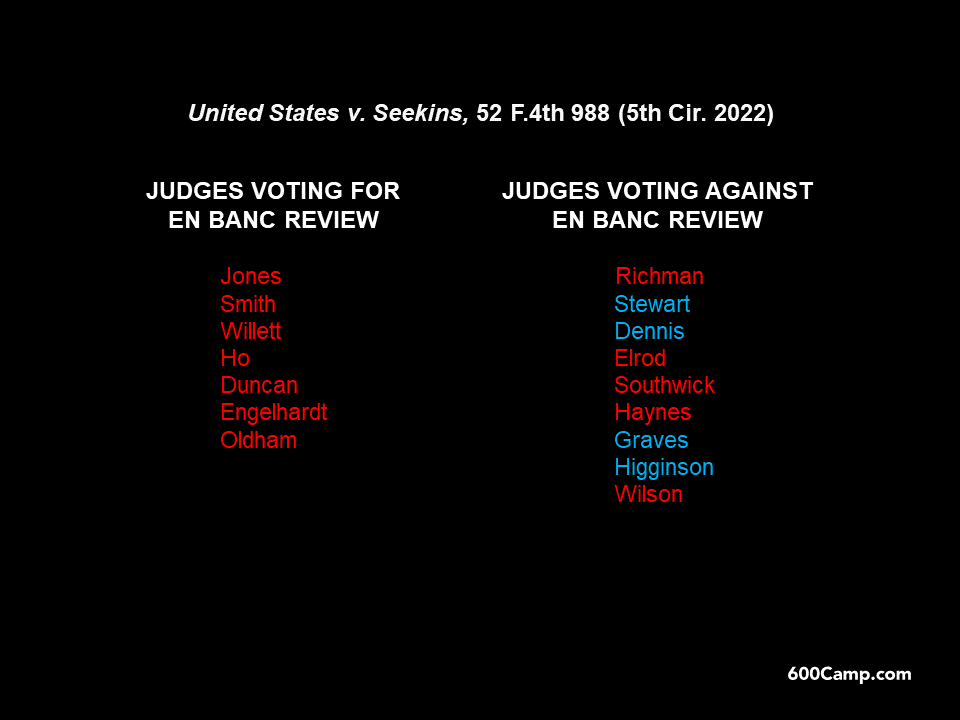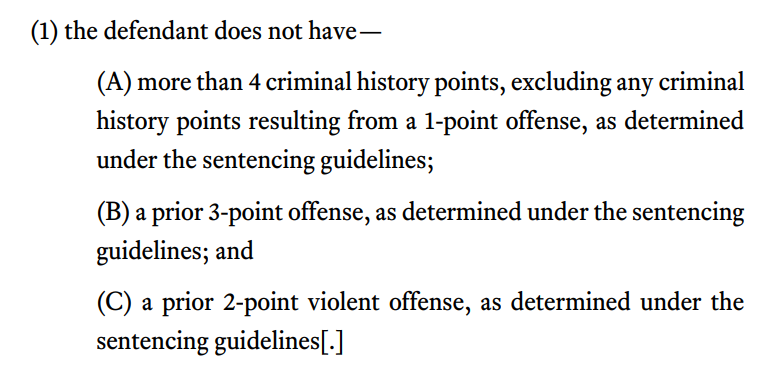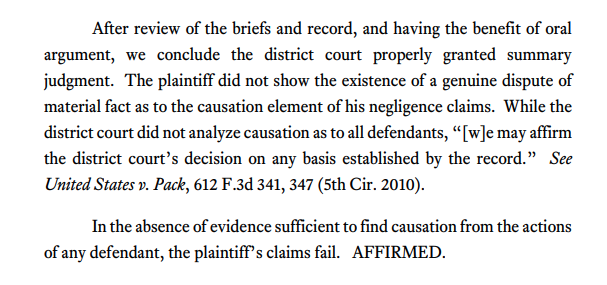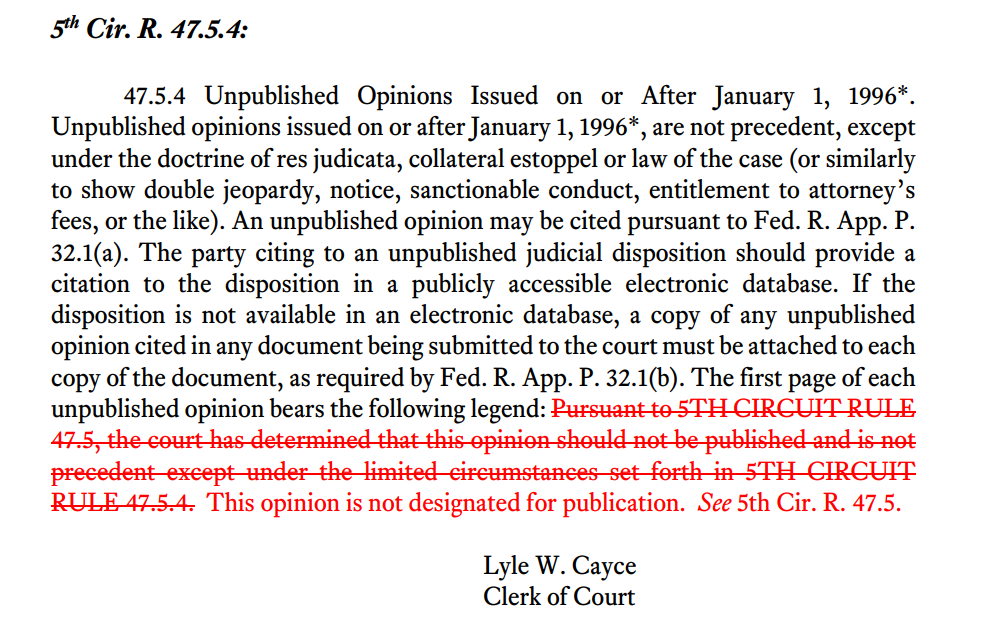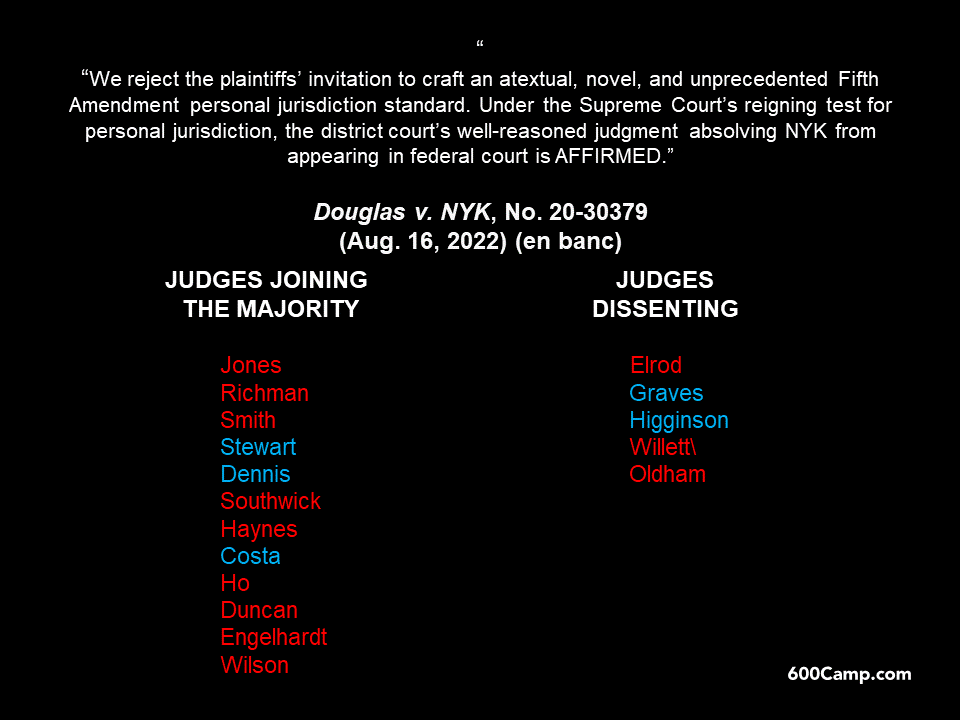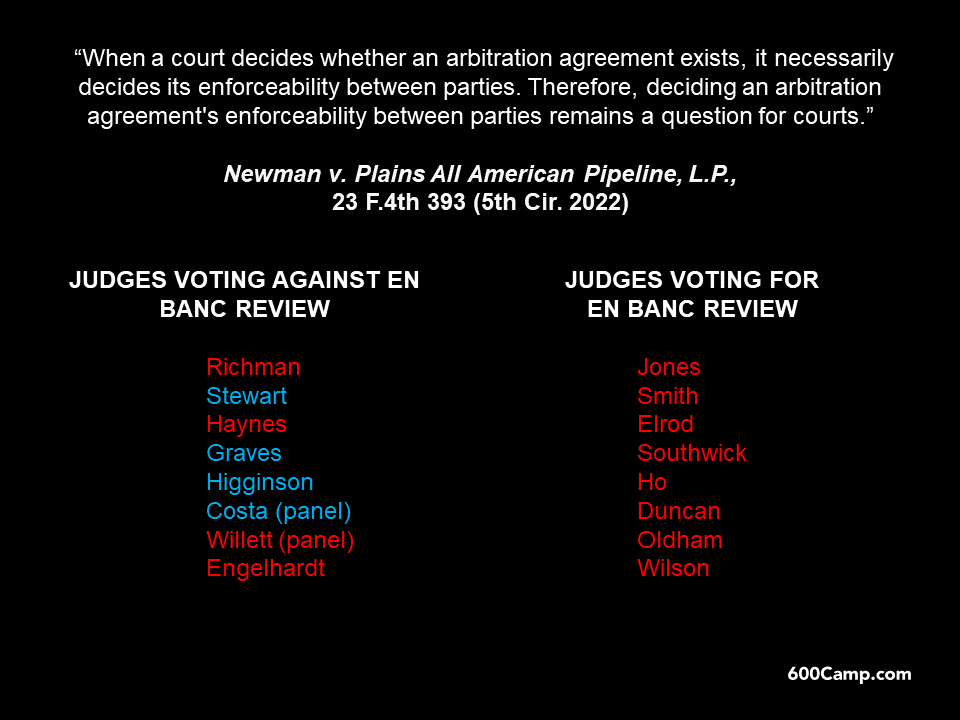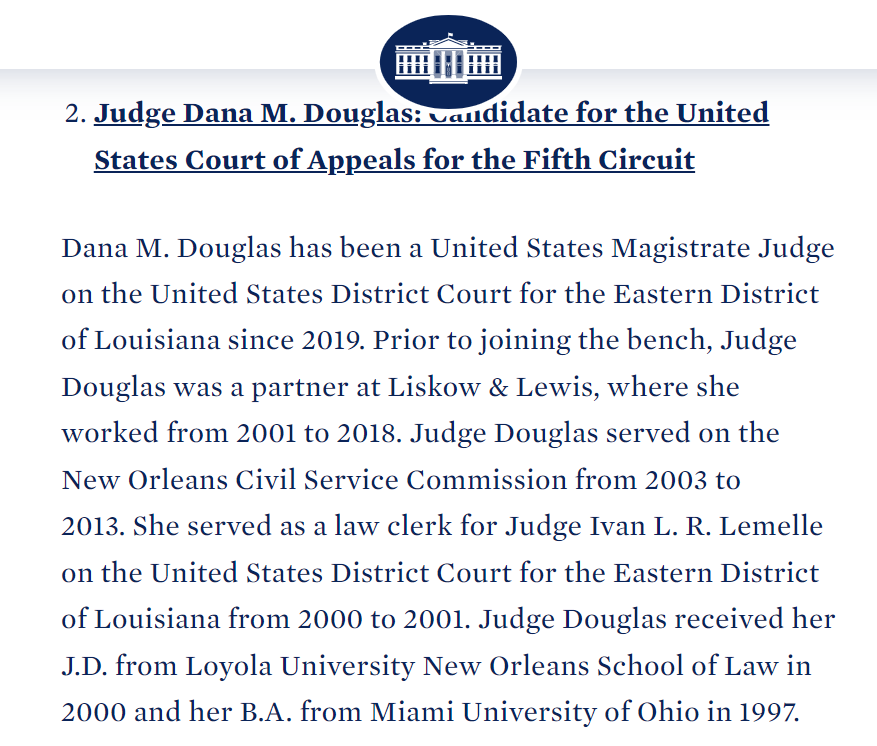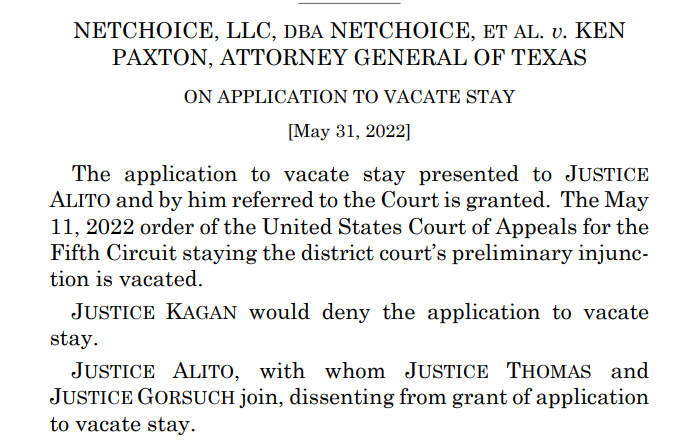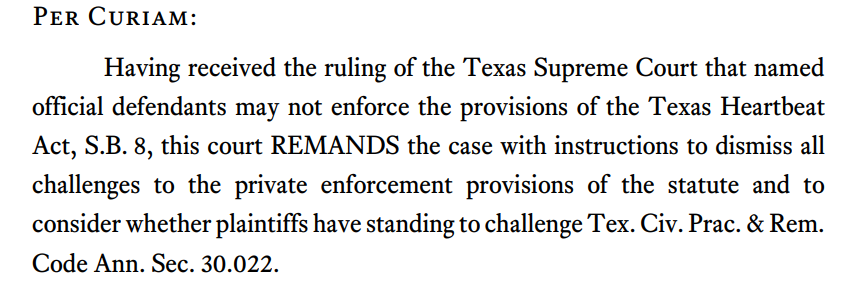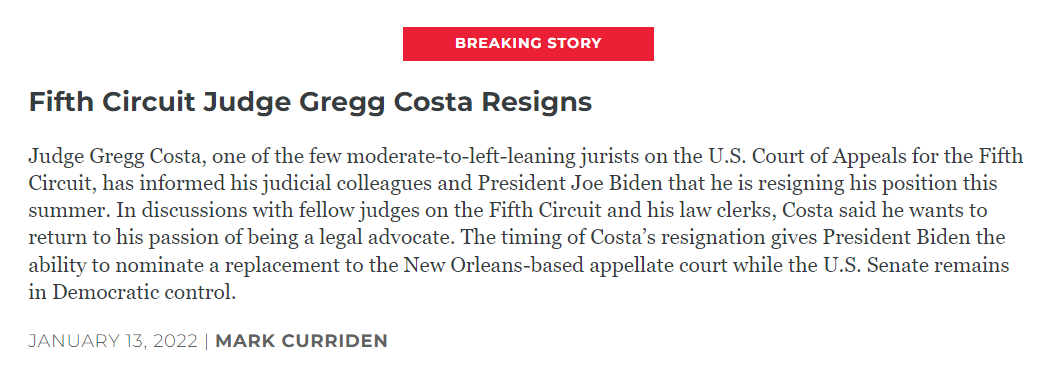Last year the Fifth Circuit held that the Consumer Financial Protection Bureau was funded through an unconstitutional mechanism that circumvented the Congressional appropriations process. That matter is now before the Supreme Court. The Second Circuit has now joined the fray in CFPB v. Law Offices of Crystal Moroney, P.C., No. 20-3471 (March 23, 2023), joining the D.C. Circuit in finding that the CFPB’s funding mechanism does not violated the Appropriations Clause.
 Majestic Oil v. Certain Underwriters at Lloyd’s is an insurance coverage case in which the key issue is what caused a roof to leak. The plaintiff’s expert prepared a second report that added analysis of certain weather data; he characterized it as a permissible supplement to his original report, while the defense moved to strike it as containing an impermissible new opinion after the expert-report deadline.
Majestic Oil v. Certain Underwriters at Lloyd’s is an insurance coverage case in which the key issue is what caused a roof to leak. The plaintiff’s expert prepared a second report that added analysis of certain weather data; he characterized it as a permissible supplement to his original report, while the defense moved to strike it as containing an impermissible new opinion after the expert-report deadline.
The Fifth Circuit reversed the trial court’s ruling that struck the new report, remanding for more fulsome consideration of all four factors identified by Fed. R. Civ. P. 37(c)(1): “(1) the explanation for the failure to identify the [information]; (2) the importance of the [information]; (3) potential prejudice in allowings the timeliness of an expert report and the [information]; and (4) the availability of a continuance to cure such
prejudice.” No. 21-20542 (March 17, 2023, unpublished).
In a case about a school district’s liabilty for a student’s assault of another student, the Fifth Circuit declined to recognize a “state-created danger” exception to district officials’ immunity. The Court summarized:
The Due Process Clause of the Fourteenth Amendment provides that “[n]o State shall . . . deprive any person of life, liberty, or property, without due process of law.” “The Due Process Clause . . . does not, as a general matter, require the government to protect its citizens from the acts of private actors.” We have recognized just one exception to this general rule: “when [a] ‘special relationship’ between the individual and the state imposes upon the state a constitutional duty to protect that individual from known threats of harm by private actors.” However, “a number of our sister circuits have adopted a ‘state-created danger’ exception to the general rule, under which a state actor who knowingly places a citizen in danger may be accountable for the foreseeable injuries that result.” …
The problem for [Plaintiff] is that “the Fifth Circuit has never recognized th[e] ‘state-created-danger’ exception.” In our published, and thus binding, caselaw, “[w]e have repeatedly declined to recognize the statecreated danger doctrine.” For this reason, [Plaintiff] “ha[s] not demonstrated a clearly established substantive due process right on the facts [she] allege[s].” The district court thus erred in denying qualified immunity to Appellants.
Fisher v. Moore, No. 21-20553-CV (March 16, 2023) (footnotes omitted).
 My home city of Dallas was founded with the hope of becomging an inland port, using the Trinity River to connect North Texas with the Gulf of Mexico. Unfortunately, the Trinity turned out to be essentially unnavigable.
My home city of Dallas was founded with the hope of becomging an inland port, using the Trinity River to connect North Texas with the Gulf of Mexico. Unfortunately, the Trinity turned out to be essentially unnavigable.
Lacking any navigable waters of my own, I am fascinated by opinions that define the “navigable waters” of the United States such as Newbold v. Kinder Morgan SNG Operator LLC. A fishing boat in the D’Arbonne National Wildlife Refuge ran into an underwater object; the case-dispositive issue was choice of law. If the accident did not occur in “navigable waters,” then Louisiana law controlled and the plaintiff would have no claim.
While the boat was, in fact, navigating at the time of the allision, the test excludes “recreational fishing” activity. The Fifth Circuit reviewed the relevant factors and found that the area the boat was in was not “navigable water” governed by federal law:
“[T]he location of the allision is on land that is dry 67 percent of the time, where vegetation is not destroyed and the land is not bare, as evidenced by the need to mow it with some regularity. More significantly, the Bayou D’Arbonne does have an ‘unvegetated channel’ which is some 597 feet wide at the location where the boat split off to fish near the sign. The sign was located 58 feet away from the unvegetated channel. The unvegetated channel is a neat, natural line by which the ordinary high-water mark may be established. Within the channel, there is no vegetation; outside of it, there is.”
No. 22-30416 (March 14, 2023).
An unfortunate incident involving out-of-hand heckling of Judge Duncan at Stanford Law School, compounded by an administrator fanning the flames, led to an apology from Stanford’s president. Aside of general problems with good manners and common sense, this sort of thing isn’t even good protesting; cf. Tinker v. Des Moines ISD, 393 U.S. 503 (1969) (protecting “a silent, passive expression of opinion, unaccompanied by any disorder or disturbance on the part of petitioners”).
 New England Construction complained that large lumber companies monopolized the wood-products marked during the COVID-19 pandemic. Unfortunately for its claim, however, it only purchased the defendants’ lumber through intermediates (Lowes, Home Depot, etc.). It thus had no standing under the Illinois Brick line of authority, and the Fifth Circuit affirmed the dismissal of its claims. New England Construction, LLC v. Weyerhaeuser Co., No. 22-60329 (March 8, 2023) (unpublished).
New England Construction complained that large lumber companies monopolized the wood-products marked during the COVID-19 pandemic. Unfortunately for its claim, however, it only purchased the defendants’ lumber through intermediates (Lowes, Home Depot, etc.). It thus had no standing under the Illinois Brick line of authority, and the Fifth Circuit affirmed the dismissal of its claims. New England Construction, LLC v. Weyerhaeuser Co., No. 22-60329 (March 8, 2023) (unpublished).
 Dream Medical Group v. Old South Trading Co. reminds how hard it is to challenge the merits of an arbitration award.
Dream Medical Group v. Old South Trading Co. reminds how hard it is to challenge the merits of an arbitration award.
Dream Medical bought medical face masks from Old South. They had a contract dispute that went to arbitration with the AAA. Dream Medical won and Old South opposed confirmation.
Among other arguments, Old South complained that its fraudulent-inducement claim was mishandled, in that the panel violated a AAA rule by not fully considering Old South’s fraudulent-inducement claim, and thus came within the FAA’s provision about arbitrators who “exceeded their powers.”
The Fifth Circuit rejected that argument as an invitation for us to reasses the merits of the Panel’s decision.” It also noted that “manifest disregard of the law” is not a viable, nonstatutory basis for opposing confirmation under Fifth Circuit precedent. No. 22-20286 (March 6, 2023) (unpublished).
The Fifth Circuit updated its panel opinion in United States v. Rahimi. The holding remains the same (that the federal law, criminalizing the possession of a firearm by someone subject to a domestic violence protective order, violates the Second Amendment), but the majority opinion adds explanation about what its holding does, and does not, affect. No. 21-11001 (March 2, 2023) (withdrawing and substituting prior opinion).
While I wrote an op-ed in the Dallas Morning News about the original opinion, noting that the Fifth Circuit had found the same statute constitutional under the pre-Bruen Second Amendment framework, I had not fully grasped the contrast until reading the revised opinion. The Fifth Circuit’s previous opinion turned on “means-end scrutiny” — in other words, a comparison of benefit and burden. The present opinion thus finds this law unconstitutional (as it must under its analysis of Bruen) even though Circuit precedent says that the law did not unduly burden gun rights when compared to the law’s policy objectives. It thus provides a particularly stark example of the impact of Bruen‘s history-only framework on the law in this area.
 The poem Antigonish begins:
The poem Antigonish begins:
Yesterday, upon the stair,
I met a man who wasn’t there
He wasn’t there again today
I wish, I wish he’d go away.
In that spirit, the majority and concurrence in Mexican Gulf Fishing Co v. U.S. Dep’t of Commerce, No. 22-30105 (Feb. 23, 2023), disagreed about the continuing viability of Chevron.
The case presented a dispute about the authority of the Commerce Department, under a Congressional mandate to conserve the nation’s offshore fisheries, to require charter boats to carry a GPS-location device and submit specified records about fishing activity.
3-0, the Fifth Circuit concluded that the government had exceeded its boundaries. The majority used a Chevron approach to the relevant statute; a concurrence joined but argued that recent Supreme Court cases have tacitly overruled Chevron, and the third judge joined specific parts of the majority opinion.
 Colorfully, the majority and concurrence disputed whether Chevron is fairly called the “Lord Voldemort of administrative law,” due to the Supreme Court’s unwillingness to refer to it recent administrative-law opinions. While that’s witty and good fun, the lack of clear guidance from the Supreme Court about this fundamental doctrine is clearly a problem–as this very opinion shows, since three judges approached the same issue in three different ways under the current state of the law. If the Supreme Court wants to overrule Chevron, it should overrule Chevron.
Colorfully, the majority and concurrence disputed whether Chevron is fairly called the “Lord Voldemort of administrative law,” due to the Supreme Court’s unwillingness to refer to it recent administrative-law opinions. While that’s witty and good fun, the lack of clear guidance from the Supreme Court about this fundamental doctrine is clearly a problem–as this very opinion shows, since three judges approached the same issue in three different ways under the current state of the law. If the Supreme Court wants to overrule Chevron, it should overrule Chevron.
 Celebrate Mardi Gras with Emeril’s chicken and andouille gumbo recipe!
Celebrate Mardi Gras with Emeril’s chicken and andouille gumbo recipe!
 The Fifth Circuit didn’t bite on a last-minute attempt to stop a trial in the Allen Stanford litigation, denying a mandamus petition (with memorable language obviously written by Judge Higginbotham despite the “per curiam” designation):
The Fifth Circuit didn’t bite on a last-minute attempt to stop a trial in the Allen Stanford litigation, denying a mandamus petition (with memorable language obviously written by Judge Higginbotham despite the “per curiam” designation):
This case is, at minimum, complex, featuring myriad fact-specific issues litigated over the course of nearly a decade and a half through multiple courts. Halting the litigation’s momentum mere days before trial is set to begin would require indisputable clarity as to its necessity. Here, no such need is evident; assisted by able briefing and a review of the record, we are unpersuaded that either petition reaches the high demands of mandamus, or that the movant has satisfied the similar burden of staying the trial….
The four most powerful words from the lips of a United States District Judge are simply “Call your first witness,” and the veteran presiding judge will so state in a few short days.
In re Toronto-Dominion Bank, No. 22-20648 (Feb. 14, 2023). (It could be debated whether those are in fact a trial judge’s most powerful words–a case could be made for “So ordered” or “Your objection is overruled,” for example.)
A case now pending in the Amarillo Division of the Northern District of Texas challenges the FDA’s approval of one of the drugs commonly used to carry out a “medication abortion,” including a question whether the 19th-Century Comstock Act prohibits the mailing of abortion-related medication. A decision is expected after preliminary-injunction briefing closes on February 24. This is the plaintiffs’ brief in support of a preliminary injunction, and this is the defendants’ response.
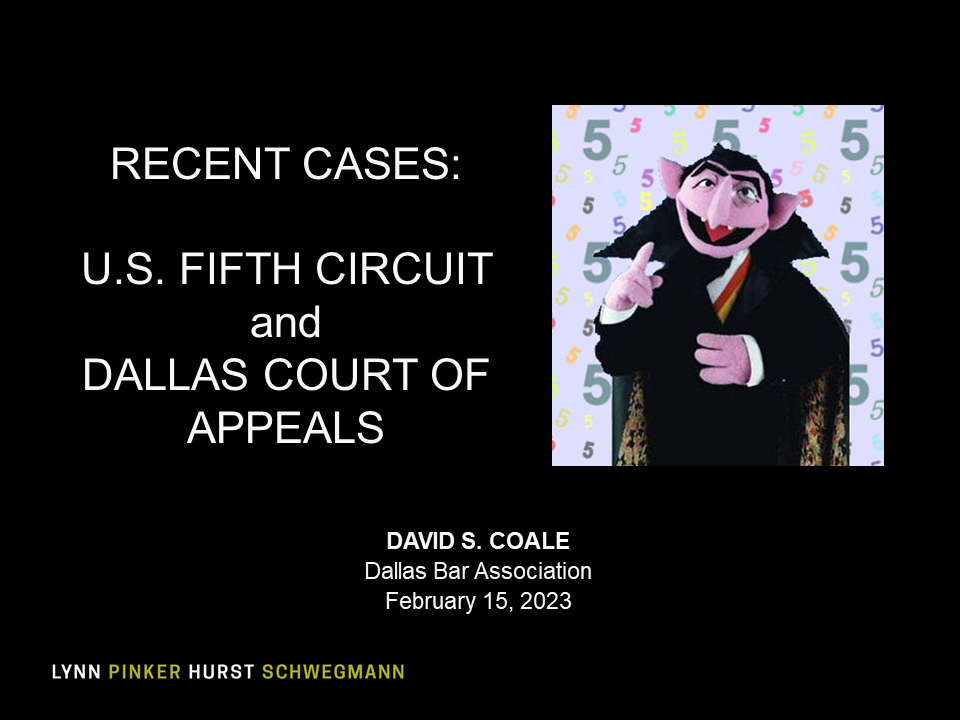 On Wednesday at noon, I am doing a virtual CLE for the Dallas Bar that reviews the key cases, since last spring, from the U.S. Court of Appeals for the Fifth Circuit and the Fifth Court of Appeals in Dallas. You can register here and you can download (subject to last-minute revisions) my PowerPoint here. I hope you can join me!
On Wednesday at noon, I am doing a virtual CLE for the Dallas Bar that reviews the key cases, since last spring, from the U.S. Court of Appeals for the Fifth Circuit and the Fifth Court of Appeals in Dallas. You can register here and you can download (subject to last-minute revisions) my PowerPoint here. I hope you can join me!
Last week’s opinion in United States v. Rahimi found that a federal law, criminalizing the possession of a firearm by someone under a domestic-violence restraining order, violated the Second Amendment’s protection of a right to bear arms.
The Attorney General plans to seek review. The perspective of a Dallas-based operator of a women’s shelter appears in this Fox 4 news story on the case. I recently wrote an op-ed about the opinion in the Dallas Morning News. A flavor of the national commentary about the case can be obtained from these representative articles in Slate and Reason.
Referring to a federal law that prohibits firearm ownership by someone subject to a domestic-violence restraining order, the Fifth Circuit holds in United States v. Rahimi:
“Doubtless, 18 U.S.C. § 922(g)(8) embodies salutary policy goals meant to protect vulnerable people in our society. Weighing those policy goals’ merits through the sort of means-end scrutiny our prior precedent indulged, we previously concluded that the societal benefits of § 922(g)(8) outweighed its burden on Rahimi’s Second Amendment rights. But Bruen forecloses any such analysis in favor of a historical analogical inquiry into the scope of the allowable burden on the Second Amendment right. Through that lens, we conclude that § 922(g)(8)’s ban on possession of firearms is an ‘outlier[] that our ancestors would never have accepted.’ Therefore, the statute is unconstitutional, and Rahimi’s conviction under that statute must be vacated.
No. 21-11001-CR (Feb. 2, 2023) (citation omitted).
The plaintiffs in Elson v. Black brought a putative class action against the manufacturers of the “FasciaBlaster, a two-foot stick with hard prongs that is registered with the Food and Drug Administration as a massager,” alleging that they “falsely advertised that the FasciaBlaster was able to ‘virtually eliminate cellulite,’ help with weight loss, and relieve pain.” The Fifth Circuit affirmed the dismissal of those class claims, noting that class-wide issues did not predominate:
- Law. “[V[ariations in state law here ‘swamp any common issues and defeat predominance'” as to reliance and other basic matters; and
- Fact. “Plaintiffs’ allegations introduce numerous factual differences that in no way comprise a coherent class. … [T]he named plaintiffs do not complain about the same alleged misrepresentations. Some are disgruntled because they expected the FasciaBlaster to reduce cellulite. Others are dissatisfied because they expected it to reduce their pain or address certain health concerns. And others are displeased because they expected it to help them lose weight. … Moreover, even within these groups, the possibility of class analysis disintegrates because the members did not rely on the same alleged misrepresentations.”
No. 21-20349 (Jan. 5, 2023).
Thanks to diversity jurisdiction, the Fifth Circuit reviews some fundamental state-law tort issues along with its loftier docket of constitutional disputes.
In Badeaux v. Louisiana-I Gaming, Badeaux sued for damages after he tripped over a sprinkler head at a casino. The Fifth Circuit affirmed summary judgment for the casino because the sprinkler head was “open and obvious,” noting, inter alia: “There are multiple photographs of the scene showing that: (1) there were working lights in the parking lot on the night of Badeaux’s fall; (2) the sprinkler head was located in a grassy, landscaped area that was separated from the parking lot by a raised curb; and (3) the raised curb surrounding the sprinkler head was painted bright yellow.”
No. 21-30129 (Jan. 20, 2023).
On January 29, the Washington Post published a lengthy article about issues of the day in the Fifth Circuit.
Significantly different and tone and focus, it is similar in scope to a Texas Monthly article of last summer about the Court.
 An exasperated Fifth Circuit granted mandamus relief to require FERC to explain significant delay in a nuclear-power rate dispute, In re Louisiana Public Service Comm’n, No. 22-60458 (Jan. 18, 2023).
An exasperated Fifth Circuit granted mandamus relief to require FERC to explain significant delay in a nuclear-power rate dispute, In re Louisiana Public Service Comm’n, No. 22-60458 (Jan. 18, 2023).
As to jurisdiction, the Court observed: “This court has jurisdiction over the LPSC’s petition to safeguard our prospective jurisdiction to review final FERC orders under the Federal Power Act. When federal appellate courts have jurisdiction to review agency action, ‘the All Writs Act empowers those courts to issue a writ of mandamus compelling the agency to complete the action.'” (footnotes omitted).
As to the merits, the Court observed: “FERC is correct that ratemaking is challenging work, and we are fully aware of the difficulties attending the substitution of nuclear for other power sources, with its attendant difficulties of allocating huge installation costs among electrical suppliers now looking to a new power source. Yet Congress has duly charged FERC with this important duty, and FERC has yet to provide this court with a meaningful explanation for its inability to expeditiously conclude Section 206 proceedings. FERC must convince this court that it has acted ‘within a reasonable time . . . to conclude [the] matter presented to it.’ In failing to do so, FERC risks judicial intervention to protect the rights of the parties before it and the interests of consumers.” (footnotes omitted).
 Cargill v. Garland, an en banc opinion released earlier this month, holds that the ATF’s “bump stock” rule was invalid. The diagram to the right, referenced by a link in the majority opinion, illustrates the firing mechanism for a semi-automatic firearm, which a bump stock facilitates by allowing rapid operation of the trigger.
Cargill v. Garland, an en banc opinion released earlier this month, holds that the ATF’s “bump stock” rule was invalid. The diagram to the right, referenced by a link in the majority opinion, illustrates the firing mechanism for a semi-automatic firearm, which a bump stock facilitates by allowing rapid operation of the trigger.
The majority opinions aligned as follows:
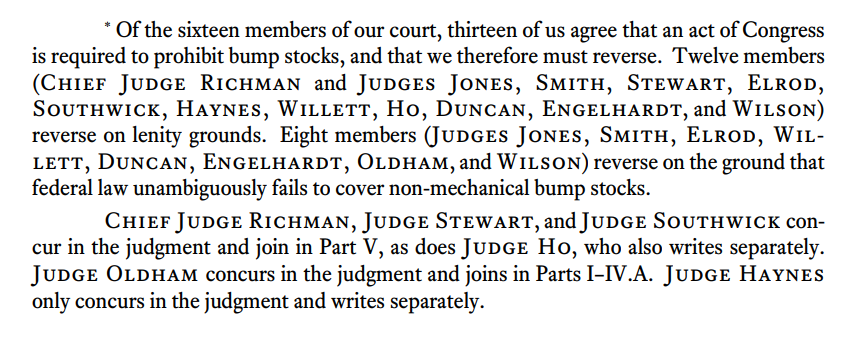 The three Democratic appointees on the court at the time (Higginson, Dennis, and Graves) dissented.
The three Democratic appointees on the court at the time (Higginson, Dennis, and Graves) dissented.
The Fifth Circuit reversed the dismissal of a securities claim against Six Flags involving its public statements about an expansion effort in China, concluding that as to some of the challenged statements, the plaintiff had satisfied the PSLRA’s demanding requirements. Oklahoma Firefighters Pension & Retirement System v. Six Flags Entertainment Corp., No. 21-10865 (Jan. 18, 2022). The opinion provides detailed discussion of just is required to adequately plead falsity and scienter, especially in the context of forward-looking statements. It also provides what appears to be the first reference in the Federal Reporter to vexillology (the study of flags):
 Last July, I fearlessly predicted that “[a] petition for en banc rehearing seems a near certainty” in Wages & White Lion Investments v. FDA, a challenge to a significant FDA regulation in the vaping industry. The full court has now voted to consider the matter en banc; time will tell if the panel majority’s analysis goes up in smoke, or whether the case simply offers smoke and no fire.
Last July, I fearlessly predicted that “[a] petition for en banc rehearing seems a near certainty” in Wages & White Lion Investments v. FDA, a challenge to a significant FDA regulation in the vaping industry. The full court has now voted to consider the matter en banc; time will tell if the panel majority’s analysis goes up in smoke, or whether the case simply offers smoke and no fire.
The main issue in Hanover Ins. Co. v. Binnacle Devel., LLC was the interpretation of a Texas Water Code provision about MUDs (“municipal utility districts”) — yes, “MUDdy waters.” Resolution of that issue led to a short discussion as to whether a key contract provision was a damage-limitation clause or a liquidated damages clause, and the Fifth Circuit said:
The damages clause is entitled “LIQUIDATED DAMAGES FOR DELAY/ECONOMIC DISINCENTIVE” and expressly provides for “liquidated damages in the amount of $2,500 for each [] calendar day” of delay. This provision does not, in substance, set a mere limitation of liability or delimit damages to “an agreed maximum.” 24 WILLISTON ON CONTRACTS § 65:6 (4th ed.). Rather, the clause provides that Hassell is liable for the liquidated damages of $2,500 for every day the Projects are late. Looks like a liquidated-damages provision to us.
No. 21-40662 (Jan. 12, 2023).
 The Fifth Circuit and Texas Supreme Court both recently addressed limitations issues in commercial cases:
The Fifth Circuit and Texas Supreme Court both recently addressed limitations issues in commercial cases:
- Civelli v. JP Morgan Securities involved an investor’s claim that JP Morgan wrongly transferred certain shares of stock in an oil company. The Fifth Circuit declined to apply the discovery rule, stating: “Any injury incurred from the J.P. Morgan defendants’ alleged negligence in transferring the shares without plaintiffs’ consent arose at the time of the transfer. Because Civelli admits that he knew by February 2014 that they had transferred the funds, the rule of discovery does not apply.” No. 21-20618 (Jan. 11, 2023).
- Marcus & Millichap v. Triex Texas Holdings LLC was a suit against a real-estate broker about the sale of a gas station. The Texas Supreme Court held: “It is undisputed that Triex knew it was injured in December 2012. The question before us is whether the discovery rule defers accrual of Triex’s cause of action until it knew that Marcus & Millichap caused its injury. We hold that it does not.” No. 21-0913 (Jan. 13, 2023) (per curiam).
 Yes, the defendant “intentionally” coded a key record in a certain way. But that “intentional” action did not establish an “intent” to harm the victim of an industrial accident:
Yes, the defendant “intentionally” coded a key record in a certain way. But that “intentional” action did not establish an “intent” to harm the victim of an industrial accident:
“Populars fails to show that Trimac knew it mislabeled the tanker. It is not enough that Trimac intentionally coded into its system that the tanker contained MDI. Doing so may have been reasonable, negligent, or reckless … [but Populars instead needed to demonstrate that Trimac (or a reasonable company in Trimac’s position) knew this designation was wrong, and, therefore, knew that Populars’s injury was inevitable. Despite claiming that ‘Trimac knew it possessed chemicals that would produce a violent exothermic reaction when mixed together,’ Populars points to no evidence to support that assertion.”
Populars v. Trimac Transportation, Inc., No. 22-30413 (Jan. 3, 2023, unpublished) (emphasis in original).
 In a time of well-documented skepticism in the federal courts about the administrative state, the FTC has doubled down, seeking public comment on a rule that would ban enforcement of noncompetition agreements.
In a time of well-documented skepticism in the federal courts about the administrative state, the FTC has doubled down, seeking public comment on a rule that would ban enforcement of noncompetition agreements.
As part of the explanation for its authority, the FTC cited authority that “Section 5 reaches conduct that, while not prohibited by the Sherman or Clayton Acts, violates the spirit or policies underlying those statutes.” That broad language will sound familiar to readers of the vaccine-mandate cases and their discussions of the EEOC’s rulemaking authority.
Given the present climate in the courts about expansive claims of agency authority, it seems likely that any FTC rule in this area will lead to extensive litigation before such a rule actually takes effect.
 In Louisiana v. Biden, No. 22-30019 (Dec. 19, 2022), a panel majority invalidated a Presidential vaccination mandate, holding: “This so-called ‘Major Questions Doctrine’ – that is, that ‘[w]e expect Congress to speak clearly when authorizing an agency to exercise powers of vast economic and political significance,’ – serves as a bound on Presidential authority.” (citation omitted, emphasis added, applying West Virginia v. EPA, 142 S. Ct. 2587 (2022)).
In Louisiana v. Biden, No. 22-30019 (Dec. 19, 2022), a panel majority invalidated a Presidential vaccination mandate, holding: “This so-called ‘Major Questions Doctrine’ – that is, that ‘[w]e expect Congress to speak clearly when authorizing an agency to exercise powers of vast economic and political significance,’ – serves as a bound on Presidential authority.” (citation omitted, emphasis added, applying West Virginia v. EPA, 142 S. Ct. 2587 (2022)).
A dissent saw matters otherwise. A commentator in Slate criticized the expansion of the major questions doctrine to actions by the executive branch. On this general topic, I’ve suggested in Law360 that the major questions doctrine may have the unintended consequence of justifying Congressional restrictions on Article III jurisdiction.
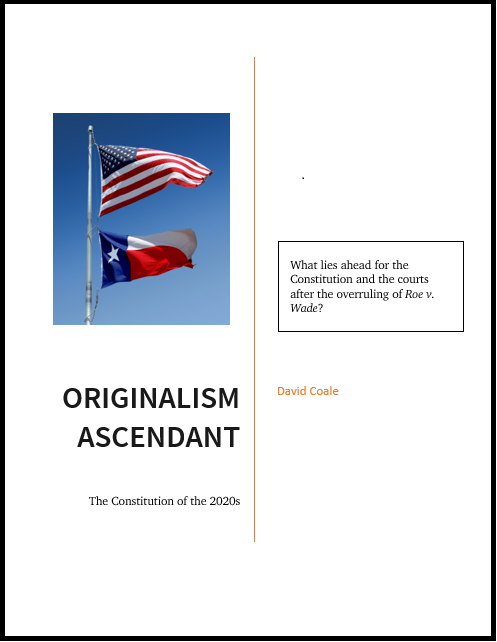 Now available! My (free) e-book, “Originalism Ascendant,” which builds upon recent media appearances to describe where the Constitution finds itself, for the rest of the 2020s, after the overruling of Roe v. Wade.
Now available! My (free) e-book, “Originalism Ascendant,” which builds upon recent media appearances to describe where the Constitution finds itself, for the rest of the 2020s, after the overruling of Roe v. Wade.
Topics include:
- How clear are the guidelines for state laws about abortion activity in another state?
- Will Lochner make a comeback?
- If so, what body of academic thought will provide guidance for the courts?
- What would Alexander Hamilton really think about modern economic regulation?
- Who exactly are “the people’s elected representatives” referred to by the Supreme Court in Dobbs?
I hope you enjoy my ideas and find them helpful in your own thinking about these important issues!
 The Fifth Circuit recently summarized the sometimes-confusing law about when an adverse ruling about a grand-jury subpoena may be appealed:
The Fifth Circuit recently summarized the sometimes-confusing law about when an adverse ruling about a grand-jury subpoena may be appealed:
Our jurisdiction is generally limited to reviewing final decisions of a district court. This rule applies to appeals of orders issued in grand jury proceedings. There are two exceptions. First, if a witness chooses not to comply with a grand jury subpoena compelling production of documents and is held in contempt, that witness may immediately appeal the court’s interlocutory order. Second, under what is called the Perlman doctrine, a party need not be held in contempt prior to filing an interlocutory appeal if “the documents at issue are in the hands of a third party who has no independent interest in preserving their confidentiality.
In re Grand Jury Subpoena, No. 21-30705 (Dec. 14, 2022). (At least in theory, a mandamus petition may also be available in this setting, see generally David Coale, Five Years After Mohawk, 34 Rev. Litig. 1 (2015)).
 iiiTec v. Weatherford Technology Holdings presents a series of unfortunate events that led to dismissal of an appeal.
iiiTec v. Weatherford Technology Holdings presents a series of unfortunate events that led to dismissal of an appeal.
- “iiiTec filed two motions on July 23, 2021, the twenty-eighth day after judgment. The first was a request to exceed the page limit on its proposed Rule 59/60 motion; the second was a short 14-page motion to alter the judgment. A request for leave to file is not one that can toll the deadline to appeal, but a motion to alter is.” (footnote omitted). So far, so good. But then …
- “[W]hen the court struck iiiTec’s motion to alter on October 4, the deadline to appeal reset to thirty days later on November 3. But by that date, iiiTec still had not filed its notice of appeal; it had only filed another Rule 59/60 motion to reconsider. Under Rule 59, the motion was untimely for exceeding the strict 28-day period to file; and under Rule 60, the motion could not toll the deadline because it was filed more than 28-days after final judgment.” (footnote omitted).
No. 22-20076 (Dec. 27, 2022, unpublished).
The plaintiff in Newell-Davis v. Phillips challenged the constitutionality of Louisiana’s “Facility Need Review” for entrants into the respite-care business. The program requires Louisiana regulators to “determine if there is a need for an additional [respite care] provider in the geographic location” before a new business is authorized. The Fifth Circuit found that the program satisfied rational-basis review, noting:
The record supports the State’s assertions that FNR permits enhancement of consumer welfare by “allowing [LDH] to prioritize postlicensure compliance surveys that ensure client health, safety and welfare, over the resource intensive and costly initial licensing surveys.” For example, by limiting the number of providers in the respite care business, the State can focus its resources on a manageable number of providers, which aid it in ensuring that consumers receive the best possible care in their communities.
No. 22-30166 (Dec. 13, 2022).
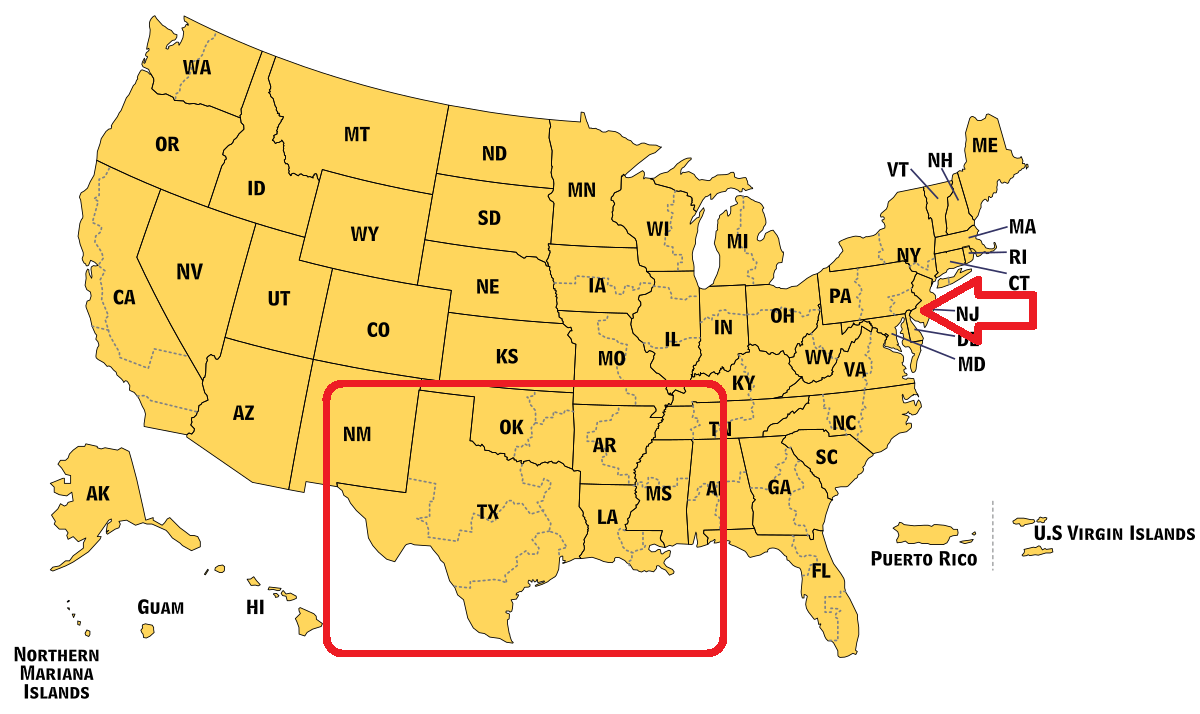 Defense Distributed markets design files from which a rudimentary firearm can be made on a 3-D printer. This controversial product has drawn substantial attention from regulators, which in turn has led to litigation.
Defense Distributed markets design files from which a rudimentary firearm can be made on a 3-D printer. This controversial product has drawn substantial attention from regulators, which in turn has led to litigation.
One part of that litigation, involving the New Jersey Attorney General, was transferred from Texas federal court to New Jersey federal court, after which a Fifth Circuit panel held that the transfer was erroneous. But New Jersey is not in the Fifth Circuit (right), and the New Jersey district court declined a request to voluntarily return the case.
Defense Distributed thus reloaded in Texas, “advanc[ing] two procedural theories to establish that the district court now has jurisdiction over their new request for a preliminary injunction against NJAG. One is that our court’s order to vacate the district court’s sever-and-transfer order automatically ‘revived’ plaintiffs’ claims against NJAG by operation of law. The second is that Federal Rule of Civil Procedure 15 allows plaintiffs to ‘refile’ their claims against NJAG, and they did so when they requested leave to amend to add NJAG to the existing case against the State Department in the Western District of Texas.” (emphasis added).
The Fifth Circuit found that neither theory was viable after a case had been transferred out of its jurisdiction. It observed that “[t]here was a solution to the jurisdictional morass in which plaintiffs found themselves: [t]hey could have moved for a stay of the district court’s transfer order before the case was transferred.” Defense Distributed v. Platkin, No. 22-50669 (Dec. 15, 2022) (Haynes, J., concurring in the judgment only).
 A specific federal statute, 28 U.S.C. § 1782(a), deals with discovery requests in aid of foreign litigation. In Banca Pueyo SA v. Lone Star Fund IX (US), L.P., the Fifth Circuit held that its precedent “cannot be read either for the proposition that adversarial testing may be precluded on the merits of a § 1782(a) application following an ex parte ruling [about the requested discovery], or that [Fed. R. Civ. P.] 45 furnishes the only means to challenge the initiation of the subpoenas approved ex parte by the district court.” No. 21-10776 (Dec. 13, 2022).
A specific federal statute, 28 U.S.C. § 1782(a), deals with discovery requests in aid of foreign litigation. In Banca Pueyo SA v. Lone Star Fund IX (US), L.P., the Fifth Circuit held that its precedent “cannot be read either for the proposition that adversarial testing may be precluded on the merits of a § 1782(a) application following an ex parte ruling [about the requested discovery], or that [Fed. R. Civ. P.] 45 furnishes the only means to challenge the initiation of the subpoenas approved ex parte by the district court.” No. 21-10776 (Dec. 13, 2022).
 The Senate today confirmed Hon. Dana Douglas of Louisiana as the newest judge on the Fifth Circuit, taking a seat vacated by long-serving Hon. James Dennis. Welcome to the court, Judge Douglas! Louisiana’s Advocate has a thorough story about her confirmation hearings and personal background.
The Senate today confirmed Hon. Dana Douglas of Louisiana as the newest judge on the Fifth Circuit, taking a seat vacated by long-serving Hon. James Dennis. Welcome to the court, Judge Douglas! Louisiana’s Advocate has a thorough story about her confirmation hearings and personal background.
Valiant efforts to argue that various things were not “assets” under a contract did not succeed in Sanare Energy Partners LLC v. PetroQuest Energy, LLC:
The Properties are “Assets” under the PSA, including section 11.1, even if the Bureau’s withheld consent prevented record title for the Properties from transferring to Sanare. This conclusion is plain from the PSA’s text, which excludes Customary Post-Closing Consents such as the Bureau’s from the category of consent failures that alter the parties’ bargain. Consent failures that do not produce a void-ab-initio transfer also do not alter the parties’ bargain, so the Agreements, too, are Assets under the PSA’s plain text.
No. 21-20677 (Nov. 29, 2022).
12-3 (one recusal), the full Fifth Circuit denied en banc review in Freedom From Religion Foundation v. Mack, in which the panel found no coercion (and thus no standing) in a challenge to a Texas JP’s pre-court practices.
The Fifth Circuit found that the rule of lenity applied in a disciplinary proceeding involving this Louisiana ethics rule:
A division of fee between lawyers who are not in the same firm may be made only if: (1) the client agrees in writing to the representation by all of the lawyers involved, and is advised in writing as to the share of the fee that each lawyer will receive; (2) the total fee is reasonable; and (3) each lawyer renders meaningful legal services for the
client in the matter.
It concluded that the rule was ambiguous when applied to successive rather than simultaneous counsel. In re Andry, No. 22-30231 (Nov. 29, 2022). The panel later granted rehearing and issued a revised opinion.
 By a 9-7 vote, the Fifth Circuit declined to review en banc the panel opinion in Seekins v. United States. Under well-established Circuit precedent, Seekins presented a straightforward application of a criminal statute about possession of ammunition that had moved in interstate commerce. The petitioner directly challenged that precedent, arguing that it rested on an overly broad reading of Congress’ power to regulate interstate commerce. Plainly, the close vote signals the Court’s willingness to reconsider longstanding concepts about that constitutional provision. The breakdown of votes is below:
By a 9-7 vote, the Fifth Circuit declined to review en banc the panel opinion in Seekins v. United States. Under well-established Circuit precedent, Seekins presented a straightforward application of a criminal statute about possession of ammunition that had moved in interstate commerce. The petitioner directly challenged that precedent, arguing that it rested on an overly broad reading of Congress’ power to regulate interstate commerce. Plainly, the close vote signals the Court’s willingness to reconsider longstanding concepts about that constitutional provision. The breakdown of votes is below:
In a straightforward application of its class-certification and Daubert case law, the Fifth Circuit rejected the certification of a class of aggrieved buyers of tickets to fly on 737 Max planes operated by Southwest Airlines, finding that the buyers suffered no cognizable injury:
[T]he plaintiffs in this suit have not plausibly alleged that they’re any worse off financially because defendants’ fraud allowed Southwest and American Airlines to keep flying the MAX 8 during the class period. If anything, plaintiffs are likely better off financially. If the MCAS defect had been widely exposed earlier, the MAX 8 flights plaintiffs chose would have been unavailable and they’d have had to take different, more expensive (or otherwise less desirable) flights instead.
The Court reasoned that if information about the MAX’s problems had become publicly known earlier than it did, then some combination of Boeing, Southwest, and the FAA would have grounded the MAX (as in fact happened), thus reducing the available supply of tickets and raising prices. Earl v. The Boeing Co., No. 21-40720 (Nov. 21, 2022).
In federal court, “the Fifth Amendment Takings Clause as applied to the states through the Fourteenth Amendment does not provide a right of action for takings claims against a state,/” but in state court, “[t]he Supreme Court of Texas recognizes takings claims under the federal and state constitutions, with differing remedies and constraints turning on the character and nature of the taking ….” Devillier v. State of Texas, No. 21-40750 (Nov. 28, 2022) (footnotes omitted).
The Fifth Circuit concluded that an effort to collect a judgment in federal court failed for lack of a sufficient amount in controversy:
… As pre-judgment interest has completely accrued during the prior case, this sum can be precisely calculated and does not vary depending on the other awards and when the plaintiff files suit. Because pre-judgment interest is an accrued component of the judgment sued upon at the time the claim to enforce the judgment arose, and because pre-judgment interest’s value does not depend on the passage of time after entry of the state court judgment, pre-judgment interest can be fairly said to constitute an ‘essential ingredient in the . . . principal claim.
As to the post-judgment interest accruing after entry of the Texas Judgment, however, we conclude that it may not be included in determining the amount in controversy in an action to enforce that Judgment. Excluding post-judgment interest from the calculation furthers § 1332(a)’s statutory purpose of preventing plaintiffs from delaying in filing suit until sufficient interest has accrued such that they can reach the jurisdictional amount.
Cleartrac LLC v. Lantrac Contractors, LLC, No. 20-30076 (Nov. 17, 2022).
 The plaintiffs in National Horsemen’s Benevolent & Protective Ass’n v. Black sought to rein in the Horseracing Integrity and Safety Authority, a private entity created by Congress in 2020 – nominally under FTC oversight – to nationalize the regulation of thoroughbred horseracing. The Fifth Circuit scratched HISA, finding it facially unconstitutional as an excessive private delegation of federal-government power:
The plaintiffs in National Horsemen’s Benevolent & Protective Ass’n v. Black sought to rein in the Horseracing Integrity and Safety Authority, a private entity created by Congress in 2020 – nominally under FTC oversight – to nationalize the regulation of thoroughbred horseracing. The Fifth Circuit scratched HISA, finding it facially unconstitutional as an excessive private delegation of federal-government power:
A cardinal constitutional principle is that federal power can be wielded only by the federal government. Private entities may do so only if they are subordinate to an agency. But the Authority is not subordinate to the FTC. The reverse is true. … HISA restricts FTC review of the Authority’s proposed rules. If those rules are “consistent” with HISA’s broad principles, the FTC must approve them. And even if it finds inconsistency, the FTC can only suggest changes. … An agency does not have meaningful oversight if it does not write the rules, cannot change them, and cannot second-guess their substance.
No. 22-10387 (Nov. 18, 2022) (citations omitted, emphasis added).
 For those who had doubts about the matter, Foley Bey v. Prator confirms that the search of a fez is protected by qualified immunity if conducted as part of courthouse security, notwithstanding the plaintiffs’ appeal to the U.S.-Morocco Friendship Treaty of 1836. (The digital image to the right could be called a hi-res fez.) No. 21-30489 (Nov. 17, 2022).
For those who had doubts about the matter, Foley Bey v. Prator confirms that the search of a fez is protected by qualified immunity if conducted as part of courthouse security, notwithstanding the plaintiffs’ appeal to the U.S.-Morocco Friendship Treaty of 1836. (The digital image to the right could be called a hi-res fez.) No. 21-30489 (Nov. 17, 2022).
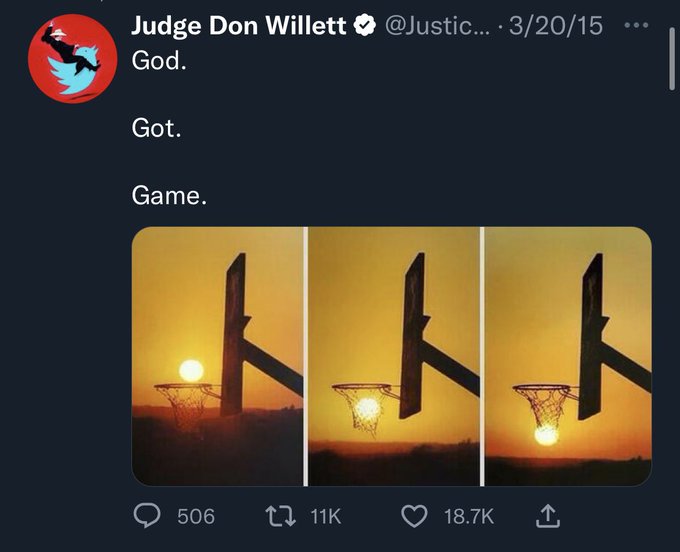 With #RIPTwitter trending as the top hashtag on that platform, it seemed like a good time to reflect on the phenomenon that is/was #appellatetwitter, and recall the remarkable talent of now-Judge @JusticeWillett for legal tweeting:
With #RIPTwitter trending as the top hashtag on that platform, it seemed like a good time to reflect on the phenomenon that is/was #appellatetwitter, and recall the remarkable talent of now-Judge @JusticeWillett for legal tweeting:
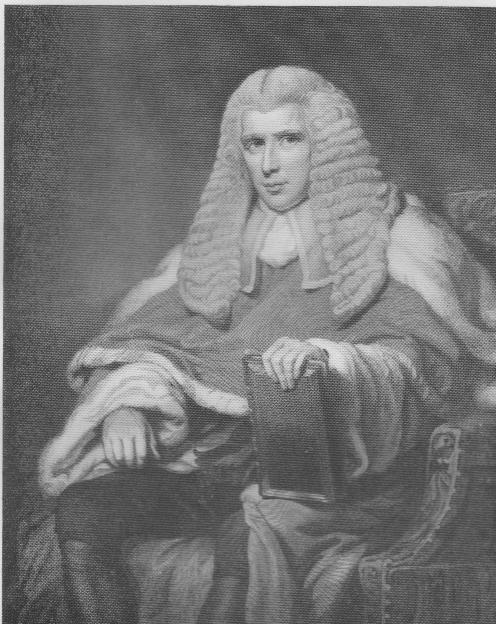 “Foreseeability is a fundamental prerequisite to the recovery of consequential damages for breach of contract.” T & C Devine, Ltd. v. Stericycle, Inc., No. 21-20310 (Nov. 15, 2022) (citation omitted); see also Hadley v. Baxendale, [1854] EWHC J70.
“Foreseeability is a fundamental prerequisite to the recovery of consequential damages for breach of contract.” T & C Devine, Ltd. v. Stericycle, Inc., No. 21-20310 (Nov. 15, 2022) (citation omitted); see also Hadley v. Baxendale, [1854] EWHC J70.
Consistent with that principle, the Fifth Circuit affirmed a summary judgment on a consequential-damage claim when the parties’ contract said that “[a]ll information obtained by [Plaintiff] in any Annual Report . . . shall be retained in the highest degree of confidentiality,” and went on to say: “Neither party may disclose the other party’s Confidential Information to any third party without the other party’s prior written approval.”
Thus: “Devine’s damages were not a probable consequence of the breach from Stericycle’s perspective at the time of contracting because it was not foreseeable that failing to provide confidential cost and expense data would deprive Devine of the opportunity to share that information with potential licensees.”
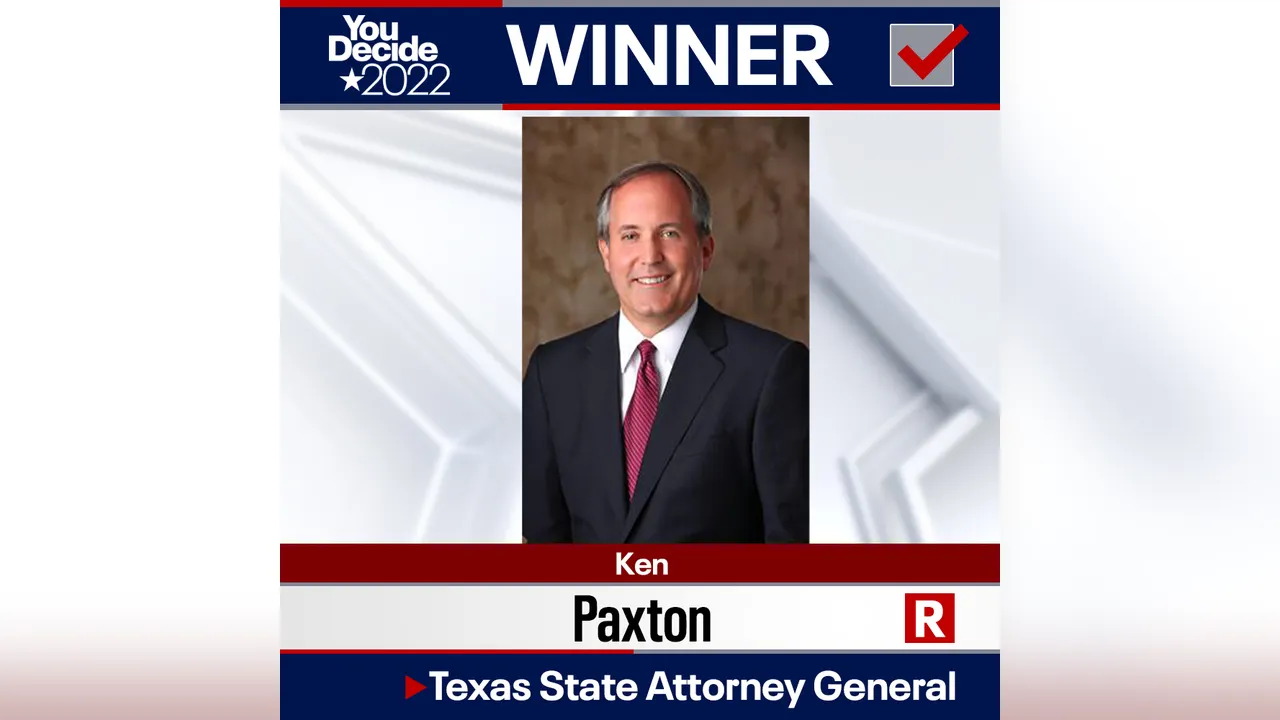 The Fifth Circuit granted mandamus relief as to an effort to subpoena Texas AG Ken Paxton for a deposition in a case about potentially overzealous enforcement of now-constitutional antiabortion laws.
The Fifth Circuit granted mandamus relief as to an effort to subpoena Texas AG Ken Paxton for a deposition in a case about potentially overzealous enforcement of now-constitutional antiabortion laws.
The panel majority concluded: (1) that the district court lacked subject matter jurisdiction and thus could not require his testimony, citing a recent Circuit case involving discovery and qualified immunity; (2) that the subpoena sought an inappropriate “apex” deposition; and (3) that plaintiffs overreached by opposing mandamus relief (because of a potential remedy by appeal), while also seeking to dismiss Paxton’s interlocutory appeal on immunity grounds (thus, extinguishing same).
A concurrence would have focused on the apex issue and not the broader dispute about jurisdiction, at least at this stage of the proceedings. In re Paxton, No. 22-50882 (Nov. 14, 2022) — REVISED, (Feb. 14, 2023).
Stringer v. Remington Arms, No. 18-60590 (Nov, 7, 2022), presents an instructive analysis of failure-to-disclose allegations, in the context of alleged fraudulent nondisclosure of a design defect in a popular rifle design.
The panel majority found a failure to satisfy Rule 9(b):
“In [plaintiffs’] complaint, they explain that they have found public resources that contradict Remington’s public statements regarding the safety of the XMP trigger. They also allege that Remington had “actual and/or physical knowledge of manufacturing, and/or, design deficiencies in the XMP Fire Control years before the death of Justin Stringer” and that the company received customer complaints regarding trigger malfunctions as early as 2008. But Plaintiffs do not make the leap to fraudulent concealment. They say merely that Remington “ignored” notice of a safety related problem.“
(applying Tuchman v. DSC Commc’ns Corp., 14 F.3d 1061, 1068 (5th Cir. 1994) (“If the facts pleaded in a complaint are peculiarly within the opposing party’s knowledge, fraud pleadings may be based on information and belief. However, this luxury ‘must not be mistaken for license to base claims of fraud on speculation and conclusory allegations.'”).
The dissent would have found that rule satisfied, based in part of the detail provided about what Remington knew: “The complaint’s allegations indicate that Remington knew about problems with the X-Mark Pro trigger before the recall but did not disclose its knowledge of those problems during the limitations period. And, contrary to Defendants’ assertion that the complaint allegations relate only to the “Walker” trigger, the deposition testimony cited in the complaint expressly references the “XMP” trigger at issue here.”
 In the 1985 classic, “Return of the Living Dead,” a rainstorm spreads a zombie-creating chemical throughout a city. In 2022, the Supreme Court’s relentless focus on originalism in cases like Dobbs has also awakened long-dead legal doctrines (even as it put to bed the prospects for a “Red Wave” in 2022’s Congressional elections).
In the 1985 classic, “Return of the Living Dead,” a rainstorm spreads a zombie-creating chemical throughout a city. In 2022, the Supreme Court’s relentless focus on originalism in cases like Dobbs has also awakened long-dead legal doctrines (even as it put to bed the prospects for a “Red Wave” in 2022’s Congressional elections).
Such a resurrection can be seen in the concurrence from Golden Glow Tanning Salon v. City of Columbus, No. 21-60898 (Nov. 8, 2022), which advocates an examination of a “right to earn a living” in light of how such economic matters were understood in the late 1700s.
Of course, that phrasing is precisely how the Supreme Court described the issue in Lochner v. New York, the long-discredited 1905 opinion that struck down a maximum-hour restriction in the baking industry:
“Statutes of the nature of that under review, limiting the
hours in which grown and intelligent men may labor to earn their living, are mere meddlesome interferences with the rights of the individual ….”
The Supreme Court abandoned Lochner in the 1930s when laissez-faire ideas proved useless in the face of a systemic failure of capitalism itself. There is, of course, ample room for argument about the proper role of government in the economy. But the invocation of “originalism” to simply ignore Lochner ‘s failure is not consistent with the recognized best practices for battling zombies.
 The slippery statutory-interpretation question in United States v. Palomares, briefly summarized in Monday’s post, presented a concurrence by Judge Andy Oldham. In it, he reminded of the importance of “textualism” in statutory interpretation, while cautioning against “hyper-literalism”:
The slippery statutory-interpretation question in United States v. Palomares, briefly summarized in Monday’s post, presented a concurrence by Judge Andy Oldham. In it, he reminded of the importance of “textualism” in statutory interpretation, while cautioning against “hyper-literalism”:
“‘[W]ords are given meaning by their context, and context includes the purpose of the text.’ As Justice Scalia once quipped, without context, we could not tell whether the word draft meant a bank note or a breeze. Such nuance is lost on the hyper-literalist.”
(citations omitted). He further observed:
“[H]yper-literalism … opens textualism to the very criticism that necessitated textualism in the first place. In one of the most influential law review articles ever written, Karl Llewellyn denigrated the late nineteenth century ‘Formal Period,’ in which ‘statutes tended to be limited or even eviscerated by wooden and literal reading, in a sort of long-drawn battle between a balky, stiff-necked, wrongheaded court and a legislature which had only words with which to drive that court.'”
(emphasis added, quoting Karl M. Llewellyn, “Remarks on the Theory of Appellate Decision and the Rules or Canons about How Statutes Are to Be Construed,” 3 Vanderbilt L. Rev. 395 (1950)).
 The prefix “hyper-” is well chosen; Jean Baudrillard’s Simulacra and Simulations developed the concept of “hyperreality,” by which “simulacra” of reality can supplant reality itself–precisely the scenario described by Llewellyn and Judge Oldham’s concurrence:
The prefix “hyper-” is well chosen; Jean Baudrillard’s Simulacra and Simulations developed the concept of “hyperreality,” by which “simulacra” of reality can supplant reality itself–precisely the scenario described by Llewellyn and Judge Oldham’s concurrence:
If we were able to take as the finest allegory of simulation the Borges tale where the cartographers of the Empire draw up a map so detailed that it ends up exactly covering the territory (but where, with the decline of the Empire this map becomes frayed and finally ruined, a few shreds still discernible in the deserts – the metaphysical beauty of this ruined abstraction, bearing witness to an imperial pride and rotting like a carcass, returning to the substance of the soil, rather as an aging double ends up being confused with the real thing), this fable would then have come full circle for us, and now has nothing but the discrete charm of second-order simulacra.
Bloomberg Law provides a good summary of yesterday’s arguments in SEC v. Cochran, addressed by the en banc Fifth Circuit in 2021, as to the appropriate places to advance constitutional challenges to SEC enforcement actions.
 Nonami Palomares received a 120-month, mandatory-minimum sentence for smuggling heroin. She sought a lower sentence under 18 U.S.C. § 3553(f), which allows a drug offender with a sufficiently minor criminal history to receive relief from a mandatory minimums if certain criteria are satisfied.
Nonami Palomares received a 120-month, mandatory-minimum sentence for smuggling heroin. She sought a lower sentence under 18 U.S.C. § 3553(f), which allows a drug offender with a sufficiently minor criminal history to receive relief from a mandatory minimums if certain criteria are satisfied.
So far, simple enough. That statute, however, is extremely difficult to read. It has produced a circuit split, as well as three separate opinions from the panel members in United States v. Palomares, No. 21-40247 (Nov. 2, 2022).
Try your hand, if you dare, at reading the below law, and then compare your conclusion to the panel members’. To obtain sentencing relief, did Palomares have to negate all three matters in (A)-(C), or only one of them?
The recent en banc vote in Wearry v. Foster featured discussion of a “dubitante” opinion filed by a panel member. Unfamiliar with the term, I learned from Wikipedia that this phrase has a long and distinguished – if somewhat obscure – history in judicial opinions as a way for a judge to note his or her doubts about the rule of decision.
I then consulted my friend Brent McGuire, the pastor of Our Redeemer Lutheran Church in Dallas, who gave me further detail:
“Dubitante would literally mean ‘having doubts’ or “with a wavering [mind].’ It’s the singular participial form of the verb dubitō, dubitāre, which means to doubt or to waver. But that ‘e’ ending means it’s the ablative case, which is basically the adverbial case, that is to say, the case the noun or adjective takes when used to describe in some way a verb, adjective, or other adverb.”
To illustrate its historical use, Pastor Maguire offered this epigram from Martial, found on the Tufts classical search engine:
which he translates roughly as:
Pastor Maguire explains: “Martial is telling the sculptor Polyclitus that his statute of Juno is so beautiful that Paris (at that most fateful beauty pageant on Ida) would have picked it over Venus (Aphrodite) and Minerva (Athena) without hesitation. Moreover, if Jupiter had not already fallen for his actual sister Juno, he would have fallen in love for Polyclitus’s statue of her.” Conversely, then, a “dubitante” judge may have joined Paris’s conclusion, but with nagging doubts about the eternal beauty of the goddesses.
 The Fifth Circuit denied mandamus relief in In re Planned Parenthood, noting, in particular, that:
The Fifth Circuit denied mandamus relief in In re Planned Parenthood, noting, in particular, that:
The district court also stressed the lateness of Petitioners’ motion to transfer. It concluded that the motion was “inexcusably delayed,” observing that Petitioners “filed their motion seven months after this case was unsealed and months into the discovery period.” The district court was within its discretion to conclude that Petitioners’ failure to seek relief until late in the litigation weighed against transfer. This conclusion is only strengthened by the fact that Petitioners waited to seek transfer until after the district court denied their motion to dismiss and motion for reconsideration.
No. 22-11009 (Oct. 31, 2022) (citations omitted). In a part of the opinion joined by two judges, the Court also favorably reviewed the district court’s analysis of the underlying forum-transfer issue.
 Central Crude, Inc. v. Liberty Mutual confirms that under Louisiana law, a pollution exclusion doesn’t require the insured to have the ultimate fault for the alleged pollution:
Central Crude, Inc. v. Liberty Mutual confirms that under Louisiana law, a pollution exclusion doesn’t require the insured to have the ultimate fault for the alleged pollution:
Neither the CGL policy nor [the Louisiana Supreme Court’s opinion in Doerr] requires identification of the party at fault for the oil spill in determining whether the total pollution exclusion applies here. The CGL policy’s total pollution exclusion broadly precludes coverage for bodily injury or property damage that “would not have occurred in whole or in part but for the actual, alleged or threatened discharge, dispersal, seepage, migration, release or escape of ‘pollutants’ at any time.” The provision requires a dispersal of pollutants but makes no requirement that the party responsible for the dispersal be determined.
No. 21-30707 (Oct. 26, 2022).
Among other issues from an insurance-coverage case arising from a building collapse, in Hudson Specialty Ins. Co. v. Talex Enterprises, LLC, the Fifth Circuit considered whether the expense of fire and police personnel was “maintenance” within the meaning of a policy exclusion. The Court found that term ambiguous as to those expenses, and thus construed it against the insurer:
The City paid for the around-the-clock presence of its fire and police personnel to protect the integrity of the site and keep people out.
On the one hand, it is reasonable to read this police and fire department presence as maintenance. By keeping watch over the site and keeping people out, these public safety officials were “upholding or keeping in being” the property in its current state. This aligns with one of the definitions of maintenance listed above.
On the other hand, the definitions of maintenance as “[t]he action of keeping something in working order” or “[t]he care and work put into property” both imply that actions are taken upon the property to keep it in working order. Keeping watch is an action, but it is not performed upon the property and does not involve putting work into the property. Thus, there are at least two reasonable meanings for the term maintenance—one where these expenses would fall under the exclusion and one where they would not.
No. 21-60794 (Oct. 28, 2022) (paragraph breaks added).
 Levy (a citizen of Louisiana) sued Dumesnil (also a citizen of Louisiana), along with Zurich American Insurance Company (not a citizen of Louisiana), and another entity that “claims to be citizen of Louisiana, and nothing in the record indicates otherwise.”
Levy (a citizen of Louisiana) sued Dumesnil (also a citizen of Louisiana), along with Zurich American Insurance Company (not a citizen of Louisiana), and another entity that “claims to be citizen of Louisiana, and nothing in the record indicates otherwise.”
Complete diversity thus did not exist. A citizen of Louisiana was on both sides of the “v.”
Nevertheless, Zurich persisted. It removed to federal court. At the time it removed, it was the only defendant that had been served. Thus, argued Zurich, it had successfully completed a “snap” removal under Texas Brine Co. v. American Arbitration Association, Inc., 955 F.3d 482 (5th Cir. 2020).
The Fifth Circuit granted mandamus relief as to the trial court’s denial of the plaintiff’s motion to remand. Yes, Zurich had removed before the in-state defendant had been served, and thus satisfied that requirement for a successful snap removal. But Zurich had not satisfied the more basic requirement for a snap – or for that matter, any – removal based on diversity: complete diversity of citizenship.
Because “the existence of diversity is determined from the fact of citizenship of the parties named and not from the fact of service,” removal was improper. In re Levy, No. 22-30622 (5th Cir. 2022) (applying New York Life Ins. Co. v. Deshotel, 142 F.3d 873, 883 (5th Cir. 1998))
 Summary judgment was affirmed in a contract case, despite the appellants’ claim that genuine issues of material fact existed about the overlap between two material parties: “Imperial and Harrison are—and always have been—separate entities with their own employees, customers, and warehouses. As the district court explained, A-Z and Ali do not allege, let alone present evidence, ‘that A-Z experienced any changes in ordering procedures, pricing, delivery schedules, type or brand of goods, inventory availability, or any other indicia that . . . [shows] it was no longer doing business with Harrison.'” Harrison Co., LLC v. A-Z Wholesalers, Inc., No. 21-11028 (Aug. 11, 2022).
Summary judgment was affirmed in a contract case, despite the appellants’ claim that genuine issues of material fact existed about the overlap between two material parties: “Imperial and Harrison are—and always have been—separate entities with their own employees, customers, and warehouses. As the district court explained, A-Z and Ali do not allege, let alone present evidence, ‘that A-Z experienced any changes in ordering procedures, pricing, delivery schedules, type or brand of goods, inventory availability, or any other indicia that . . . [shows] it was no longer doing business with Harrison.'” Harrison Co., LLC v. A-Z Wholesalers, Inc., No. 21-11028 (Aug. 11, 2022).
The Fifth Circuit set a boundary – literally – for part of the administrative state in BP v. FERC, which reviewed a FERC fine of BP for alleged gas-price manipulation associated with Hurricane Ike. The Court held:
Contrary to FERC’s position, we hold that the Commission has jurisdiction only over transactions in interstate natural gas directly regulated by the Natural Gas Act (NGA). Specifically, we reject FERC’s broader theory that its authority to address market manipulation extends to any natural gas transaction which affects the price of a transaction under the NGA. Otherwise, however, we uphold the Commission’s order. Nevertheless, because FERC predicated its penalty assessment on its erroneous position that it had jurisdiction over all (and not just some) of BP’s transactions, we must remand for reassessment of the penalty in the light of our jurisdictional holding.
No. 21-60083-CV (Oct. 20, 2022, unpublished) (emphasis added).
The Fifth Circuit recently declined to review Jarkesy v. SEC en banc; the division of votes was as follows (names in blue were appointed by a Democratic president; red, by a Republican one):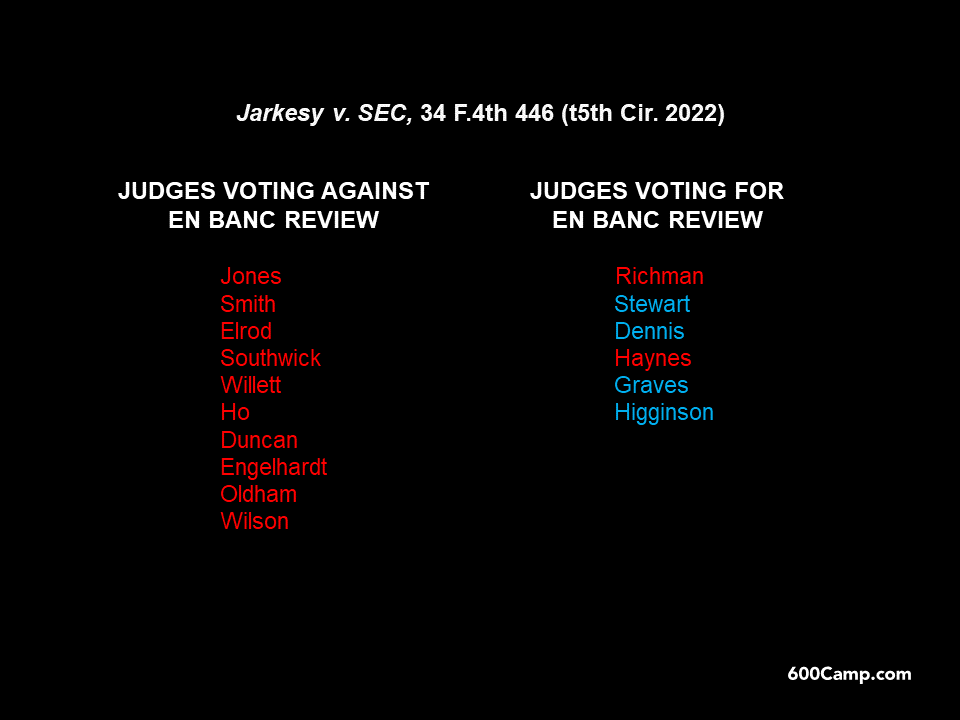
CFSA v. CFPB finds – again – that the Consumer Financial Protection Bureau is unconstitutionally structured, but this time because its “double insulated” funding mechanisms violated the Appropriations Clause by circumventing Congress’ “power of the purse.” The arguments about that fundamental Constitutional provision are intriguing and seem likely to draw the Supreme Court’s interest. No. 21-50826 (Oct. 19, 2022). The Fifth Circuit’s treatment creates a split with seven other federal courts, including PHH Corp. v. CFPB, 881 F.3d 75 (D.C. Cir. 2018). A recent Slate article offered criticism of the opinion.
The opinion also presents a rare appearance of the word “magisterial” to describe an earlier case on this topic:  Cf. Herman Hesse, “Magister Ludi” (1943).
Cf. Herman Hesse, “Magister Ludi” (1943).
 If you are a Yale law student grown weary of debate about judicial clerkship policies, please come visit us here at Lynn Pinker Hurst & Schwegmann – Chambers says we’re in the top handful of courtroom advocacy firms in Texas, and the Dallas economy and legal market are both booming.
If you are a Yale law student grown weary of debate about judicial clerkship policies, please come visit us here at Lynn Pinker Hurst & Schwegmann – Chambers says we’re in the top handful of courtroom advocacy firms in Texas, and the Dallas economy and legal market are both booming.
Ramirez v. Paloma Energy, No. 21-30536 (Oct. 12, 2022, unpublished), provides a clean example of affirmance on a ground presented by the record, independent of the district court’s opinion:
 Ultra Petroleum entered bankruptcy because of a sharp decline in natural gas prices. During the bankruptcy case, however, the price of gas recovered and soared and “propelled the debtors back into solvency.” That fortunate situation led to the question whether the “solvent debtor” concept survived recent Bankruptcy Code amendments.
Ultra Petroleum entered bankruptcy because of a sharp decline in natural gas prices. During the bankruptcy case, however, the price of gas recovered and soared and “propelled the debtors back into solvency.” That fortunate situation led to the question whether the “solvent debtor” concept survived recent Bankruptcy Code amendments.
The Fifth Circuit’s panel majority applied the relevant statutory-interpretation framework:
We must defer to prior bankruptcy practice unless expressly abrogated. The [Supreme] Court has endorsed a substantive canon of interpretation regarding the Bankruptcy Code vis-à-vis preexisting bankruptcy doctrine. Namely, abrogation of a prior bankruptcy practice generally requires an “unmistakably clear” statement on the part of Congress; any ambiguity will be construed in favor of prior practice.
(citations omitted), and concluded that the exception continued to apply:
The reason for this traditional, judicially-crafted exception is straightforward: Solvent debtors are, by definition, able to pay their debts in full on their contractual terms, and absent a legitimate bankruptcy reason to the contrary, they should. Unlike the typical insolvent bankrupt, a solvent debtor’s pie is large enough for every creditor to have his full slice. With an insolvent debtor, halting contractual interest from accruing serves the legitimate bankruptcy interest of equitably distributing a limited pie among competing creditors as of the time of the debtor’s filing. With a solvent debtor, that legitimate bankruptcy interest is not present.
Ultra Petroleum Corp. v. Ad Hoc Committee, No. 21-20008 (Oct. 14, 2022) (citations omitted). A dissent read the Code differently.
 Echoing the Fifth Circuit’s recent opinion in King v. Baylor Univ., in Jones v. Administrators of the Tulane Education Fund, the Court again allowed a breach-of-contract claim about virtual education to proceed past the Rule 12 stage, concluding:
Echoing the Fifth Circuit’s recent opinion in King v. Baylor Univ., in Jones v. Administrators of the Tulane Education Fund, the Court again allowed a breach-of-contract claim about virtual education to proceed past the Rule 12 stage, concluding:
“First, we hold that the claim is not barred as a claim of educational malpractice because the Students do not challenge the quality of the education received but the product received. Second, we reject Tulane’s argument that the breach-of-contract claim is foreclosed by an express agreement between the parties, because the agreement at issue plausibly does not govern refunds in this circumstance. And third, we conclude that the Students have not plausibly alleged that Tulane breached an express contract promising in-person instruction and on-campus facilities because the Students fail to point to any explicit language evidencing that promise. But we hold that the Students have plausibly alleged implied-in fact promises for in-person instruction and on-campus facilities.“
No. 21-30681 (Oct. 11, 2022) (emphasis in original).
The recent Crane v. City of Arlington opinion declined to dismiss a traffic-stop case on qualified immunity grounds, noting significant factual dispute about how the situation escalated into a tragic shooting. No. 21-10644 (revised Oct. 4, 2022). The Dallas Morning News covered the case, and I did a lengthy interview with Fox 4 in Dallas about it.
 In a COVID-19 coverage case, the appellant in Coleman E. Adler & Sons v. Axis Surplus Ins. Co. tried to avoid earlier Fifth Circuit precedent by pointing to a recent opinion from an intermediate Louisiana appellate court. The Fifth Circuit did not accept the appellant’s argument, noting:
In a COVID-19 coverage case, the appellant in Coleman E. Adler & Sons v. Axis Surplus Ins. Co. tried to avoid earlier Fifth Circuit precedent by pointing to a recent opinion from an intermediate Louisiana appellate court. The Fifth Circuit did not accept the appellant’s argument, noting:
- Orderliness. “Our court’s rule of orderliness applies to Erie cases no less than cases interpreting federal law.”
- Erie. “[T]here has been ‘neither a clearly contrary subsequent holding of the highest court of [Louisiana] nor a subsequent statutory authority, squarely on point.’ Nor has there been contrary intervening precedent that ‘comprises unanimous or near-unanimous holdings from several—preferably a majority —of the intermediate appellate courts of [Louisiana].’ We have only one subsequent decision from an intermediate state court, and that cannot overcome our rule of orderliness.” (citations omitted).
No. 21-30478 (Sept. 20, 2022).
 The panel majority in Freedom From Religion Foundation v. Mack found no coercion, and thus no standing for the plaintiff, in an Establishment Clause challenge to a Texas Justice of the Peace’s practices regarding a prayer at the beginning of court sessions. No. 21-20279 (Sept. 29, 2022).
The panel majority in Freedom From Religion Foundation v. Mack found no coercion, and thus no standing for the plaintiff, in an Establishment Clause challenge to a Texas Justice of the Peace’s practices regarding a prayer at the beginning of court sessions. No. 21-20279 (Sept. 29, 2022).
This case contrasts with Sambrano v. United States, in which the panel majority found standing in a Title VII case about a company’s vaccination requirement, concluding that the employer’s policies had a coercive effect as to certain employees’ religious beliefs. No. 21-11159 (Feb. 17, 2022, en banc review denied).
 Chevrolet’s Caprice Classic was a popular sedan in the late 1970s. But the term “caprice,” applied to the business-judgment rule in the bankruptcy context, was less popular with the Fifth Circuit in In re J.C. Penney, No. 22-40371 (Oct. 6, 2022).
Chevrolet’s Caprice Classic was a popular sedan in the late 1970s. But the term “caprice,” applied to the business-judgment rule in the bankruptcy context, was less popular with the Fifth Circuit in In re J.C. Penney, No. 22-40371 (Oct. 6, 2022).
Specifically, a sublessee from J.C. Penney challenged that debtor’s decision to reject that sublease, noting irregularities in the relevant bidding process, and urging adoption a view of the business-judgment rule that would not defer to “the product of bad faith, or whim, or caprice.” The Court disagreed, observing:
The question is not whether the debtor’s decision reasonably protects the interests of other parties, but rather whether the decision “appears to enhance a debtor’s estate.” This distinction proves fatal to Klairmont’s claim, as bankruptcy, by definition, often adversely affects the interests of other parties. The long-standing purpose of allowing debtors to shed executory contracts is to afford trustees and assignees the opportunity to reject “property of an onerous or unprofitable character.” The correct inquiry under the business judgment standard is whether the debtor’s decision regarding executory contracts benefits the debtor, not whether the decision harms third parties.
No. 22-40371 (Oct. 6, 2022).
The Onion, America’s Finest News Source, recently weighed in at SCOTUS with a brilliant amicus brief about First Amendment protection for parody; this excerpt summarizes the overall flavor:
 In Dune, Duke Leto Atreides cautions his son about the family’s move to Arrakis, telling him to watch for “a feint within a feint within a feint…seemingly without end.” In that spirit, Advanced Indicator & Mfg. v. Acadia Ins. Co. analyzed a complex removal issue, noting:
In Dune, Duke Leto Atreides cautions his son about the family’s move to Arrakis, telling him to watch for “a feint within a feint within a feint…seemingly without end.” In that spirit, Advanced Indicator & Mfg. v. Acadia Ins. Co. analyzed a complex removal issue, noting:
- “Ordinarily, diversity jurisdiction requires complete diversity—if any plaintiff is a citizen of the same State as any defendant, then diversity jurisdiction does not exist.”
- “‘However, if the plaintiff improperly joins a non-diverse defendant, then the court may disregard the citizenship of that defendant, dismiss the non-diverse defendant from the case, and exercise subject matter jurisdiction over the remaining diverse defendant.’ … A defendant may establish improper joinder in two ways: ‘(1) actual fraud in the pleading of jurisdictional facts, or (2) inability of the plaintiff to establish a cause of action against the non-diverse party in state court.’”
- But see: “[T]he voluntary-involuntary rule … dictates that ‘an action nonremovable when commenced may become removable thereafter only by the voluntary act of the plaintiff.’”
These principles applied to this situation: Advanced Indicator (a Texas business) sued Acadia Insurance (diverse) and its Texas-based insurance agent (not-diverse). But after suit was filed, Acadia invoked a Texas statute “which provides that should an insurer accept responsibility for its agent after suit is filed, ‘the court shall dismiss the action against the agent with prejudice.'”
The Fifth Circuit, noting different district-court opinions about this statute and carefully reviewing its own precedents, concluded that “because [the agent] was improperly joined at the time of removal, Acadia’s removal was proper.” No. 21-20092 (Oct. 3, 2022) (emphasis added, citations removed).
 Scylla and Charybdis, the “double threat” foes of Ulysses in the Odyssey (right), would have been interested in Denning v. Bond Pharmacy, Inc., where the plaintiff successfully “show[ed] an injury in fact through her breach of contract claims.” So far so good. But the Court continued: “Athough Denning has established injury in fact, she cannot get past the redressability prong required to establish standing. This is because her injury, as she alleges it, is not redressable by the compensatory and punitive damages that she seeks. Put another way, rendering an award of damages in favor of Denning does not redress her insurer’s injury of being subjected to AIS’s unauthorized billing practices.” No. 21-30534 (Sept. 30, 2022).
Scylla and Charybdis, the “double threat” foes of Ulysses in the Odyssey (right), would have been interested in Denning v. Bond Pharmacy, Inc., where the plaintiff successfully “show[ed] an injury in fact through her breach of contract claims.” So far so good. But the Court continued: “Athough Denning has established injury in fact, she cannot get past the redressability prong required to establish standing. This is because her injury, as she alleges it, is not redressable by the compensatory and punitive damages that she seeks. Put another way, rendering an award of damages in favor of Denning does not redress her insurer’s injury of being subjected to AIS’s unauthorized billing practices.” No. 21-30534 (Sept. 30, 2022).
Addressing a basic but delicate issue about franchise law, the Fifth Circuit stated its test for enforcement of an arbitration agreement based on “close relationship” principles in Franlink Inc. v. BACE Servcs., Inc.:
Borrowing from the precedents, including the Third and Seventh Circuits, we extract a few fundamental factors applicable here that we will consider in determining whether these nonsignatories are closely related: (1) common ownership between the signatory and the non-signatory, (2) direct benefits obtained from the contract at issue, (3) knowledge of the agreement generally and (4) awareness of the forum selection clause particularly. Of course, the closely-related doctrine is context specific and is determined only after weighing the significance of the facts relevant to the particular case at hand.
No. 21-20316 (Sept. 28, 2022) (citations omitted, emphasis added).
 In Rhone v. City of Texas City, the Fifth Circuit denied a request for emergency relief without prejudice, first describing the controlling rules:
In Rhone v. City of Texas City, the Fifth Circuit denied a request for emergency relief without prejudice, first describing the controlling rules:
[Fed. R. App. P. ] 8(a)(1) states that “[a] party must ordinarily move first in the district court for … (A) a stay of the judgment or order of a district court pending appeal.” Rule 8(a)(2) provides, however that “[a] motion for the relief mentioned in Rule 8(a)(1) may be made to the court of appeals or to one of its judges.” That provision is subject to a requirement that “[t]he motion must: (i) show that moving first in the district court would be impracticable; or (ii) state that, a motion having been made, the district court denied the motion or failed to afford the relief requested and state any reasons given by the district court for its action.” Rule 8(a)(2)(A).
Applying those rules, the Court concluded:
In this case, Rhone has moved for relief from judgment in the district court and no ruling has been made. As such, this motion is premature. Therefore, the motion before us is denied without prejudice. Should the district court deny Rhone’s pending motion, Rhone may revive the motion in this Court.
No. 22-40551 (Sept. 19, 2022, unpublished).
The district court in Williams v. Biomedical Research Foundation imposed a sanction for what it saw as an “impertinent” email to its law clerk. The Fifth Circuit reversed, noting: “The district judge signaled his intent to sanction Plante-Northington for the first time at an oral hearing on an unrelated matter. He then imposed the sanctions just minutes later at that hearing. Plante-Northington was allowed to utter only a few sentences in her defense before she was cut off. More importantly, she was given no advance notice sufficient for preparing a written or oral submission in response to the contemplated sanctions.” No. 22-30064 (Aug. 24, 2022) (unpublished).
Professor Steve Vladeck recently filed a provocative amicus brief about the State of Texas’s forum-selection practices in public law / constitutional cases.
The Fifth Circuit is soliciting comment on a potential change to local rule 47.5.4:
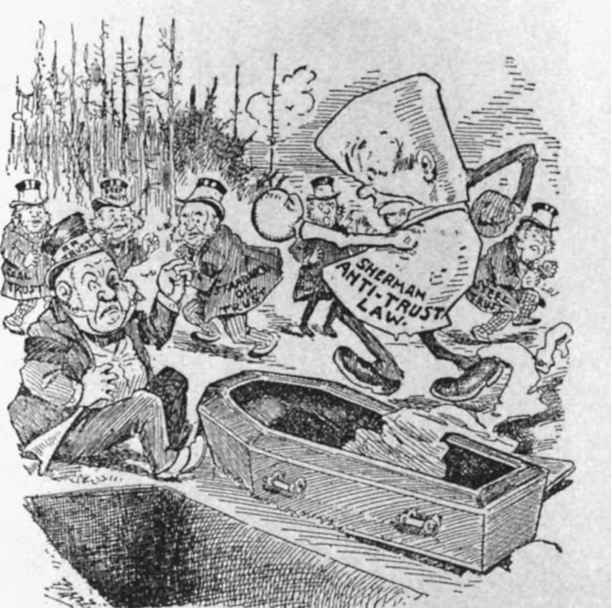 In BRFHH Shreveport, LLC v. Willis-Knighton Medical Center, the Fifth Circuit affirmed the dismissal of antitrust claims when:
In BRFHH Shreveport, LLC v. Willis-Knighton Medical Center, the Fifth Circuit affirmed the dismissal of antitrust claims when:
- As to the plaintiff’s theory of a “threat-and-accession” agreement in violation of section 1 of the Sherman Act, “[t]he problem is that LSU had a completely independent reason for refusing to cooperate with BRF, which predated any alleged coercion by Willis-Knighton. Specifically, LSU issued a notice of breach to BRF in 2015--the year before LSU’s cash crunch and Willis-Knighton’s alleged coercion.” (emphasis in original).
- And as to the related monopolization claim under section 2, the relevant allegations “are little more than high-level assertions about how wonderful things would be if Willis-Knighton hadn’t formed an exclusive-dealing relationship with LSU … [T]hey are miles away from plausibly alleging that Willis-Knighton came close to substantially foreclosing the Shreveport healthcare market.”
No. 21-30622 (Sept. 19, 2022).
Today 600Camp celebrates its 11th birthday! For old times’ sake, here is the 10th-anniversary post from last year. Stir up some Shrimp Remoulade to celebrate properly!
The Fifth Circuit found an improper use of the Declaratory Judgment Act, and thus declined to apply the “first-filed” rule to a Louisiana lawsuit and deferring to another proceeding in Texas, when the record showed these facts:
“In June 2021, Bee Sand sued Pontchartrain in Texas state court. Pontchartrain removed the case to federal court in July. Later that month, Bee Sand voluntarily dismissed the case, and explained to Pontchartrain that it intended to refile in September— after a new Texas law governing attorney’s fees went into effect. Bee Sand also offered to refile in federal court to spare Pontchartrain the expense of a second removal, and Pontchartrain said that it would consider the matter. Instead of responding to this offer, Pontchartrain sought to preempt Bee Sand by suing in Louisiana state court on August 26, 2021. Pontchartrain requested a declaratory judgment in its favor.”
Pontchartrain Partners, LLC v. Tierra de los Lagos, LLC, No. 22-30286 (Sept. 15, 2022).
 After a 5-4 order from the Supreme Court that allowed a stay of Texas’ social-media law to remain in effect, a 2-1 panel opinion rejected a First Amendment challenge to that law in NetChoice LLC v. Paxton, No. 21-51178 (Sept. 16, 2022) (Judge Oldham writing the majority opinion, largely joined by Judge Jones who wrote her own concurrence, with Judge Southwick dissenting). The dissent aptly observed: “The Supreme Court will, as always, have the final word.”
After a 5-4 order from the Supreme Court that allowed a stay of Texas’ social-media law to remain in effect, a 2-1 panel opinion rejected a First Amendment challenge to that law in NetChoice LLC v. Paxton, No. 21-51178 (Sept. 16, 2022) (Judge Oldham writing the majority opinion, largely joined by Judge Jones who wrote her own concurrence, with Judge Southwick dissenting). The dissent aptly observed: “The Supreme Court will, as always, have the final word.”
Legal instruments often contain polite phrases before they get to the actual command in the instrument (“you have been sued and must file an answer,” or “you have been drafted,” etc.) Defense Distributed v. Platkin presents an unusual example of polite language in a legal instrument with no accompanying command, the background for which is as follows:
- Earlier this year, a 2-1 Fifth panel decision ordered a district judge, who had transferred a case about 3-D printed firearms to the District of New Jersey, to request the retransfer of that case back to Texas. (Judge Jones wrote the opinion, joined by Judge Elrod, with Judge Higginson dissenting).
- The New Jersey court considered the matter and declined the request on July 27.
- The Texas judge then closed the file, prompting further proceedings in the Fifth Circuit.
On September 16, the Court issued a routine order setting the matter for the earliest available argument date–but with a concurrence joined by two judges, asking that the New Jersey court reconsider the issue of transfer back to Texas:
“We can think of no substantive reason—and none has been offered to us—why this case should nevertheless proceed in New Jersey rather than Texas, other than disagreement with our decision in Defense Distributed. The Attorney General of New Jersey confirmed as much during oral argument. So we respectfully ask the District of New Jersey to honor our decision in Defense Distributed and grant the request to return the case back to the Western District of Texas—consistent with the judiciary’s longstanding tradition of comity, both within and across the circuits ….”
No. 22-50669 (Sept. 16, 2022) (Judge Ho concurring, joined by Judge Elrod, but not Judge Graves).
 A surprising amount of case law addresses not whether a particular legal conclusion is correct, but whether it is “correct enough”–qualified immunity, for example, as well as mandamus cases about whether a “clear error” occurred in applying the law. Another such area involves whether the Fifth or the Federal Circuit has appellate jurisdiction over “Walker Process cases”–antitrust claims based on enforcement of a fraudulent patent. In Chandler v. Phoenix Services LLC, the Fifth Circuit held:
A surprising amount of case law addresses not whether a particular legal conclusion is correct, but whether it is “correct enough”–qualified immunity, for example, as well as mandamus cases about whether a “clear error” occurred in applying the law. Another such area involves whether the Fifth or the Federal Circuit has appellate jurisdiction over “Walker Process cases”–antitrust claims based on enforcement of a fraudulent patent. In Chandler v. Phoenix Services LLC, the Fifth Circuit held:
“We differ with the Federal Circuit over whether we have appellate jurisdiction over Walker Process cases. But the Supreme Court has told us to accept circuit-to-circuit transfers if the jurisdictional question is ‘plausible.’ While we continue to disagree with the Federal Circuit on this point, we do not find the transfer implausible. We therefore accept the case and affirm the district court’s judgment.”
No. 21-10626 (Aug. 15, 2022) (citations omitted).
 It’s been a busy fall for the Dormant Commerce Clause. In addition to the Fifth Circuit’s recent invalidation of a Texas law about the ownership of electricity-generation facilities, the Court also struck down a New Orleans residency requirement for the ownership of Vrbo-type rental properties:
It’s been a busy fall for the Dormant Commerce Clause. In addition to the Fifth Circuit’s recent invalidation of a Texas law about the ownership of electricity-generation facilities, the Court also struck down a New Orleans residency requirement for the ownership of Vrbo-type rental properties:
The district court held that the residency requirement discriminated against interstate commerce. That was the right call. But the court then applied the Pike test [for an incidental effect] to uphold the law. That was a mistake; it should have asked whether the City had reasonable nondiscriminatory alternatives to achieve its policy goals. Because there are many such alternatives, the residency requirement is unconstitutional under the dormant Commerce Clause.
Hignell-Stark v. City of New Orleans, No. 21-30643 (Aug. 22, 2022).
 Henley v. Biloxi H.M.A., L.L.C., No. 20-60991 (Aug. 31, 2022), presented a thorny issue about tort liability for nondisclosure; here, certain information about rates charged by health-care providers. Applying the relevant Restatement provisions, the Fifth Circuit rejected the district court’s distinction between “basic” and “material” facts, and reversed the dismissal of the nondisclosure claim under Rule 12(b)(6).No. 20-60991 (Aug. 31, 2022).
Henley v. Biloxi H.M.A., L.L.C., No. 20-60991 (Aug. 31, 2022), presented a thorny issue about tort liability for nondisclosure; here, certain information about rates charged by health-care providers. Applying the relevant Restatement provisions, the Fifth Circuit rejected the district court’s distinction between “basic” and “material” facts, and reversed the dismissal of the nondisclosure claim under Rule 12(b)(6).No. 20-60991 (Aug. 31, 2022).
The plaintiff in King v. Baylor Univ. contended that Baylor had breached a contract with her (the “Financial Responsibility Agreement” pursuant to which she paid her tuition). During the COVID-19 pandemic, students at Baylor University were promised that they would have live classes on campus, but the university went “all-virtual” instead. She contended that she had made an informed decision to attend Baylor “live” when in fact her education was delivered remotely. The Fifth Circuit found potential ambiguity in the phrase “educational services” in the parties’ contract and remanded for further development of that issue. No. 21-50352 (Aug. 23, 2022).
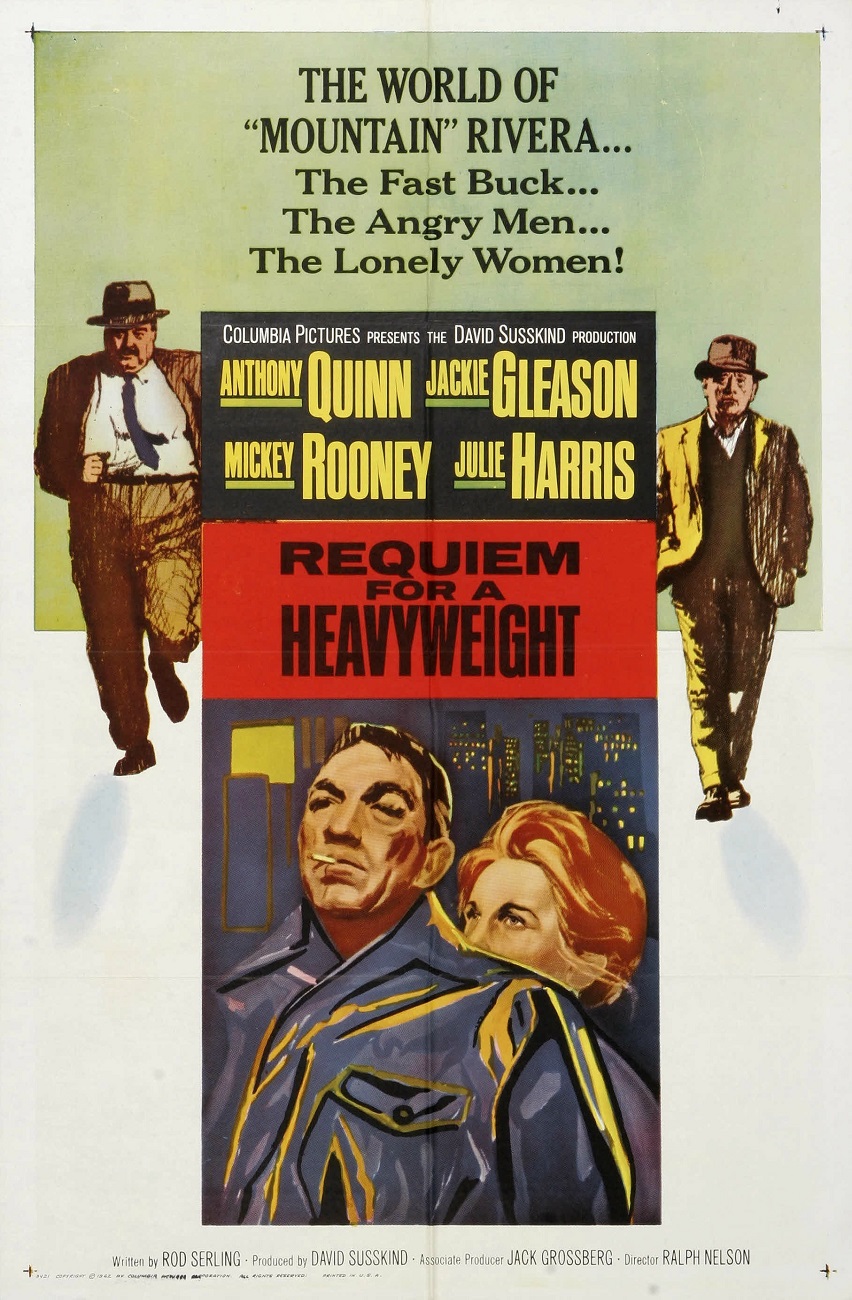 In addition to the Court’s holding about the dormant Commerce Clause, NextEra Energy Capital v. Lake explained why the plaintiff’s claim based on the Commerce Clause was properly rejected (with citations omitted, although the citations are valuable and instructive):
In addition to the Court’s holding about the dormant Commerce Clause, NextEra Energy Capital v. Lake explained why the plaintiff’s claim based on the Commerce Clause was properly rejected (with citations omitted, although the citations are valuable and instructive):
One of the original Constitution’s only express limitations on state power, it directs that “No State shall … pass any … Law impairing the Obligation of Contracts.” The Contracts Clause was a response to the state laws relieving debtors during the 1780s. In the first century or so of the Republic, before the Bill of Rights restricted states, the Contracts Clause was “the primary vehicle for federal review of state legislation.” Some of the greatest hits of the antebellum Supreme Court were Contracts Clause cases.
But unlike the dormant Commerce Clause, the Contracts Clause is not what it once was. The Supreme Court substantially narrowed its scope during the Great Depression. Under modern caselaw, states have some leeway to alter parties’ contractual relationships “to safeguard the vital interests of [their] people.”
A related principle that has sapped the Contracts Clause of its earlier force applies here. We now recognize that parties contract with an expectation of possible regulation. That is especially true in highly regulated industries like power. That history of regulation put NextEra on notice that Texas could enact additional regulations affecting its two projects. After Order 1000, there was substantial uncertainty about how state regulators would respond.
Despite PUCT’s declaration that transmission-only companies could enter the market, Texas courts never weighed in on the issue. Moreover, the emergence of state rights of first refusal signaled that Texas could enact something similar, if not more restrictive.
No. 20-50160 (Aug. 30, 2022).
“Imagine if Texas—a state that prides itself on promoting free enterprise—passed a law saying that only those with existing oil wells in the state could drill new wells. It would be hard to believe. It would also raise significant questions under the dormant Commerce Clause. …
Texas recently enacted such a ban on new entrants in a market with a more direct connection to interstate commerce than the drilling of oil wells: the building of transmission lines that are part of multistate electricity
grids. A 2019 law says that the ability to build, own, or operate new lines “that directly [connect] with an existing utility facility . . . may be granted only to the owner of that existing facility.” …NextEra challenges the new law, as it applies to the interstate electricity networks in Texas (but not the intrastate ERCOT network), on dormant Commerce Clause grounds. … Once we wade through the thicket of electricity regulation, the ban’s interference with interstate commerce becomes as clear as it is for the oil well hypothetical. We thus conclude that the dormant Commerce Clause claims should proceed past the pleading stage.”
NextEra Energy Capital v. Lake, No. 20-50160 (Aug. 30, 2022) (citations omitted).
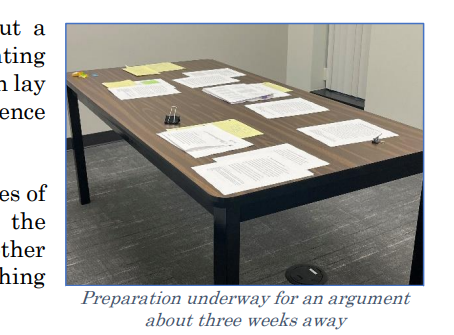 For August’s end-of-month summary by the Fifth Circuit Bar Association, I contributed a one-page article about preparation for oral argument, complete with action picture (right), joining a similar one contributed last month by Association president Tom Flanagan of New Orleans. If you belong to the BAFFC, I encourage you to write one of your own! And if you don’t belong you should, it’s a great resource and features an outstanding body of work about the Fifth Circuit by the able Walter Woodruff, also of New Orleans.
For August’s end-of-month summary by the Fifth Circuit Bar Association, I contributed a one-page article about preparation for oral argument, complete with action picture (right), joining a similar one contributed last month by Association president Tom Flanagan of New Orleans. If you belong to the BAFFC, I encourage you to write one of your own! And if you don’t belong you should, it’s a great resource and features an outstanding body of work about the Fifth Circuit by the able Walter Woodruff, also of New Orleans.
A long-running trademark dispute involving a New Orleans dining treasure, the Camellia Grill, came to an end in Uptown Grill, LLC v. Cameilla Grill Holdings, Inc. Among other holdings, the Fifth Circuit held that the following permanent injunction about trade dress was not an abuse of discretion “where the district court adhered to our recitation of … eight elements [in a prior opinion in the case], albeit adding the less precise language ‘all or most.'” The Court distinguished “other cases in which injunctions referencing trade dress have been reversed for vagueness, [because] the injunction set forth by the district court here has much more detail than a general prohibition from employing ‘confusingly similar’ trade dress.”
In crafting this injunction, the Court looks specifically to the definition of “trade dress” utilized by the Fifth Circuit in its May 29, 2019 opinion. “Trade dress” is defined as “the total image and overall appearance of a product [that] may include features such as the size, shape, color, color combinations, textures, graphics, and even sales techniques that characterize a particular product.” The alleged elements of trade dress include: (1) the pink and green interior paint scheme, (2) the “U-Shaped” double horseshoe counter design, (3) the stainless steel stemmed stools with green stool cushions, (4) the fluted metal design under the customer side of the counter and above the cooking line, (5) the visible pie cases attached to the rear wall at both ends of the cooking line, (6) the “straw popping” routine, (7) audible order calling routine, and (8) the individual counter checks handed to each customer. The enjoined parties’ utilization of all or most of the above Camellia Grill trade dress elements at any single location will constitute a violation of this injunction.
No. 21-30639 (Aug. 23, 2022).
The plaintiffs in Lee v. Andrew Lawrence Collection LLC sought to register the trademark “THEEILOVE” – a phrase associated with the alma mater of Jackson State University. Then they sued that university’s licensing agent and some licensees.
The defendants successfully moved to dismiss under the infrequently-used combination of Fed. R. Civ. P. 19 and 12(b)(7), based on the university’s interest in the subject matter, and the Fifth Circuit affirmed. It reasoned:
- Interest. The university had a non-frivolous interest in the ownership of the mark based on the university’s consistent usage of it, and that interest could be “practically impaired” by a decision on that topic in this case (as distinct from an analysis of whether a judgment would in fact be preclusive). Thus, the university was a required party under Rule 19(a)(1)(B)(i).
- Proceed or dismiss? As a state university, Jackson State had sovereign immunity from suit; that interest “is necessarily impaired when plaintiffs try to use the state’s sovereign immunity to lure it into a lawsuit against its will.” That issue alone favored dismissal. The Court noted that the other, practically focused factots in Rule 19(b) also favored dismissal.
No. 20-30796 (Aug. 24, 2022). (In honor of this fairly rare analysis of Rule 19, here is a link to Paul Hardcastle’s 1985 hit Nineteen.)
Sambrano v. United Airlines, a religious-discrimination case about an airline’s vaccine mandate that prompted a (literally) fiery dissent from the panel opinion, ended in a 13-4 vote against en banc review. A dissent again urged caution in the use of unpublished (and thus, nonprecedential) opinions in significant matters. No. 21-11159 (Aug. 18, 2022).
In the unlikely event that any litigation proceeds under Texas’ SB8 law after Dobbs, a useful reference will be Perez v. McCreary, Veselka, Bragg & Allen, P.C., which found that a plaintiff’s claim under the Fair Debt Collection Act about an inaccurate demand letter failed to satisfy Article III standing requirements:
“’Congress’s creation of a statutory prohibition or obligation and a cause of action does not relieve courts of their responsibility to independently decide whether a plaintiff has suffered a concrete harm under Article III.’ Any other rule would allow Congress to grant private plaintiffs a personal stake in enforcing regulatory law and ultimately usurp the President’s Article II authority to execute the laws. And that would aggrandize our power by letting us resolve disputes that are not ‘of a Judiciary Nature.’
No. 21-50958 (Aug. 15, 2022) (citations omitted) (applying TransUnion LLC v. Ramirez, 141 S. Ct. 2190 (2021)).
The 2017 collision between the MV ACX Crystal and the destroyer U.S. Fitzgerald led to litigation in New Orleans federal court against NYK, a huge shipping concern with global operations. The district court acknowledged that for this international case, the constitutional standard for personal jurisdiction was based on the Fifth rather than the Fourteenth Amendment, but concluded that the standards were materially similar and that it lacked jurisdiction over NYK.
A Fifth Circuit panel affirmed and the en banc court did also, noting that the other Circuits addressing this constitutional question reached similar conclusions. A dissent argued that the majority’s position about jurisdiction would undermine the effective operation of Congressionally-created causes of action involving asset seizure by the Castro regime and terrorist activity. Douglass v. NYK, No. 20-30382 (Aug. 16, 2022) (en banc). The judges’ votes broke along atypical lines and are detailed below:
In State of Louisiana v. Biden, the district court enjoined the federal government from pausing certain oil and gas lease sales:
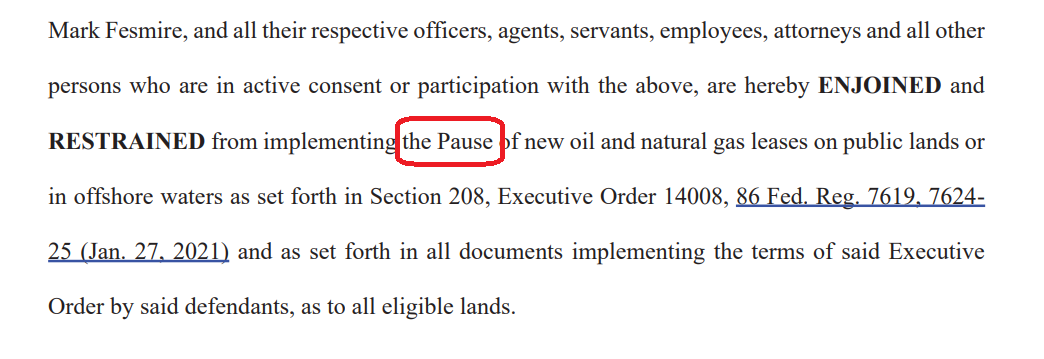 The Fifth Circuit found that the term “Pause” was too vague to satisfy Fed. R. Civ. P. 65, even considering the district court’s accompanying opinion: “The present injunction fails to meet Rule 65(d) requirements. We cannot reach the merits of the Government’s challenge when we cannot ascertain from the record what conduct—an unwritten agency policy, a written policy outside of the Executive Order, or the Executive Order itself—is enjoined. Our review of APA claims must begin by determining if there was final agency action. Where, as here, it is unclear what final agency action the district court predicated its order upon, we are unable to reach the merits of the appeal.” No. 21-30505 (Aug. 17, 2022).
The Fifth Circuit found that the term “Pause” was too vague to satisfy Fed. R. Civ. P. 65, even considering the district court’s accompanying opinion: “The present injunction fails to meet Rule 65(d) requirements. We cannot reach the merits of the Government’s challenge when we cannot ascertain from the record what conduct—an unwritten agency policy, a written policy outside of the Executive Order, or the Executive Order itself—is enjoined. Our review of APA claims must begin by determining if there was final agency action. Where, as here, it is unclear what final agency action the district court predicated its order upon, we are unable to reach the merits of the appeal.” No. 21-30505 (Aug. 17, 2022).
The well-known poem Antigonish begins:
Yesterday, upon the stair,
I met a man who wasn’t there
He wasn’t there again today
I wish, I wish he’d go away.
In that general spirit, in recent days, both the U.S. Court of Appeals for the Fifth Circuit and the Court of Appeals for the Fifth District at Dallas had close en banc votes involving questions of arbitrability, as to a party who “wasn’t there”–who had not signed an arbitration agreement, but was nevertheless potentially subject to it. (The Dallas case is discussed here; the Fifth Circuit’s, here.)
Whether the timing is an example of synchronicity I will leave to others. The courts’ difficulty with these issues shows the strong feelings provoked by the issue of court access, even among very sophisticated jurists, in an area of the law with well-developed case law on many key points.
 In CAE integrated, LLC v. Moov Techs., aoLtd., the plaintiff (CAE) sought a preliminary injunction, alleging that a former employee (Meissner) improperly took confidential information about customers to his new employer (Moov). The district court found otherwise and the Fifth Circuit affirmed on the record presented, noting:
In CAE integrated, LLC v. Moov Techs., aoLtd., the plaintiff (CAE) sought a preliminary injunction, alleging that a former employee (Meissner) improperly took confidential information about customers to his new employer (Moov). The district court found otherwise and the Fifth Circuit affirmed on the record presented, noting:
- “Meissner’s knowledge of whom he worked with while at CAE, absent other evidence, is insufficient to support a finding that he misappropriated trade secrets.”
- “CAE has not identified a single contact whose information was not publicly available or ascertainable through proper means. Semiconductor industry participants are available in third-party directories, meet at conventions and trade shows, and can be found through online searches.”
The Court also noted that the employee had lost access to the relevant Google Drive some time before the injunction hearing. No. 22-50034 (Aug. 9, 2022).
 By an 8-8 vote over a dissent, the full Fifth Circuit declined to review Newman v. Plains All Am. Pipeline, L.P., a case about a court’s power to determine arbitrability when a nonsignatory seeks to enforce an arbitration clause. The breakdown of votes was as follows (Senior Judge King was the third panel member):
By an 8-8 vote over a dissent, the full Fifth Circuit declined to review Newman v. Plains All Am. Pipeline, L.P., a case about a court’s power to determine arbitrability when a nonsignatory seeks to enforce an arbitration clause. The breakdown of votes was as follows (Senior Judge King was the third panel member):
The plaintiff in Beatriz Ball, L.L.C. v. Barballago Co. alleged that a competitor’s line of tableware infringed on the plaintiff’s unregistered trade dress for its Organic Pearl, products.
After a 3-day bench trial, the trial court ruled for the defendant. The Fifth Circuit reversed and remanded. The key Lanham Act issue was whether the plaintiff’s trade dress had acquired secondary meaning. Of the seven relevant factors, three required additional scrutiny on remand:
- Volume of sales. “Beatriz Ball offered evidence of the exact volume of sales attributable to the Organic Pearl collection. … [W]hether this multimillion-dollar volume of sales ultimately weighs for or against secondary meaning should be reconsidered. No current circuit precedent expressly addresses a $6.6 million volume, but two cases uphold much higher volumes and one rejects a much lower volume as indicia of secondary meaning.”
- Nature of use in newspapers and magazines. “In its analysis of the ‘newspaper and magazines’ factor, the district court observed that ‘very few of the advertisements reference the collection by name and just as many advertisements highlight Beatriz Ball pieces from other collections.’ As Beatriz Ball points out, however, ‘[t]his is not a suit over rights to a name; it’s a suit over rights to product designs.'”
- Defendant’s intent. “Beatriz Ball’s trade dress claim is not confined to products that include a pearl rim or that might include some distortions in the product’s shape. As described, the trade dress exhibits a unique combination of features pertaining to the individuality of each piece, the irregular and unpredictable size and shape of the pearls, the undulated shape of the body, the metallic shine, and the overall, accurate impression that each piece was handmade with artisanal quality. None of the products presented at trial incorporated these elements holistically like the Pampa Bay products.”
No. 21-30029 (July 12, 2022).
 In a change from the constitutional issues that have plagued the SEC in court of late, in SEC v. World Tree Financial, LLC, the Fifth Circuit affirmed a securities-fraud judgment based on “a fraudulent ‘cherry-picking’ scheme, in which [defendants] allocated favorable trades to themselves and favored clients and unfavorable trades to disfavored clients.” Proof of this scheme required sophisticated statistical analysis, summarized as follows:
In a change from the constitutional issues that have plagued the SEC in court of late, in SEC v. World Tree Financial, LLC, the Fifth Circuit affirmed a securities-fraud judgment based on “a fraudulent ‘cherry-picking’ scheme, in which [defendants] allocated favorable trades to themselves and favored clients and unfavorable trades to disfavored clients.” Proof of this scheme required sophisticated statistical analysis, summarized as follows:
To analyze World Tree’s allocation data, [the SEC’s expert] divided the client accounts into three categories: (1) accounts controlled by Perkins, Gilmore, or both (“Favored-Perkins accounts”); (2) accounts owned by World Tree clients other than Matthew LeBlanc and his business Delcambre Cellular (“Favored-Client accounts”); and (3) accounts owned by LeBlanc and Delcambre (“Disfavored accounts”). She then measured several performance measures and subsets of trades: most and least profitable trades, day trades, average first-day returns, earnings-day trades, overlapping stocks, and trades after LeBlanc complained to Perkins about his accounts’ poor performance. According to her analysis, from July 2012 to July 2015, Perkins methodically allocated trades with favorable first-day returns to the FavoredPerkins and Favored-Client accounts, while allocating trades with unfavorable first-day returns to the Disfavored accounts.
[She] opined that the “evidence overwhelmingly indicates that Perkins engaged in cherry-picking.” Though she acknowledged at trial that the data reflected only a pattern and that she did not “have the ability to identify individual trades that may or may not be improper,” the data in the aggregate showed a “one in one million chance that these patterns could have occurred if allocations were being made without regard to first-day return.”
No. 21-30063 (Aug. 4, 2022).
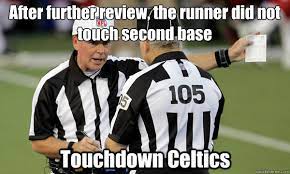 Beatriz Ball, L.L.C. v. Barballago Co., No. 21-30029 (July 12, 2022), a trade-dress case under the Lanham Act, produced a thorough concurrence by soon-to-depart Judge Costa about the distinctions between review of bench trials, and review of jury verdicts. He began by observing:
Beatriz Ball, L.L.C. v. Barballago Co., No. 21-30029 (July 12, 2022), a trade-dress case under the Lanham Act, produced a thorough concurrence by soon-to-depart Judge Costa about the distinctions between review of bench trials, and review of jury verdicts. He began by observing:
“I write separately to remark on how our remand of the trade dress claim reveals a paradox that has perplexed me about bench trials: We give a trial judge’s detailed and intensive factfinding less deference than a jury’s unexplained verdict.
If a jury had rejected Beatriz Ball’s trade dress claim—giving no more explanation than a simple ‘No’ on the verdict form—we would presumably affirm. After all, we do not hold that Beatriz Ball is entitled to judgment as a matter of law on this claim. Instead, we remand for the district court to reassess the trade dress claim because of some errors in its 33 pages explaining why it found no protectable trade dress.”
And he concluded after a review of history and social-science research: “It turns out, then, that there is good reason for the seeming anomaly of giving less deference to bench trials: Larger and more representative groups are the ones more likely to reach the correct outcome.”
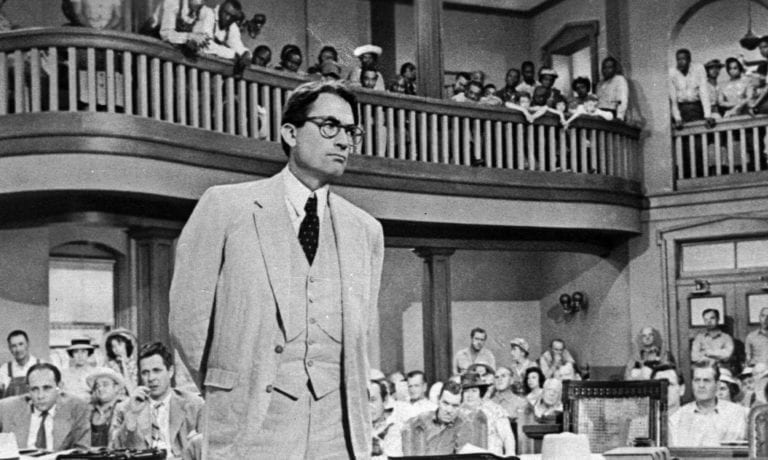 In its analysis, the concurrence notes one commentator’s observation that “while the Seventh Amendment does not compel the backwards-seeming rule giving less deference to judges’ findings, it does explain it. ‘[O]ur traditional and constitutionalized reverence for jury trial’ is why we trust juries more.” An element of that “traditional reverence” may well include some indifference to whether a jury in fact reaches a “correct” result, as the mere existence of a jury has a powerful symbolic value in its own right. See generally Batson v. Kentucky, 476 U.S. 79, 90 (1986) (“In view of the heterogeneous population of our Nation, public respect for our criminal justice system and the rule of law will be strengthened if we ensure that no citizen is disqualified from jury service because of his race.”).
In its analysis, the concurrence notes one commentator’s observation that “while the Seventh Amendment does not compel the backwards-seeming rule giving less deference to judges’ findings, it does explain it. ‘[O]ur traditional and constitutionalized reverence for jury trial’ is why we trust juries more.” An element of that “traditional reverence” may well include some indifference to whether a jury in fact reaches a “correct” result, as the mere existence of a jury has a powerful symbolic value in its own right. See generally Batson v. Kentucky, 476 U.S. 79, 90 (1986) (“In view of the heterogeneous population of our Nation, public respect for our criminal justice system and the rule of law will be strengthened if we ensure that no citizen is disqualified from jury service because of his race.”).
The Fifth Circuit found that the federal courts had “related to” jurisdiction because of the relationship between litigation and a bankruptcy plan:
“In Zale, the dispute between NUFIC and Cigna risked disrupting Zale’s reorganization by threatening Zale’s recovery from and access to the Cigna policy funds. Here, NFC’s claims risked the same disruptions: GenMa had pledged to pay the Lessors lots of money and to keep specified cash reserves as part of a global settlement between several parties to GenOn’s restructuring. By threatening GenMa’s ability to fulfill those commitments, NFC’s claims pertained to ‘the implementation and execution’ of that crucial settlement, which was part of GenOn’s plan. Craig’s Stores, 266 F.3d at 390. So we have related-to jurisdiction. 28 U.S.C. § 1334(b).”
Natixis Funding Corp. v. Gen-On Mid-Atlantic, LLC, No. 21-20557 (July 29, 2022).
 The panel majority in E.T. v. Paxton held that a group of students lacked standing (based on their concerns about catching COVID-19) to challenge Governor Abbott’s order prohibiting school mask mandates, noting:
The panel majority in E.T. v. Paxton held that a group of students lacked standing (based on their concerns about catching COVID-19) to challenge Governor Abbott’s order prohibiting school mask mandates, noting:
“This circuit does not ‘recognize the concept of probabilistic standing based on a non-particularized increased risk—that is, an increased risk that equally affects the general public.’ And even where increased-risk claims are particularized, they generally ‘cannot satisfy the actual or imminent requirement,’ which necessitates ‘evidence of a certainly impending harm or substantial risk of harm.’ That’s because ‘[m]uch government regulation slightly increases a citizen’s risk of injury—or insufficiently decreases the risk compared to what some citizens might prefer.'”
But cf. Sambrano v. United Airlines, No. 21-11159 (Feb. 17, 2022) (unpublished) (finding standing in a COVID vaccine-mandate case when: “Plaintiffs are several United employees who requested religious or medical accommodations from United. Those requesting religious accommodations did so out of concern that aborted fetal tissue was used to develop or test the COVID-19 vaccines.”).
My colleague Kyle Gardner and I wrote this article for the most recent Headnotes about two cases–one federal, one state–that summarize basic personal-jurisdiction principles for Texas in business cases.
The Bankruptcy Code allows debtors to breach and cease performing executory contracts if the bankruptcy court approves. We thus have held that debtors may “reject” regulated energy contracts even if the Federal Energy
Regulatory Commission (“FERC”) would not like them to. A sister circuit agrees, and we confirmed our view mere months ago[.]Nevertheless, FERC persisted. Anticipating the petitioner’s insolvency, FERC issued four orders purporting to bind the petitioner to continue performing its gas transit contracts even if it rejected them during bankruptcy. The petitioner asks us to vacate those orders. Because FERC cannot countermand a debtor’s bankruptcy-law rights or the bankruptcy court’s powers, we grant the petitions for review and vacate the orders.
Gulfport Energy Corp. v. FERC, No. 21-60017 (July 19, 2022) (citations omitted).
 The holding of Union Pacific R.R. Co. v. City of Palestine may be of interest only to the parties, but the backstory is a sprawling drama about westward expansion and the legal framework that followed it: “Union Pacific Railroad Company seeks to end its operations in Palestine, Texas, but has been unable to do so because a 1954 Agreement between its predecessor and Defendants City of Palestine and Anderson County, Texas has prevented it from leaving. Because the 1954 Agreement is preempted by the Interstate Commerce Commission Termination Act, Union Pacific is free to leave. … The background of this case spans 150 years, and we have discussed much of it in prior opinions. We nonetheless recount it here to illuminate the intersection between the parties’ purported contractual agreements and increased federal regulation of the railroad system.” No. 21-40445 (July 22, 2022) (cleaned up) (emphasis added).
The holding of Union Pacific R.R. Co. v. City of Palestine may be of interest only to the parties, but the backstory is a sprawling drama about westward expansion and the legal framework that followed it: “Union Pacific Railroad Company seeks to end its operations in Palestine, Texas, but has been unable to do so because a 1954 Agreement between its predecessor and Defendants City of Palestine and Anderson County, Texas has prevented it from leaving. Because the 1954 Agreement is preempted by the Interstate Commerce Commission Termination Act, Union Pacific is free to leave. … The background of this case spans 150 years, and we have discussed much of it in prior opinions. We nonetheless recount it here to illuminate the intersection between the parties’ purported contractual agreements and increased federal regulation of the railroad system.” No. 21-40445 (July 22, 2022) (cleaned up) (emphasis added).
 A sweeping analysis of different types of disgorgement led to this conclusion about the securities laws in SEC v. Hallam: “[W]e conclude that Sections 78u(d)(3) and (d)(7) authorize legal ‘disgorgement’ apart from the equitable ‘disgorgement’ permitted by Liu. That answers the question which ‘soil,’ came with the ‘term of art,’ that Congress used.” No. 21-10222 (July 19, 2022) (citations omitted). While focused on a precise issue about the most recent amendments to federal securities law, Hallam offers a detailed history and summary of approaches to disgorgement of ill-gotten gains, in both law and equity.
A sweeping analysis of different types of disgorgement led to this conclusion about the securities laws in SEC v. Hallam: “[W]e conclude that Sections 78u(d)(3) and (d)(7) authorize legal ‘disgorgement’ apart from the equitable ‘disgorgement’ permitted by Liu. That answers the question which ‘soil,’ came with the ‘term of art,’ that Congress used.” No. 21-10222 (July 19, 2022) (citations omitted). While focused on a precise issue about the most recent amendments to federal securities law, Hallam offers a detailed history and summary of approaches to disgorgement of ill-gotten gains, in both law and equity.
“[T]he oldest and most consistent thread in the federal law of justiciability is that the federal courts will not give advisory opinions.” E.g., In re: Franchise Servcs. of N. Am., 891 F.3d 198 (5th Cir. 2018). That said, not all statements of legal rules are the same (as detailed in this Pepperdine Law Review article that I co-authored several years ago). Illustrating that point:
- In Leonard v. Martin, the panel majority in a discovery-order mandamus observed in a footnote: “In mandamus cases, this court often holds ‘that a district court erred, despite stopping short of issuing a writ of mandamus.'” (citation omitted) No. 21-30475 (June 30, 2022).
- In SEC v. Novinger, the concurrence in a case resolved on procedural grounds about Fed. R. Civ. P. 60(b) observed: “If you want to settle, SEC’s policy says, ‘Hold your tongue, and don’t say anything truthful—ever’—or get bankrupted by having to continue litigating with the SEC. A more effective prior restraint is hard to imagine. … Given the agency’s current activism, I think it will not be long before the courts are called on to fully consider this policy.” No. 21-10985 (July 12, 2022).
- And in SEC v. Hallam, a case about the kind of disgorgement available as a remedy under the securities laws, the Court observed: “… if we are confronted with an appeal from a request for an award of that nature, we may need to decide whether it could be equitable disgorgement consistent with Liu’s constraining those awards to ‘net profits[.]” And that may also require us to resolve Hallam’s contention that the SEC is required strictly to trace the ill-gotten gains, and the profits on them, into assets still held by the defendant.” No. 21-10222 (July 19, 2022) (citations omitted).
 Louisiana Indep. Pharmacies Ass’n v. Express Scripts, Inc. “presents a novel issue concerning the amount in controversy requirement for diversity jurisdiction in cases brought by organizations on behalf of their members.” An association of Louisiana pharmacists sought a declaration about their appropriate Medicare reimbursement, and while the total value of all their claims exceeded $75,000, the Fifth Circuit concluded that the law required that “at least one pharmacy would have to allege that Express Scripts shortchanged it on the provider fee for over 750,000 Medicare Part D prescriptions.” Accordingly, it dismissed for lack of subject matter jurisdiction. No. 21-30331 (July 20, 2022).
Louisiana Indep. Pharmacies Ass’n v. Express Scripts, Inc. “presents a novel issue concerning the amount in controversy requirement for diversity jurisdiction in cases brought by organizations on behalf of their members.” An association of Louisiana pharmacists sought a declaration about their appropriate Medicare reimbursement, and while the total value of all their claims exceeded $75,000, the Fifth Circuit concluded that the law required that “at least one pharmacy would have to allege that Express Scripts shortchanged it on the provider fee for over 750,000 Medicare Part D prescriptions.” Accordingly, it dismissed for lack of subject matter jurisdiction. No. 21-30331 (July 20, 2022).
 Despite a contrary view of the case by a motions panel, a majority of the the panel that received the merits briefing denied the petitions for review in Wages & White Lions Investments LLC v. FDA, a case about the regulation of “vaping” products: “Petitioners advance two primary arguments: (1) FDA acted arbitrarily and capriciously by pulling a ‘surprise switcheroo‘ on Petitioners and failing to consider important aspects of the PMTAs; and (2) FDA lacks statutory authority to impose a comparative efficacy requirement. We are unpersuaded by either argument.”
Despite a contrary view of the case by a motions panel, a majority of the the panel that received the merits briefing denied the petitions for review in Wages & White Lions Investments LLC v. FDA, a case about the regulation of “vaping” products: “Petitioners advance two primary arguments: (1) FDA acted arbitrarily and capriciously by pulling a ‘surprise switcheroo‘ on Petitioners and failing to consider important aspects of the PMTAs; and (2) FDA lacks statutory authority to impose a comparative efficacy requirement. We are unpersuaded by either argument.”
A dissent saw matters otherwise: “In a mockery of ‘reasoned’ administrative decision making, FDA (1) changed the rules for private entities in the middle of their marketing application process, (2) failed to notify the public of the changes in time for compliance, and then (3) rubber-stamped the denial of their marketing applications because of the hitherto unknown requirements.” A petition for en banc rehearing seems a near certainty. No. 21-60766 (July 18, 2022).
My friend Walter Woodruff and I have picked our “Top Five Cases to Know” from the Fifth Circuit for the first half of 2022 – we agreed on 3/5 – the Bar Association for the Fifth Federal Circuit has been Tweeting them out the last few days!
 Preble-Rich, a Haitian company, had a contract with a Haitian government agency to deliver fuel. A payment dispute developed and Preble-Rich started an arbitration in New York, pursuant to a broad clause in the parties’ contract (“In the event of a dispute between the [Parties] under this Contract, the dispute shall be submitted by either party to arbitration in New York. … The decision of the arbitrators shall be final, conclusive and binding on all Parties. Judgment upon such award may be entered in any court of competent jurisdiction.”).
Preble-Rich, a Haitian company, had a contract with a Haitian government agency to deliver fuel. A payment dispute developed and Preble-Rich started an arbitration in New York, pursuant to a broad clause in the parties’ contract (“In the event of a dispute between the [Parties] under this Contract, the dispute shall be submitted by either party to arbitration in New York. … The decision of the arbitrators shall be final, conclusive and binding on all Parties. Judgment upon such award may be entered in any court of competent jurisdiction.”).
Preble-Rich obtained “a partial final award of security” from the arbitration panel requiring the posting of $23 million in security. Litigation to enforce that award led to Preble-Rish Haiti, S.A. v. Republic of Haiti, No. 22-20221, which held that the above clause was not an explicit waiver of immunity from attachment as required by the Foreign Sovereign Immunity Act, 28 U.S.C. § 1610(d). “The arbitration clause is relevant to whether BMPAD waived its sovereign immunity from suit generally, but a waiver of immunity from suit has ‘no bearing upon the question of immunity from prejudgment attachment.’” (citation omitted).
In reaching an important holding about the scope of “federal officer” removal, as applied to “critical infrastructure” businesses operating during the pandemic:
In this case, we must decide whether Tyson Foods, Inc. was “acting under” direction from the federal government when it chose to keep its poultry processing plants open during the early months of the COVID-19 pandemic. Tyson argues that it was, and that the district courts erred in remanding these cases back to state court. But the record simply does not bear out Tyson’s theory. Tyson received, at most, strong encouragement from the federal government. But Tyson was never told that it must keep its facilities open. Try as it might, Tyson cannot transmogrify suggestion and concern into direction and control.
(emphasis in original), the Fifth Circuit provided some interesting history about that important statute:
Congress enacted the first “federal officer removal statute” during the War of 1812 to protect U.S. customs officials. New England states were generally opposed to the war, and shipowners from the region took to suing federal agents charged with enforcing the trade embargo against England. Congress responded by giving customs officials the right to remove state-court actions brought against them to federal court. Since that time Congress has given the right of removal to more and more federal officers. Today all federal officers as well as “any person acting under that officer” are eligible.
(footnotes omitted). Glenn v. Tyson Foods, Inc., No. 21-40622 (July 7, 2022).
A recent Texas Monthly article offers a detailed analysis of the Fifth Circuit and its recent opinions.
On a Texas tort-law question about liability for a brake failure, the Fifth Circuit reasoned:
We do not think this question is close enough to warrant certification to the Supreme Court of Texas. See McMillan v. Amazon.com, 983 F.3d 194, 202 (5th Cir. 2020) (noting that certification is usually reserved for close questions of state law with “scant on-point precedent”). Certification is appropriate when “consequential state-law ground is to be plowed” and “any Erie guess would involve more divining than discerning.” Id. Our guess today is a safer bet. The Guijarros have not identified a single case cabining Armstrong to the realm of products liability. See Troice v. Greenberg Traurig, L.L.P., 921 F.3d 501, 504–05 (5th Cir. 2019) (declining to certify because multiple intermediate courts had adopted one view of the issue, and the plaintiff had not identified any contrary authority). Nor does such a distinction make sense. Add to the one-sidedness of this issue that neither party requested certification.
We conclude that Texas law requires plaintiffs alleging a brake defect to put forth “competent expert testimony and objective proof” that the defect caused their injuries.
Guijarro v. Enterprise Holdings, Inc., No. 21-40512 (July 5, 2022).
“A bench ruling can be effective without a written order and does trigger appeal deadlines if it is final—which this ruling was. While Guerra is right that the district court’s bench ruling did not comply with [Fed. R. Civ. P.] 58’s ‘separate document’ requirement, that neither prevented him from appealing nor gave him infinite time to appeal.” Ueckert v. Guerra, No. 22-40263 (June 27, 2022).
The Fifth Circuit has set for rehearing en banc:
- Feds for Medical Freedom v. Biden (the “federal employee vaccine” case, in which a panel reversed an injunction against a Presidential executive order about COVID-19 vaccination); and
- Cargill v. Garland (the “bump stock” case, in which a panel rejected a challenge to ATF’s regulation that treats a bump stock as a “machine gun” under the relevant firearms statute)
Ardoin v. Robinson, in which the Fifth Circuit denied a stay in a case about a new Louisiana congressional district, was stayed by the Supreme Court, which also granted the cert petition and held the matter held in abeyance pending a ruling in another case.
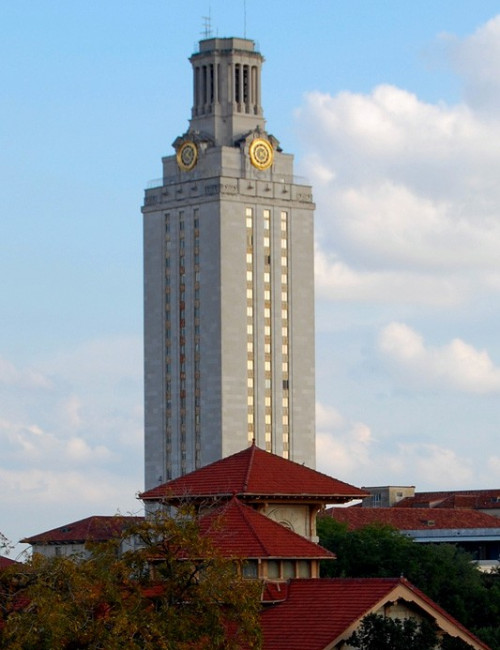 As Dickens famously wrote in Bleak House: “Jarndyce and Jarndyce drones on. This scarecrow of a suit has, in course of time, become so complicated that no man alive knows what it means. … Innumerable children have been born into the cause; innumerable young people have married into it; innumerable old people have died out of it.”
As Dickens famously wrote in Bleak House: “Jarndyce and Jarndyce drones on. This scarecrow of a suit has, in course of time, become so complicated that no man alive knows what it means. … Innumerable children have been born into the cause; innumerable young people have married into it; innumerable old people have died out of it.”
So to, the affirmative-action litigation about admissions policy at the University of Texas at Austin, where the Fifth Circuit held, inter alia, that an organization called “Students for Fair Admissions” was not barred by claim preclusion from bringing suit when (1) its principals were involved in earlier litigation, but did not control the new entity and had sued before in different capacities, and (2) the facts about UT’s policies and the makeup of its student body had materially changed since the earlier litigation. Students for Fair Admission, Inc. v. Univ. of Tex. at Austin, No. 21-50715 (June 20, 2022).
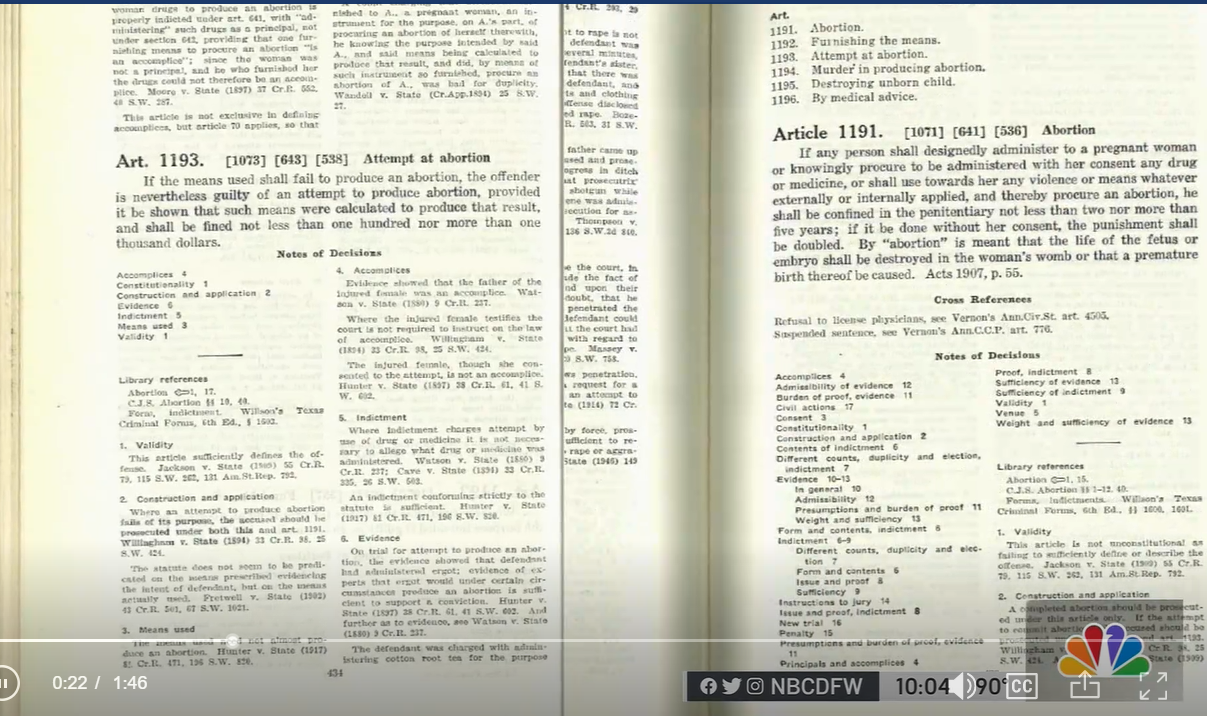 Have the pre-Roe statutes (right) come back to life by operation of law? I give a high-level summary here.
Have the pre-Roe statutes (right) come back to life by operation of law? I give a high-level summary here.
 Robinson v. Ardoin addressed whether to stay a preliminary injunction in a highly technical Voting Rights Act case about Louisiana’s congressional districts. The Court’s analysis of timeliness is of general interest in preliminary injunction practice involving similar situations (a board election or vote, etc.), even though some of the policy interests involved are unique to elections for public office. The key facts were:
Robinson v. Ardoin addressed whether to stay a preliminary injunction in a highly technical Voting Rights Act case about Louisiana’s congressional districts. The Court’s analysis of timeliness is of general interest in preliminary injunction practice involving similar situations (a board election or vote, etc.), even though some of the policy interests involved are unique to elections for public office. The key facts were:
- The primary election at issue was five months away; the deadline for a candidate to qualify for that election by paying a fee was approximately a month away, which was the path chosen by most candidates;
- While “multiple mailings could confuse some voters,” there was “[m]ore than enough time … for the state to assuage any uncertainty,” especially when no one had yet cast a ballot; and
- While “administrative burdens” related to equipment maintenance and voter-roll review were legitimate concerns, evidence showed that the state had significant administrative experience in adjusting to changes in the time, place, and manner of elections.
No. 22-30333 (June 12, 2022).
 The Fifth Circuit reversed the denial of a motion to remand when:
The Fifth Circuit reversed the denial of a motion to remand when:
- The defendant’s claimed amount in controversy did not tie to the plaintiff’s specific claim. “Deutsche Bank failed to establish by a preponderance of the evidence that the amount in controversy was over $75,000. Deutsche Bank submitted evidence of the Property’s value [$427,662], which obviously exceeded the jurisdictional threshold. But Deutsche Bank failed to show that the automatic stay at issue here put the house’s value in controversy.”
- The plaintiff stipulated it sought no more than $74,500. Citing a statement in the plaintiff’s pleading and an near-identical one in a later declaration, the Court said: “The best reading of these two statements is that Durbois is seeking–and will accept–no more than $74,500.” It continued: “Deutsche Bank claims these
 statements are insufficient. We don’t see why. Durbois used two forms of the word ‘stipulation’ and even bolded it once. A reasonable reader would understand that Durbois was limiting not only what he demanded but what he would accept from the suit. Perhaps Deutsche Bank thinks Durbois “should have used CAPITAL LETTERS …. [o]r maybe … should have added: ‘And [I] really mean it!!!’” But we don’t think such measures are necessary.” (The opinion did not address the potential role of semaphore signals in providing emphasis.)
statements are insufficient. We don’t see why. Durbois used two forms of the word ‘stipulation’ and even bolded it once. A reasonable reader would understand that Durbois was limiting not only what he demanded but what he would accept from the suit. Perhaps Deutsche Bank thinks Durbois “should have used CAPITAL LETTERS …. [o]r maybe … should have added: ‘And [I] really mean it!!!’” But we don’t think such measures are necessary.” (The opinion did not address the potential role of semaphore signals in providing emphasis.)
Durbois v. Deutsche Bank, No. 20-11082 (June 16, 2022) (emphasis added, citation omitted)). The opinion thoroughly reviews the case law on these basic issues, and the “CAPITAL LETTERS” point may prove meme-worthy in the months ahead.
The Fifth Circuit found that the natural-disaster exception to the WARN Act did not apply to COVID-19, reasoning:
The natural-disaster exception provides that “[n]o notice under this chapter shall be required if the plant closing or mass layoff is due to any form of natural disaster, such as a flood, earthquake, or the drought currently ravaging the farmlands of the United States.” Congress’s use of the term “such as” “indicat[es] that there are includable other matters of the same kind which are not specifically enumerated by the standard.” By providing three examples after “such as,” Congress indicated that the phrase, “natural disaster” includes events of the same kind as floods, earthquakes, and droughts.
Easom v. U.S. Well Servcs., No. 21-20202 (June 15, 2022). The Court went on to discuss specific canons of interpretation relevant to this observation.
CitiMortgage complained that a borrower made his mortgage payments late under a Trial Period Plan, and was thus ineligible for a loan modification. The borrower countered that he satisfied the TPP’s grace period for payments and the Fifth Circuit agreed: “[T]he TPP establishes a grace period. It accepts payment so long as it is made ‘in the month in which it is due.’ Neither the TPP nor the parties use the term ‘grace period’ to describe this language. But that is plainly what the text contemplates. And no one disputes that Burbridge’s payments comply with the governing grace periods.” Burbridge v. Citi Mortgage, No. 21-40309 (June 16, 2022).
 Overruling almost 30-year-old precedent from the Fifth Circuit, a 5-4 Supreme Court ruled for a Texas Indian tribe and its plans to operate bingo facilities. Ysleta del Sur Pueblo v. Texas, No. 20-493 (U.S. June 15, 2022). The El Paso Matters website has a good summary of the case and the parties’ views of the opinion.
Overruling almost 30-year-old precedent from the Fifth Circuit, a 5-4 Supreme Court ruled for a Texas Indian tribe and its plans to operate bingo facilities. Ysleta del Sur Pueblo v. Texas, No. 20-493 (U.S. June 15, 2022). The El Paso Matters website has a good summary of the case and the parties’ views of the opinion.
In his 19th round of judicial nominations, announced yesterday, President Biden has nominated U.S. Magistrate Judge Dana Douglas of New Orleans to the Fifth Circuit. The White House website provides a short biographical sketch:
 From first-year Torts comes XL Insurance Am., Inc. v. Turn Servcs., LLC, with a discussion of the economic loss rule and the physical injury exception to it.
From first-year Torts comes XL Insurance Am., Inc. v. Turn Servcs., LLC, with a discussion of the economic loss rule and the physical injury exception to it.
- The en banc Fifth Circuit held in Louisiana ex rel. Guste v. M/V TESTBANK, 752 F.2d 1019 (5th Cir. 1985): “Denying recovery for pure economic losses is a pragmatic limitation on the doctrine of foreseeability, a limitation we find to be both workable and useful.”
- But only a few months later, the Fifth Circuit held that “owners of cargo aboard a ship involved in a collision could recover their economic losses, despite their cargo’s being undamaged,” noting that given “a risk-shifting provision in the cargo-owners’ agreement with the ship owner, there was no risk of ‘double recovery, much less runaway recovery.'” Amoco Transp. Co. v. S/S Mason Lykes, 768 F.2d 659 (5th Cir. 1985).
XL Insurance fell on the Amoco side of the line as to $1.254 million in repair costs after an allision. No. 21-30520 (June 10, 2022).
Our firm again achieved Chambers & Partners Band One status this year for commercial litigation in the D/FW area; my partner Mike Lynn and I wrote the lead article introducing this year’s rankings and talking about our area’s strong economy and legal market.
Certain app developers had a sufficient interest to intervene in an FLSA case against Anadarko when: “The plaintiffs … represented in their contracts with the Intervenors that they were ‘independent professionals’—somewhat in tension with the plaintiffs’ current litigation position that they were really Anadarko’s employees. More importantly, the plaintiffs agreed to arbitrate ‘every claim, controversy, allegation, or dispute arising out of or relating in any way to’ not only their relationship with the Intervenors, but also their resulting work placements with Anadarko.” Field v. Anadarko Petroleum, No. 22-20054 (June 7, 2022).
“Where, as here, a rule 12(b)(1) motion is filed in conjunction with a rule 12(b)(6) motion courts must consider the jurisdictional challenge first. The district court did so here, correctly finding jurisdiction lacking. But the district court then dismissed the action with prejudice, which our caselaw prohibits.” Williams v. Am. Commercial Lines, No. 21-30609 (May 24, 2022) (unpublished).
The Fifth Circuit recently put in place some new local rules about disclosure statements and certificates of service.
While the district court and the Fifth Circuit largely saw eye-to-eye on the contract in Otteman v. Knights of Columbus (a dispute between the Catholic lay organization and an affiliated insurance salesman), they differed on one provision related to the handling of “high-value prospects”:
The parties differ in their understanding of this conduct. Ottemann’s interpretation of this provision, as alleged in his complaint, is that “[S]ection[] 4 of the [GA] Agreement … stated that Plaintiff was an independent contractor that was ‘free to exercise independent judgment as to eligible persons from who applications for insurance will be solicited’ and have ‘freedom of action.’”
The Order responds that the GA contract explicitly stated that Ottemann had no “authority to bind the Order to issue any insurance policy,” and that it was no breach to tell Ottemann not “to waste his (and the Order’s) time and resources soliciting that person.” The Order also argues there would be no damages to sustain a claim because, even if Ottemann was allowed to solicit Lombardi, the Order contractually reserved rights to refuse the issuance of policies.
We hold that Ottemann’s claim as to Section 4 is plausible at the motion to dismiss stage. Although there is nothing particularly surprising about the Order’s interest in diverting high-value prospects into a special sales program, the contract states that the rules and procedures set up by the Order “shall not be construed as interfering with the freedom of action of the General Agent.” The contract does not demarcate the boundary between Ottemann’s freedom of action as a GA and the scope of the Order’s ability to dictate “rules and procedures” that would divert otherwise available insurance prospects from his territory.
No. 21-30138 (June 2, 2022) (additional spacing added).
 Perhaps you have been wondering: “Did Exxon Mobil Corp. v. Saudi Basic Indus. Corp., 544 U.S. 280 (2005), implicitly overrule Hale v. Harney, 786 F.2d 688 (5th Cir. 1986), and thereby limit the scope of the Rooker-Feldman doctrine in the Fifth Circuit?”
Perhaps you have been wondering: “Did Exxon Mobil Corp. v. Saudi Basic Indus. Corp., 544 U.S. 280 (2005), implicitly overrule Hale v. Harney, 786 F.2d 688 (5th Cir. 1986), and thereby limit the scope of the Rooker-Feldman doctrine in the Fifth Circuit?”
If so, you need fret no longer. While the Rooker-Feldman doctrine continues to “generally preclude[] lower federal courts ‘from exercising appellate jurisdiction over final state-court judgments,” we now know with certainty, from Miller v. Dunn, that “Rooker-Feldman is inapplicable where a state appeal is pending when the federal suit is filing.” No. 20-11054 (June 2, 2022).
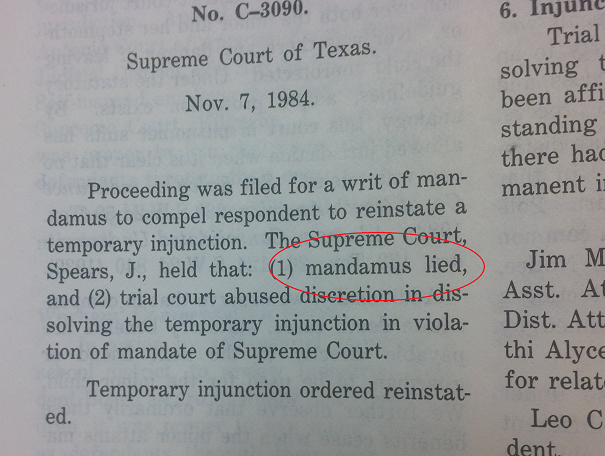 A thicket of issues surrounding an attempted prosecution of Netflix led to an unsuccessful mandamus petition by the prosecutor; among other holdings, the Fifth Circuit said: “We have not been shown any example of an effort by this circuit to consider the approach of the three circuits identified by the district court. Such caselaw from other circuits is not dispositive on whether there is a ‘clear and indisputable’ right to a writ of mandamus. Regardless of the precise reasoning that justifies a federal court to require discovery of state grand jury proceedings, we conclude that Babin has not demonstrated entitlement to mandamus relief under this theory.” No. 22-40306 (May 25, 2022).
A thicket of issues surrounding an attempted prosecution of Netflix led to an unsuccessful mandamus petition by the prosecutor; among other holdings, the Fifth Circuit said: “We have not been shown any example of an effort by this circuit to consider the approach of the three circuits identified by the district court. Such caselaw from other circuits is not dispositive on whether there is a ‘clear and indisputable’ right to a writ of mandamus. Regardless of the precise reasoning that justifies a federal court to require discovery of state grand jury proceedings, we conclude that Babin has not demonstrated entitlement to mandamus relief under this theory.” No. 22-40306 (May 25, 2022).
 At issue in Stewart v. Entergy Corp. was whether BP v. Mayor of Baltimore, 141 S. Ct. 1532 (2021), allowed the review of non-CAFA grounds for removal, in the context of an appeal of a remand order taken pursuant to CAFA. The Fifth Circuit, acknowledging contrary authority from other Circuits, held that it did not, noting that unlike the statute at issue in BP, CAFA requires expedited appeals and thus establishes a unique, CAFA-specific system for review of rulings related to it. No. 22-30177 (May 27, 2022).
At issue in Stewart v. Entergy Corp. was whether BP v. Mayor of Baltimore, 141 S. Ct. 1532 (2021), allowed the review of non-CAFA grounds for removal, in the context of an appeal of a remand order taken pursuant to CAFA. The Fifth Circuit, acknowledging contrary authority from other Circuits, held that it did not, noting that unlike the statute at issue in BP, CAFA requires expedited appeals and thus establishes a unique, CAFA-specific system for review of rulings related to it. No. 22-30177 (May 27, 2022).
 A contract involving the acquisition of delinquent debt was not unenforceable for lack of a specific price term in Capio Funding LLC v. Rural/Metro Operating Co., LLC, reversing a district-court ruling to the contrary:
A contract involving the acquisition of delinquent debt was not unenforceable for lack of a specific price term in Capio Funding LLC v. Rural/Metro Operating Co., LLC, reversing a district-court ruling to the contrary:
The crucial question is whether the term “additional Accounts” rendered the Forward Flow Amendment unenforceable. AMR urges a Shakespearean take—claiming it was but an indefinite promise to the ear, broken only to Capio’s hope. Capio counters that “additional Accounts” governed all accounts that met the agreed-upon standards. Capio carries the day for two reasons. First, read in context, the term “additional Accounts” has enforceable meaning. Taken together, the plain meaning of the word “additional,” the contract’s clear architecture, and various settled principles of interpretation reveal that “additional Accounts” refers to all qualifying accounts that accrue quarterly.
No. 20-11218 (May 18, 2022). (The Shakespearean reference is to Act V, Scene 8 of Macbeth, when Macbeth reacts in horror to MacDuff explaining that he was not “of woman born”).
 You may enjoy my latest (and short!) podcast episode, Originalism and its Discontents, which compares:
You may enjoy my latest (and short!) podcast episode, Originalism and its Discontents, which compares:
- the Fifth Circuit’s May 2022 opinion in Jarkesy v. SEC, which held that the Seventh Amendment’s right to civil jury trial extends to an SEC enforcement action (although the SEC did not exist in 1791), and
- the draft Supreme Court majority opinion in Dobbs (which held that the Fourteenth Amendment did not protect an abortion right in 1868, although the vast majority of women could neither vote nor own property at that time).
The episode concludes that historical analogies, made in the name of “originalism,” may not be a faithful application of that technique for constitutional reasoning, when the historical context differs substantially from our own.
 Overstreet v. Allstate, an insurance-coverage case about hail damage, presented an unsettled issue under Texas’ “concurrent causation” doctrine. Accordingly, the Fifth Circuit hailed the Texas Supreme Court for assistance, certifying the issue to it for review (a topic where the Fifth Circuit had previously certified the same topic, only for the parties to settle). No. 21-10462 (May 19, 2022). (As is customary for such requests, the Court disclaimed any intention to hale the Texas Supreme Court toward any particular result.)
Overstreet v. Allstate, an insurance-coverage case about hail damage, presented an unsettled issue under Texas’ “concurrent causation” doctrine. Accordingly, the Fifth Circuit hailed the Texas Supreme Court for assistance, certifying the issue to it for review (a topic where the Fifth Circuit had previously certified the same topic, only for the parties to settle). No. 21-10462 (May 19, 2022). (As is customary for such requests, the Court disclaimed any intention to hale the Texas Supreme Court toward any particular result.)
 Important arbitration-waiver case today from SCOTUS:
Important arbitration-waiver case today from SCOTUS:
“Most Courts of Appeals have answered that question by applying a rule of waiver specific to the arbitration context. Usually, a federal court deciding whether a litigant has waived a right does not ask if its actions caused harm. But when the right concerns arbitration, courts have held, a finding of harm is essential: A party can waive its arbitration right by litigating only when its conduct has prejudiced the other side. That special rule, the courts say, derives from the FAA’s ‘policy favoring arbitration.’ We granted certiorari to decide whether the FAA authorizes federal courts to create such an arbitration-specific procedural rule. We hold it does not.”
Morgan v. Sundance Inc., No. 21-328 (May 23, 2022).
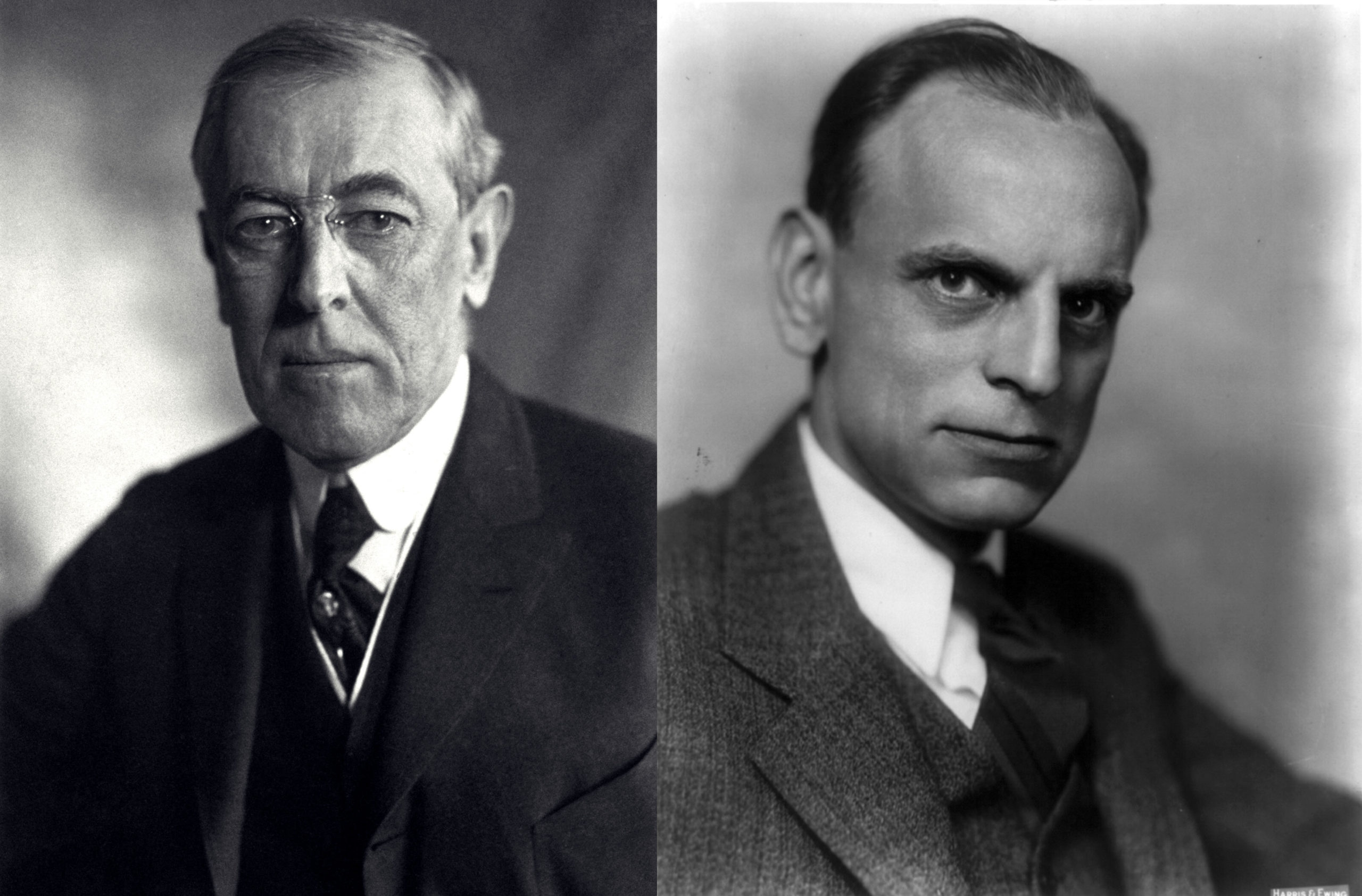 If Woodrow Wilson and James Landis seem alarmed in the picture to the right, it may be that they had a premonition about the Fifth Circuit’s 2021-22 skepticism toward the structure of the SEC. Following a 2021 loss in Cochran v. SEC on a procedural issue about constitutional challenges to the work of the SEC’s Administrative Law Judges (featuring a blistering critique of the administrative state in a concurrence by Judge Oldham, and as to which the Supreme Court has recently granted certiorari), the Court again reached constitutional issues in Jarksey v. SEC, holding:
If Woodrow Wilson and James Landis seem alarmed in the picture to the right, it may be that they had a premonition about the Fifth Circuit’s 2021-22 skepticism toward the structure of the SEC. Following a 2021 loss in Cochran v. SEC on a procedural issue about constitutional challenges to the work of the SEC’s Administrative Law Judges (featuring a blistering critique of the administrative state in a concurrence by Judge Oldham, and as to which the Supreme Court has recently granted certiorari), the Court again reached constitutional issues in Jarksey v. SEC, holding:
“(1) the SEC’s in-house adjudication of Petitioners’ case violated their Seventh Amendment right to a jury trial; (2) Congress unconstitutionally delegated legislative power to the SEC by failing to provide an intelligible principle by which the SEC would exercise the delegated power, in violation of Article I’s vesting of “all” legislative power in Congress; and (3) statutory removal restrictions on SEC ALJs violate the Take Care Clause of Article II [of the Constitution].”
Judge Elrod wrote the panel majority opinion, joined by Judge Oldham. Judge Davis dissented as to each holding. These holdings have obvious significance to other administrative agencies and could well again draw Supreme Court attention. No. 20-61007 (May 18, 2022).
The unsuccessful parties in the NetChoice v. Paxton litigation have asked the Supreme Court, through Circuit Justice Alito, for an emergency stay. A response is due May 18.
“Springboards to Education” returned to the Fifth Circuit with another unsuccessful trademark-infringement lawsuit against a school district: “One decisive fact remains all the same: sophisticated school-district customers can tell the difference between goods Springboards is selling them and goods and slogans [the [Pharr-San Juan-Alamo is Independent School District] is not.” (footnote omitted). A 2019 case involving Springboards provides a useful explanation of the different policy interests advanced by different bodies of intellectual-property law.
 Badgerow v. Walters recently returned to the Fifth Circuit after the Supreme Court’s clarification that a “‘look-through’ approach to determining federal jurisdiction does not apply to requests to confirm or vacate arbitral awards under Sections 9 and 10 of the FAA.” No. 19-30766 (May 11, 2022).
Badgerow v. Walters recently returned to the Fifth Circuit after the Supreme Court’s clarification that a “‘look-through’ approach to determining federal jurisdiction does not apply to requests to confirm or vacate arbitral awards under Sections 9 and 10 of the FAA.” No. 19-30766 (May 11, 2022).
A Fifth Circuit motions panel granted Texas’ request to stay a preliminary injunction against that state’s law about content moderation by major social media platforms; commentators suggest that a rapid Supreme Court appeal will now occur. (The asterisk below indicates that the ruling was not unanimous. No opinion has issued yet; argument was just conducted on May 9th.)
Two new Federal Rules of Appellate Procedure have been finalized and transmitted to Congress, they clarify earlier rule 25 about privacy protection, and 42 about voluntary dismissal.
Here is the PowerPoint from my presentation for the Dallas Bar Association today. And if you prefer it as a .pdf, here it is in that format.
 In In re A&D Interests, a FLSA “collective action” involving exotic dancers, the panel majority and a dissent differed over whether the district court’s handling of a notice issue entitled the defendant to mandamus relief. The majority (“Judge Curiam,” speaking on behalf of Judges Smith and Willett) saw “clear and indisputable” error in the district court’s application of recent Circuit precedent, while the dissent (Judge Higginson) did not, citing previous actions in the case by the Court. No. 22-40039-CV (May 3, 2022).
In In re A&D Interests, a FLSA “collective action” involving exotic dancers, the panel majority and a dissent differed over whether the district court’s handling of a notice issue entitled the defendant to mandamus relief. The majority (“Judge Curiam,” speaking on behalf of Judges Smith and Willett) saw “clear and indisputable” error in the district court’s application of recent Circuit precedent, while the dissent (Judge Higginson) did not, citing previous actions in the case by the Court. No. 22-40039-CV (May 3, 2022).
 The civil codes of Louisiana and Ecuador share a common lineage in the Napoleonic Code, which came in handy in Guerrero v. Occidental Petroleum–a dispute over a provision in Ecuadorian law that affected how hundreds of millions of dollars would be allocated in a litigation settlement. No. 20-20633 (May 5, 2022).
The civil codes of Louisiana and Ecuador share a common lineage in the Napoleonic Code, which came in handy in Guerrero v. Occidental Petroleum–a dispute over a provision in Ecuadorian law that affected how hundreds of millions of dollars would be allocated in a litigation settlement. No. 20-20633 (May 5, 2022).
Johnson v. Huffington Post held, as to a libel claim, that Fifth Circuit precedent compelled dismissal for lack of personal jurisdiction: “HuffPost is interactive, but its story about Johnson has no ties to Texas. The story does not mention Texas. It recounts a meeting that took place outside Texas, and it used no Texan sources. Accordingly, we lack jurisdiction over HuffPost with respect to Johnson’s libel claim.” The full court recently voted 10-7 to not take the matter en banc, as follows:
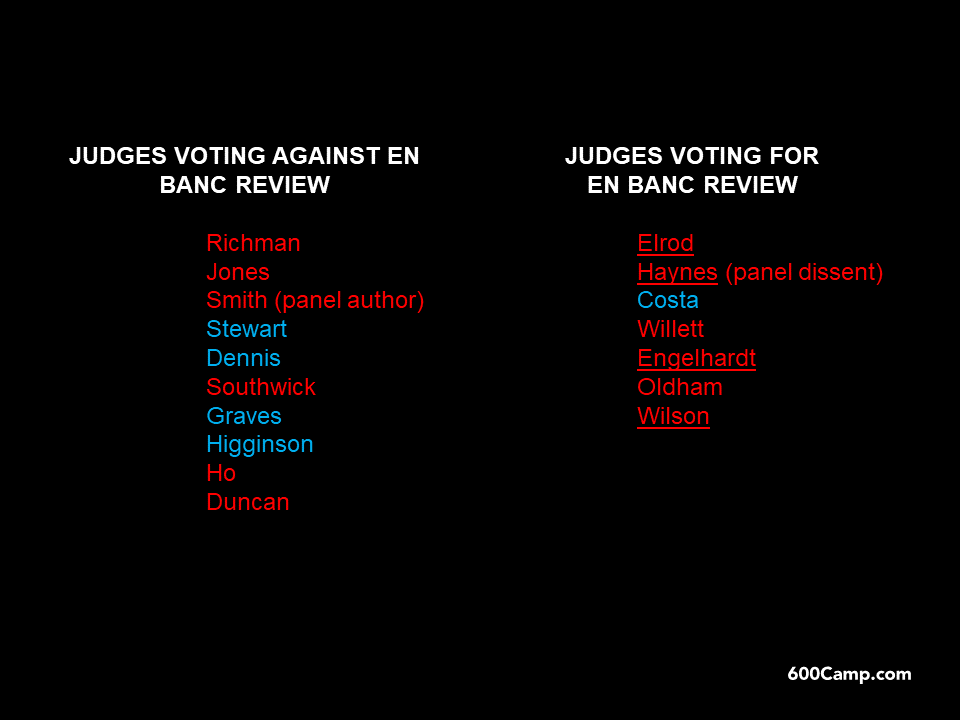 The third panel member, Judge King, as a senior judge was not eligible to participate in the en banc vote. The four judges whose names are underlined joined a dissent from the denial of en banc review.
The third panel member, Judge King, as a senior judge was not eligible to participate in the en banc vote. The four judges whose names are underlined joined a dissent from the denial of en banc review.
 The plaintiff’s pleading at the time of removal in Turner v. GoAuto Ins. Co. described a putative class made up of only “citizens of Louisiana.” The defendant argued “that the Louisiana law contravened Louisiana law in several ways by allowing [Plaintiff] to amend his complaint to redefine the class.” But that argument ran afoul of the “basic precept of our federal system … that federal courts do not exercise authority over the proceedings of a sovereign state’s judiciary as it relates to that state’s laws,” which meant that the amended pleading controlled, and that the defendant could not establish the necessary diversity of citizenship. No. 22-30103 (May 2, 2022).
The plaintiff’s pleading at the time of removal in Turner v. GoAuto Ins. Co. described a putative class made up of only “citizens of Louisiana.” The defendant argued “that the Louisiana law contravened Louisiana law in several ways by allowing [Plaintiff] to amend his complaint to redefine the class.” But that argument ran afoul of the “basic precept of our federal system … that federal courts do not exercise authority over the proceedings of a sovereign state’s judiciary as it relates to that state’s laws,” which meant that the amended pleading controlled, and that the defendant could not establish the necessary diversity of citizenship. No. 22-30103 (May 2, 2022).
 I recently wrote a short piece for the UK’s Solicitor’s Journal about two recent personal-jurisdiction cases of note–one from the Fifth Circuit and one from the Dallas Court of Appeals–which it published as an “international insight” and titled “How to Deal with Texas Businesses Without getting Sued.”
I recently wrote a short piece for the UK’s Solicitor’s Journal about two recent personal-jurisdiction cases of note–one from the Fifth Circuit and one from the Dallas Court of Appeals–which it published as an “international insight” and titled “How to Deal with Texas Businesses Without getting Sued.”
The saying “that’s all she wrote” was particularly apt for the Fifth Circuit yesterday, as the hard-fought litigation brought by abortion providers to challenge Texas’s SB8 took its final turn back to the district court:
Whole Woman’s Health v. Jackson, No. 21-50792 (April 26, 2022).
 Reversing the Fifth Circuit’s opinion in City of Austin v. Reagan Nat’l Advertising, 972 F.3d 696 (5th Cir. 2020), the Supreme Court held that Austin’s use of an “on-/off-premises distinction” did not create a content restriction. The majority opinion reasoned:
Reversing the Fifth Circuit’s opinion in City of Austin v. Reagan Nat’l Advertising, 972 F.3d 696 (5th Cir. 2020), the Supreme Court held that Austin’s use of an “on-/off-premises distinction” did not create a content restriction. The majority opinion reasoned:
A sign’s substantive message itself is irrelevant to the application of the provisions; there are no content-discriminatory classifications for political messages, ideological messages, or directional messages concerning specific events, including those sponsored by religious and nonprofit organizations. Rather, the City’s provisions distinguish based on location: A given sign is treated differently based solely on whether it is located on the same premises as the thing being discussed or not. The message on the sign matters only to the extent that it informs the sign’s relative location. The on-/off-premises distinction is therefore similar to ordinary time, place, or manner restrictions.
No. 20-1029 (U.S. April 21, 2022) (applying Reed v. Gilbert, 576 U.S. 155 (2015)).
 While Solis v. Serrett deftly summarizes the Baroque case law about qualified immunity and use of force, it will be remembered for its constructive use of hyperlinks — links to the relevant video footage about the incidents in question. Particularly in this area of law, where dash and body cameras often provide critical evidence, including this material in the opinion provides helpful guidance for law enforcement officers and their counsel. No. 21-20256 (April 21, 2022) (citing, inter alia, this body camera video and this dash camera video).
While Solis v. Serrett deftly summarizes the Baroque case law about qualified immunity and use of force, it will be remembered for its constructive use of hyperlinks — links to the relevant video footage about the incidents in question. Particularly in this area of law, where dash and body cameras often provide critical evidence, including this material in the opinion provides helpful guidance for law enforcement officers and their counsel. No. 21-20256 (April 21, 2022) (citing, inter alia, this body camera video and this dash camera video). 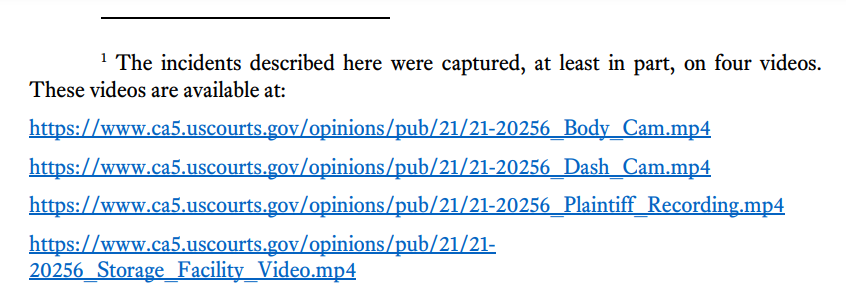
Some years ago, I unsuccessfully litigated a case about a contractual waiver of the right to remove. (The unique facts of that case were that Collin County had no federal courthouse at the time, but the Eastern District’s Plano facility was under construction.) Collin County v. Siemens Business Services, 250 F. App’x 45 (5th Cir. 2007). That case prompted me and two colleagues to write a thorough survey of the law on this topic, see Coale, Visosky & Cochrane, “Contractual Waiver of the Right to Remove to Federal Court,” 29 Rev. Litig. 327 (2010), after which I thought I had “seen it all” as to contractual waivers of removal rights.
However, I was wrong, as Dynamic CRM Recruiting Solutions LLC v. UMA Education, Inc. examines yet another turn of phrase in such a clause–what it means for an action to be “brought before” a particular tribunal. The Fifth Circuit held that “by using terminology similar to that which courts have generally construed as forbidding removal, they were waiving their right to remove an action filed in Harris County district court to federal court.” No. 21-20351 (April 19, 2022). The article now needs a pocket part.
“Plaintiffs who succeed in winning a money judgment against a state governmental entity in state court in Louisiana often find themselves in a frustrating situation. Though they have obtained a favorable judgment, they lack the means to enforce it. The Louisiana Constitution bars the seizure of public funds or property to satisfy a judgment against the state or its political subdivisions. Instead, the Legislature or the political subdivision must make a specific appropriation in order to satisfy the judgment. And since Louisiana courts lack the power to force another branch of government to make an appropriation, the prevailing plaintiff has no judicial mechanism to compel the defendant to pay. …
Finding themselves in this position, the Plaintiffs in this case, like others before them, have turned to the federal courts to force payment on their state court judgment. They claim that the Defendants’ failure to timely satisfy a state court judgment violates the Takings Clause of the Fifth
Amendment. The district court granted the Defendants’ motion to dismiss, applying long-standing precedent that there is no property right to timely payment on a judgment.”
The Fifth Circuit affirmed the dismissal. Ariyan, Inc v. Sewarage & Water Board of New Orleans, No. 21-30335 (March 21, 2022) (citations omitted); cf. generally Preston Hollow Capital v. Cottonwood Devel. Corp., 23 F.4th 550 (5th Cir. 2022) (also affirming dismissal of takings claim).
The Urban Dictionary associates the phrase “been had” with the buyer of an unintendedly green ring. The Fifth Circuit associates the phrase with the “buyer” of a JAMS arbitration:
Here the parties’ arbitration agreements called for arbitration pursuant to JAMS Comprehensive Arbitration Rules and Procedures, which included the right of JAMS to terminate the arbitration proceedings for nonpayment of fees by any party. Exercising this right, JAMS terminated the arbitration proceeding following the Fund’s nonpayment. Following the lead of our sister circuits, we conclude that arbitration ‘has been had.’ Even though the arbitration did not reach the final merits and was instead terminated because of a party’s failure to pay its JAMS fees, the parties still exercised their contractual right to arbitrate prior to judicial resolution in accordance with the terms of their agreements.
Noble Capital Fund Mgmnt. LLC v. US Capital, No. 21-50609 (April 13, 2022) (footnotes omitted) (emphasis added).
A merits panel, with a notably different makeup than the motions panel, reversed a preliminary injunction about a federal-employee vaccination requirement in Feds for Medical Freedom v. Biden, No. 22-40043 (April 7, 2022).
An antitrust case about the interrelated fees charged for the use of a debit network led to a detailed analysis of antitrust injury; in particular, the Court held as to one of the plaintiff’s claims:
Under Pulse’s theory, it doesn’t lose customers to Visa in a fair fight over per transaction fees. Rather, Pulse loses customers because Visa abuses its dominance in the debit card market. Merchants have no choice but to pay Visa’s high fixed monthly fee. They recoup that expense by routing more transactions through Visa’s network, which charges lower per-transaction fees than competitors. But Visa can achieve that only by leveraging the upfront fees to artificially deflate its per-transaction fees. We must assume this pricing structure violates the antitrust laws. When we do, the link between Pulse’s injury and Visa’s alleged anticompetitive conduct becomes plain. Pulse is squeezed out of the market because Visa exploits its dominance to impose supracompetitive prices on merchants and simultaneously undercut competitors’ per-transaction fees. That is textbook antitrust injury.
Pulse Network v. Visa, No. 18-20669 (April 5, 2022) (citation omitted, emphasis added). (The case has also drawn attention for its other holding that reassigned the matter to a different district judge on remand).
Seigler v. Wal-Mart Stores LLC presented the question whether a summary-judgment  affidavit in a slip-and-fall case was an impermissible “sham” that contradicted prior deposition testimony.
affidavit in a slip-and-fall case was an impermissible “sham” that contradicted prior deposition testimony.
The district court “identified four discrepancies between Seigler’s deposition testimony and affidavit pertaining to (1) the substance’s color, (2) its temperature and consistency, (3) its size, and (4) whether she touched the substance,” and struck the affidavit.
The Fifth Circuit disagreed, reviewing each of the claimed inconsistencies. In particular, as to the issue of “temperature and consistency,” the Court reasoned:
” Wal-Mart argues that Seigler’s affidavit testimony that the substance was ‘cold,’ ‘congealed,’ and ‘thicken[ed] up’ contradicted her deposition testimony because Seigler testified at her deposition that (1) she had no ‘personal knowledge’ or ‘evidence’ of how long the grease had been on the floor and (2) that the substance was ‘liquid.’ However, we disagree that there was a contradiction. First, we agree with Seigler that a non lawyer deponent is not expected to understand the legal significance of the terms ‘personal knowledge’ and ‘evidence.’ Second, while the discrepancies between Seigler’s deposition and affidavit may call her credibility into question, we do not think they rise to the level of a contradiction or an inherent inconsistency, because the testimony can be reconciled.
Seigler described the substance as ‘some sort of greasy liquid’ at her deposition, but she was not asked questions about its temperature or consistency. Later, in her affidavit, she described the grease as ‘cold,’ ‘congealed,’ and ‘thicken[ed] up.’ These descriptions are not mutually exclusive, nor are they necessarily contradictory. In other words, it is possible that ‘some sort of greasy liquid’ could also be ‘cold,’ ‘congealed’ and ‘thicken[ed] up.’ Thus, we think the proper course in this case is to allow a jury to evaluate the testimony’s credibility.”
No. 20-11080 (April 6, 2022) (citations omitted).
In one corner, Getagadget LLC, which holds a registered trademark for “BIG BITE” for its beach toy shaped like a shark’s head. In the other, Jet Creations, Inc., which makes the Big Bite Prehistoric T-Rex Pool Float. Held, Getagadget did not establish Texas jurisdiction over its trademark-infringement claim when its counsel ordered a Big Bite Prehistoric T-Rex Pool Float:
“[I]n order to demonstrate that its trademark infringement and unfair competition claims arose out of sales that Jet directed at Texas, Getagadget was required to show that those sales were to customers who could have been potentially deceived by the alleged infringement. Getagadget’s counsel’s transactions will not suffice because counsel ‘knew exactly with whom []he was dealing and knew that defendants were not associated in any way with plaintiff.’ ‘Clearly, [Getagadget and its counsel were] not confused as to the source of the products in question.'”
Getagadget LLC v. Jet Creations, Inc., No. 19-41019 (March 30, 2022) (mem. op.).
Of general interest to court-watchers, building on a recent interview that I did with the Lincoln Project, the current episode of the “Coale Mind” podcast examines why today’s Supreme Court is like a bowl of soup, heated by two separate burners.
The first is the ongoing scrutiny over Justice Thomas’s recusal decisions in matters related to his wife’s political activity. The second, cool now but with the potential to become blazing hot, is the pending Dobbs case in which the Court could significantly limit or even overrule Roe v. Wade.
The combined heat potentially generated by these two issues–an ethical dispute about a Justice coupled with the possibility of a uniquely controversial ruling–could present a legitimacy problem for the Court of a magnitude not seen in recent memory.
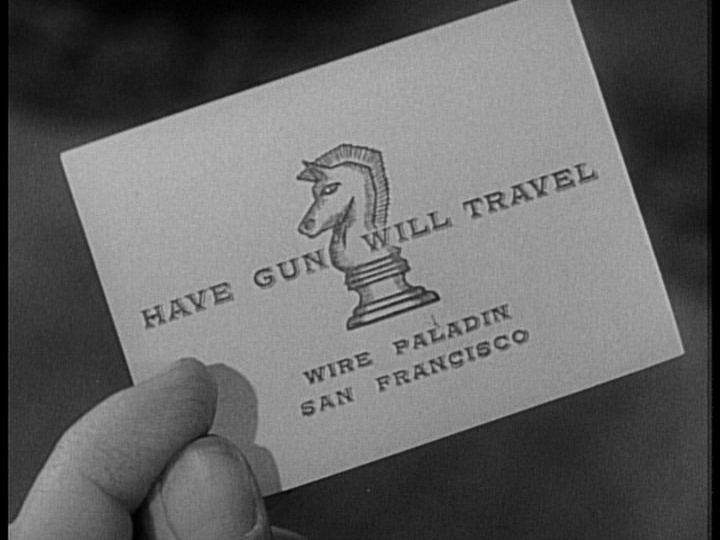 The panel majority opinion in Defense Distributed v. Bruck presents a rare — indeed, near-singular — grant of mandamus relief as to a transfer of venue (combined with a ruling about severance). The business at issue involves the growing, and controversial, field of creating firearms with 3-D printers. A dissent made a number of objections, substantive and procedural. No. 21-50327 (April 1, 2022).
The panel majority opinion in Defense Distributed v. Bruck presents a rare — indeed, near-singular — grant of mandamus relief as to a transfer of venue (combined with a ruling about severance). The business at issue involves the growing, and controversial, field of creating firearms with 3-D printers. A dissent made a number of objections, substantive and procedural. No. 21-50327 (April 1, 2022).
A sanctions award was reversed in Ozmun v. Wood when, among other matters: “‘[T]he district court denied PRA[‘s] cross motion for summary judgment on the FDCPA claim which indicates [Appellant’s] position was far from frivolous. In fact, it was so substantial that the district court thought it warranted a trial.’ Thus, Ozmun’s claims brought under the TFDCPA were not a ‘clear misuse of the TFDCPA’ as the district court stated. They simply failed on summary judgment.” No. 19-50397 (March 24, 2022) (unpublished, citation omitted)).
 An interlocutory appeal had some matters entangled with it in Jiao v. Xu (not unlike the quantum entanglement recently photographed for the first time, right):
An interlocutory appeal had some matters entangled with it in Jiao v. Xu (not unlike the quantum entanglement recently photographed for the first time, right):
“The preliminary injunction is an interlocutory order made appealable by 28 U.S.C. § 1292(a)(1). The declaratory relief constitutes a final order, and we have appellate jurisdiction under 28 U.S.C. § 2201. The turnover order is likewise final, and we have appellate jurisdiction to review it under 28 U.S.C. § 1291. Typically, we would not have jurisdiction over the district court’s
denial of Xu’s motion to dismiss. But to the extent the
underpinnings of Xu’s motion are inextricably intertwined with the district court’s subsequent rulings challenged on appeal, we determine that we have jurisdiction to address those issues. See Magnolia Marine Transp. Co. v. Laplace Towing Corp., 964 F.2d 1571, 1580 (5th Cir. 1992) (‘[O]ur jurisdiction is not limited to the specific [injunctive] order appealed from, and we may review all matters which establish the immediate basis for granting injunctive relief.’); see also In re Lease Oil Antitrust Litig. (No. II), 200 F.3d 317, 320 (5th Cir. 2000) (reaching denial of motion to dismiss as part of § 1292(a)(1) appeal where issues were ‘so entangled as to arrive here together’ and ‘[d]elaying review . . . would make no practical sense’).”
No. 20-20106 (March 11, 2022) (emphasis added, footnote and certain citations omitted).
 Making an Erie guess about Louisiana insurance law, the Fifth Circuit held: “Consistent with our decision in Terry Black’s, and the decisions of the unanimous circuit courts, we conclude, pursuant to Louisiana law, that losses caused by civil authority orders closing nonessential businesses in response to the COVID-19 pandemic do not fall within the meaning of ‘direct physical loss of or damage to property.'” Q Clothier v. Twin City Fire Ins., No. 21-30278 (March 22, 2022).
Making an Erie guess about Louisiana insurance law, the Fifth Circuit held: “Consistent with our decision in Terry Black’s, and the decisions of the unanimous circuit courts, we conclude, pursuant to Louisiana law, that losses caused by civil authority orders closing nonessential businesses in response to the COVID-19 pandemic do not fall within the meaning of ‘direct physical loss of or damage to property.'” Q Clothier v. Twin City Fire Ins., No. 21-30278 (March 22, 2022).
Trafigura Trading v. United States featured a dispute about one of the many prohibitions in Article I Section 9 of the Constitution; specifically, clause 5, which says: “No Tax or Duty shall be laid on Articles exported from any State.” An oil company argued that a federally-imposed charge on oil exports, collected to finance the Oil Spill Liability Trust Fund, violated this provision.
 The district court ruled for the oil company and a Fifth Circuit panel affirmed. One judge, drawing heavily from lyrics made famous by “Hamilton,” described the surprisingly colorful history of this provision, and voted to affirm. Another judge voted to affirm but declined to join that opinion. And the third judge dissented. As a result, the other opinion had no quorum supporting it and thus lacked precedential effect. No. 21-20127 (March 24, 2022).
The district court ruled for the oil company and a Fifth Circuit panel affirmed. One judge, drawing heavily from lyrics made famous by “Hamilton,” described the surprisingly colorful history of this provision, and voted to affirm. Another judge voted to affirm but declined to join that opinion. And the third judge dissented. As a result, the other opinion had no quorum supporting it and thus lacked precedential effect. No. 21-20127 (March 24, 2022).
On that broader subject, cf. Sambrano v. United Airlines, No. 21-11159 (Feb. 17, 2022) (Smith, J., dissenting) (sympathizing with “the hapless trial judge or conscientious advocate” that must reason from nonprecedential rulings); see generally Alexander Hamilton, Federalist No. 78 (May 28, 1788) (“To avoid an arbitrary discretion in the courts, it is indispensable that they should be bound down by strict rules and precedents, which serve to define and point out their duty in every particular case that comes before them; and it will readily be conceived from the variety of controversies which grow out of the folly and wickedness of mankind, that the records of those precedents must unavoidably swell to a very considerable bulk, and must demand long and laborious study to acquire a competent knowledge of them.”).
The PREP Act — a 2005 law allowing the HHS secretary to make a declaration that immunizes certain disaster responders from liability — was held not to completely preempt state-law negligence claims in Mitchell v. Advanced HCS. The Fifth Circuit noted:
- “First, the only cause of action [the PREP Act] creates is for willful misconduct. Assuming—without deciding—that the willful misconduct cause of action is completely preemptive, the question is whether Mitchell ‘could have brought’ the instant claims under that cause of action. He could not. The Act clearly states that its willful-misconduct cause of action creates ‘a standard for liability that is more stringent than a standard of negligence in any form or recklessness.'”
- “Second, the compensation fund that the Act creates is not completely preemptive under this court’s precedents. To begin, a ‘compensation fund is not a cause of action.’ It may be a civil-enforcement provision, but such provisions must nevertheless ‘create[] a cause of action.’ … Assuming arguendo that the compensation fund suffices as a cause of action, the Act nevertheless does not create ‘a specific jurisdictional grant to the federal courts for enforcement of the right.’ Instead, the Secretary oversees administration of the fund. Worse, the statute expressly withdraws jurisdiction from any court, state or federal, concerning ‘any action [taken] by the Secretary’ in doing so.”
No. 21-10477 (March 10, 2022) (citations omitted, emphasis added).
“Attempting to sidestep Rooker-Feldman, Paul argues that an exception to the doctrine allows for collateral review of state court judgments that are void ab initio for lack of jurisdiction. ‘This court has neither endorsed nor rejected [this] exception,’ and ‘[o]ur sister circuits are split on the issue.’ We need not resolve the split here, however, because even if we were to adopt this exception, ‘the cases that . . . recognize’ it ‘indicate that it is presently limited to the bankruptcy context.’ What is more, Paul’s basis for contesting the Texas courts’ jurisdiction is that the vexatious litigant statute is unconstitutional. But a judgment is not void simply because it applied an unconstitutional statute.” Nunu v. State of Texas, No. 21-20446 (March 17, 2022, unpublished).
FERC v. Ultra Resources presented a novel question about the interaction of the Bankruptcy Court and a filed-rate contract, and held “that under the particular circumstances presented here, Ultra Resources is not subject to a separate public-law obligation to continue performance of its rejected contract, and that 11 U.S.C. § 1129(a)(6) did not require the bankruptcy court to seek FERC’s approval before it confirmed Ultra Resource’s reorganization plan.” No. 21-20126 (March 14, 2022).
 The long shadow of Edward Young (right), who served as Minnesota’s well-mustachioed Attorney General in the early 20th century, fell upon two companion cases about Texas election laws, in which a panel majority found that the Texas Secretary of State was not a proper defendant under Ex Parte Young. A dissent (from both panel opinions) saw matters otherwise:
The long shadow of Edward Young (right), who served as Minnesota’s well-mustachioed Attorney General in the early 20th century, fell upon two companion cases about Texas election laws, in which a panel majority found that the Texas Secretary of State was not a proper defendant under Ex Parte Young. A dissent (from both panel opinions) saw matters otherwise:
I write to remind failing memories of the signal role of Ex parte Young in directly policing the path of cases and controversies to the Supreme Court from our state and federal courts and warn against its further diminution. … ‘Ex parte Young poses no threat to the Eleventh Amendment or to the fundamental tenets of federalism. To the contrary, it is a powerful implementation of federalism necessary to the Supremacy Clause, a stellar companion to Marbury and Martin v. Hunter’s Lessee.’
…
The majority continues this Court’s effort to shrink the role of Ex parte Young, by overly narrow readings of the state officer’s duty to enforce Texas’s election laws. … [T]he Texas Secretary of State is the “chief election officer of the state” and is directly instructed by statute to “obtain and maintain uniformity in the application, operation, and
interpretation of this code and of the election laws outside this code.” Moreover, the Secretary is charged to “take appropriate action to protect the voting rights of the citizens of this state from abuse by the authorities administering the state’s electoral processes” and “to correct offending conduct.” Although recent decisions by this Court have split hairs regarding the level of enforcement authority required to satisfy Ex parte Young, the Secretary is charged to interpret both the Texas Election Code and the election laws outside the Code, including federal law, to gain uniformity, tasks it is clearly bound to do. The allegation in these cases is that the Secretary is failing in that duty. This charge should satisfy our Ex parte Young inquiry.
TARC v. Scott, No. 20-40643 (March 16, 2022); Richardson v. Flores, No. 20-50744 (March 16, 2022) (footnotes and citations omitted). (I was recently interviewed about the case by KDFW-TV in Dallas.)
A dispute about “fee forfeiture,” in the broader context of fidiuciary-duty breaches by a company’s lawyer, led to this observation about the proper role of the Burrow v. Arce fee-forfeiture factors: “[T]there is no “windfall” given the record in this case. Hughes unfairly transferred PPI’s assets to Performance Probiotics, in breach of her fiduciary duty to PPI, and then used those assets to generate the fees at issue. That is, even though Hughes was paid by Performance Probiotics, she was effectively paying herself with funds that were rightfully PPI’s. We find no abuse of discretion in the district court’s award of fee forfeiture in this context as it accords with the general rule that disloyal agents must disgorge their ill-gotten gains.” Thomas v. Hughes, No. 20-50671 (March 3, 2022).
“Hughes asserts there was insufficient evidence to establish that Pearcy had any trade secrets or that Hughes and Performance Probiotics improperly used any of Pearcy’s trade secrets. But Hughes did not raise these challenges in her oral [Fed. R. Civ. P.] 50(a) motion at trial. Instead, Hughes ‘move[d] for [a] directed verdict on the misappropriation of trade secrets [claim] on the ground[ ] that there [was] no evidence of an appropriate measure of damages for that cause of action,’ an argument she renewed in her Rule 50(b) motion and likewise urges here. Because Hughes did not challenge the existence of a trade secret or improper use in her initial Rule 50(a) motion, those issues were not properly raised in her post-trial Rule 50(b) motion. We therefore decline to address them on appeal.”
Thomas v. Hughes, No. 20-50671 (March 3, 2022).
A technical setting illustrated a basic requirement for a justiciable claim in Continental Automotive Systems v. Avanci:
“[A]ssuming Continental is contractually entitled to a license on FRAND [‘fair, reasonable, and nondiscriminatory’] terms as a third-party beneficiary, the pleadings reflect that it has suffered no cognizable injury. Put another way, even if Continental has rights under FRAND contracts, the contracts have not been breached because the SEP [‘standard-essential patent’] holders have fulfilled their obligations to the SSOs [“standard-setting organizations”] with respect to Continental. The supplier acknowledges that Avanci and Patent-Holder Defendants are ‘actively licensing the SEPs to the OEMs[,]’ which means that they are making SEP licenses available to Continental on FRAND terms. As it does not need to personally own SEP licenses to operate its business, it has not been denied property to which it was entitled. And absent a ‘denial of property to which a plaintiff is entitled,’ Continental did not suffer an injury in fact. ”
No. 20-11032 (Feb. 28, 2022).
 While Johnny Cash famously walked the line, the defendants in Earnest v. Sanofi U.S. Servcs., Inc., did not successfully walk the line between Rule 701 and 702, with respect to a senior company employee in a products-liability case: “While parts of Dr. Kopreski’s testimony fall within the parameters of Rule 701, he also strayed beyond ‘facts, . . . subjective beliefs[,] and opinions,’ within either his personal knowledge or his capacity as Sanofi’s corporate designee. He testified regarding highly specialized and technical information related to Taxotere, the TAX316 study, and drug studies in general.” No. 20-30184 (Feb. 10, 2022) (citation omitted).
While Johnny Cash famously walked the line, the defendants in Earnest v. Sanofi U.S. Servcs., Inc., did not successfully walk the line between Rule 701 and 702, with respect to a senior company employee in a products-liability case: “While parts of Dr. Kopreski’s testimony fall within the parameters of Rule 701, he also strayed beyond ‘facts, . . . subjective beliefs[,] and opinions,’ within either his personal knowledge or his capacity as Sanofi’s corporate designee. He testified regarding highly specialized and technical information related to Taxotere, the TAX316 study, and drug studies in general.” No. 20-30184 (Feb. 10, 2022) (citation omitted).
The author of a popular inspirational book sued a school district for copyright infringement when a softball team and color guard posted an excerpt from it (the “WIN Passage”) on Twitter. The Fifth Circuit affirmed the district’s successful defense based on the defense of fair use, in an analysis both succinct and encyclopedic:
- “[T]he purpose and character of the use, including whether such use is of a commercial nature or is for nonprofit educational purposes.” “This involves a few considerations. The first and most obvious is commerciality—’whether the user stands to profit from exploitation of the copyrighted material without paying the customary price.’ The second is whether the user acted in good faith. The third is whether the use is ‘transformative,’ meaning it ‘adds something new’ to the copyrighted work. The school district does not assert that its use was transformative but argues the other inquiries tip the first factor in its favor. We agree.”
- “[T]he nature of the copyrighted work.” “’In general, fair use is more likely to be found in factual works than in fictional works.'” Here, ”[c]onstruing the pleadings in Bell’s favor as we must, the WIN Passage is somewhat creative. The passage largely consists of well-worn truisms …. Still, Bell is entitled to the inference that the school chose the WIN Passage because it combines and condenses these principles in a particularly inspiring way. The second factor goes to Bell. But it is a meager victory. The nature of the work is widely considered the least significant fair-use factor.”
- “[T]he amount and substantiality of the portion used in relation to the copyrighted work as a whole.” “The school quoted a small excerpt from [the book] Winning Isn’t Normal, which was already freely available to the public. As a result, the third factor is neutral.”
- “The fourth factor examines ‘the effect of the use’ on the market for and value of the copyrighted work.” “[Bell’s] complaint contends that widespread
use of the WIN Passage on social media could reduce “the incentive to
purchase Winning Isn’t Normal or related merchandise. … The tweets do not
reproduce such a substantial portion of Winning Isn’t Normal‘ as to make
available a significantly competing substitute’ for the original work. If anything, the properly attributed quotation of a short passage from Winning Isn’t Normal might bolster interest in the book; it is free advertising.”
Bell v. Eagle Mountain Saginaw ISD, No. 21-10504 (Feb. 25, 2022) (all citations omitted).
 The Texas Lawbook summarizes the many practical pointers from an hour-long discussion among Judges Haynes, Costa, and Ho at the recent Bench-Bar conference of the Northern District of Texas. Judge Hendrix from that District’s Lubbock Division moderated.
The Texas Lawbook summarizes the many practical pointers from an hour-long discussion among Judges Haynes, Costa, and Ho at the recent Bench-Bar conference of the Northern District of Texas. Judge Hendrix from that District’s Lubbock Division moderated.
Continuing a not-infrequent practice, the Fifth Circuit denied mandamus relief in In re Royal Street Bistro while providing “[a] brief explanation” of the Court’s skeptical view of a controversial Seventh Circuit opinion about lessee rights. In conclusion, the Court observed: “None of this means that the bankruptcy and district courts’ overstatement of their reasoning created the kind of serious misinterpretation of law or facts that may support one of the criteria for mandamus relief. See In re JP Morgan Chase & Co., 916 F.3d 494, 500 (5th Cir. 2019). Courts must be cautioned, however, against blithely accepting Qualitech‘s reasoning and textual exegesis.” No. 22-30066 (Feb. 16, 2022).
 “Karen does indeed have Article III standing to bring this suit. She seeks money damages to address the death of her son, which was allegedly caused by Defendants’ conduct. So she has sufficiently alleged all three elements required to establish Article III standing at this stage. … The defect here, by contrast, is one of prudential standing. And prudential standing does not present a jurisdictional question, but ‘a merits question: who, according to the governing substantive law, is entitled to enforce the right?’ … And a violation of this rule is a failure of “prudential” standing. ‘[N]ot one
“Karen does indeed have Article III standing to bring this suit. She seeks money damages to address the death of her son, which was allegedly caused by Defendants’ conduct. So she has sufficiently alleged all three elements required to establish Article III standing at this stage. … The defect here, by contrast, is one of prudential standing. And prudential standing does not present a jurisdictional question, but ‘a merits question: who, according to the governing substantive law, is entitled to enforce the right?’ … And a violation of this rule is a failure of “prudential” standing. ‘[N]ot one
[of our precedents] holds that the inquiry is jurisdictional.’ It goes only to the validity of the cause of action. And ‘the absence of a valid … cause of action does not implicate subject-matter jurisdiction.'” Abraugh v. Altimus, No. 21-30205 (Feb. 14, 2022) (citations omitted) (emphasis added, citations omitted).
Hess Corp. v. Schlumberger Tech. Corp. notes an interesting, and seemingly unanswered, question about section 2.608 of the UCC, which says that a “buyer may revoke his acceptance of a lot or commercial unit whose non-conformity substantially impairs its value to him if he has accepted it …..” (emphasis added). One side suggested that this phrase should be read in conjunction with section 2.715, which allows a buyer to recover damages “resulting from the seller’s breach,” while another advocated looking to a line of cases that ask whether a contract breach was a “producing cause” of an injury. The Court noted a dearth of Texas authority tying either suggested approach to this specific UCC provision. No. 20-20663 (Feb. 7, 2022).
 A fiery dissent (literally fiery, as it warns that “the Good Ship Fifth Circuit is afire”) in Sambrano v. United Airlines faults the majority for, among other matters, not publishing the opinion. No. 21-11159 (Feb. 17, 2022). The opinions’ review of Fifth Circuit Local Rule 47.5.4 echoes a long-running debate, throughout all appellate courts, about the benefits and detriments of having multiple tiers of judicial precedent.
A fiery dissent (literally fiery, as it warns that “the Good Ship Fifth Circuit is afire”) in Sambrano v. United Airlines faults the majority for, among other matters, not publishing the opinion. No. 21-11159 (Feb. 17, 2022). The opinions’ review of Fifth Circuit Local Rule 47.5.4 echoes a long-running debate, throughout all appellate courts, about the benefits and detriments of having multiple tiers of judicial precedent.
Texas practitioners will recall similar debate leading up to the adoption of Tex. R. App. P. 47.4, the “memorandum opinion” rule. They will also likely see similarities between this strongly worded dissent and the concurrence in Steward Health Care System v. Saidara from the Dallas Court of Appeals in 2021, which also examined the policy judgments embodied in a different set of appellate-procedure rules.
One issue in Hess Corp. v. Schlumberger Tech. Corp., a UCC case about the oil-and-gas industry, was whether the district court made clearly erroneous fact findings about a party’s compliance with a contract provision; specifically, whether “the difference between the Greene Tweed drawings and the 2004 validated valve was ‘insubstantial.'” The Fifth Circuit approached the issue in three steps:
- Relevant Supreme Court precedent: “The Supreme Court has explained how to apply a clear-error standard to a district court’s credibility findings at a bench trial. The Anderson Court cautioned that a trial court could not ‘insulate [its] findings from review by denominating them credibility determinations’ and outlined certain ‘factors’ for consideration that could show error. Namely, ‘[d]ocuments or objective evidence may contradict the witness’ story; or the story itself may be so internally inconsistent or implausible on its face that a reasonable factfinder would not credit it.’ If ‘such factors are present, the court of appeals may well find clear error even in a finding purportedly based on a credibility determination.’” (citations omitted).
- Relevant Circuit precedent: “We applied Anderson in an appeal involving a fatal maritime collision between a tug and a shrimper; the district court had considered physical evidence, expert testimony analyzing the physical evidence, and independent witness testimony. The district court determined that the tug was at fault. We considered the ‘plausibility and internal consistency” of the shrimper’s account, in addition to the actual evidence. Id. We found that ‘physical evidence strongly support[ed]’ the tug’s case; the tug’s expert witness was far more qualified than the shrimper’s expert and considered more information in making his assessment; the independent witness testimony was ‘inconsistent with the [shrimper’s] account of the collision’; and the shrimper’s account smacked of ‘sheer implausibility.’ Accordingly, we were left with the ‘definite and firm conviction” that the evidence showed clear error by the district court.'” (citation omitted, applying In re Luhr Bros., 157 F.3d 333 (5th Cir. 1998)).
- Conclusion. “The drawings for the seal did not change from 2003 to 2014, and Schlumberger presented some evidence showing a series of springs from 2005 to 2015 that were manufactured within the tolerances specified in the drawings. Although it is clear that Greene Tweed produced springs that were outside the tolerances dictated by the drawings and thus did not conform, it is certainly not “implausible” that Greene Tweed manufactured its valves “to the qualified drawings” under the design-requirement-only interpretation of Section 6.3.2.2 adopted by the district court.”
No. 20-20663 (Feb. 7, 2022).
 An argument that a summary-judgment motion was granted prematurely failed when:
An argument that a summary-judgment motion was granted prematurely failed when:
“[T]he response did not ‘identify specific facts below that would alter the district court’s analysis’ or in any way /demonstrate . . . how the additional discovery would likely create a genuine [dispute] of material fact.’ Rather, it simply asserted that ‘no depositions have been held, nor have interrogatories, requests for admission, nor requests for documents been exchanged between the parties’ and that the ‘defendant has repeatedly failed to provide evidence of its allegations despite numerous opportunities to do so.'”
MDK v. Proplant, No.21-20207(Feb. 9, 2022) (mem. op.).
 While expediting consideration of the merits, a Fifth Circuit panel declined to stay a national injunction against a vaccination requirement for federal employees; a detailed dissent would have granted an interim stay of the injunction. Feds for Medical Freedom v. Biden, No. 20-30090 (Feb. 11, 2022). A thorough (albeit, highly partisan) article about the case recently appeared in Slate.
While expediting consideration of the merits, a Fifth Circuit panel declined to stay a national injunction against a vaccination requirement for federal employees; a detailed dissent would have granted an interim stay of the injunction. Feds for Medical Freedom v. Biden, No. 20-30090 (Feb. 11, 2022). A thorough (albeit, highly partisan) article about the case recently appeared in Slate.
“To be sure, the order on appeal is the district court’s order denying Doe’s motion to re-open the case and sever the cost-splitting provision of the arbitration agreement—not its order compelling arbitration. But that makes no difference for our purposes. As both parties acknowledge, Doe’s motion to re-open and sever was, in effect, nothing more than a motion to reconsider the merits of part of the district court’s order compelling arbitration. And we have no more jurisdiction to review an order declining to reconsider an order compelling arbitration than we do to review the order compelling arbitration itself.” Doe v. Tonti Mgmnt. Co., No. 21-30295 (Jan. 31, 2022).
 Hurricane Harvey insurance litigation continues. The dispute in Landmark Am. Ins. Co. v. SCD Mem. Place II, LLC involved a “named perils” policy, one of which was “Windstorm or Hail associated with a Named Storm.” While the unfortunate insured experienced significant damage when Buffalo Bayou overflowed its banks and flooded the insured’s property, it did not experience any wind or hail damage. The Fifth Circuit sided with the insured, holding that “[t]his framing sets up ‘Windstorm’ and ‘Hail’ as specific perils that may be associated with a number of weather events rather than as weather events that may encompass any number of perils.” No. 20-20389 (Feb. 3, 2022)
Hurricane Harvey insurance litigation continues. The dispute in Landmark Am. Ins. Co. v. SCD Mem. Place II, LLC involved a “named perils” policy, one of which was “Windstorm or Hail associated with a Named Storm.” While the unfortunate insured experienced significant damage when Buffalo Bayou overflowed its banks and flooded the insured’s property, it did not experience any wind or hail damage. The Fifth Circuit sided with the insured, holding that “[t]his framing sets up ‘Windstorm’ and ‘Hail’ as specific perils that may be associated with a number of weather events rather than as weather events that may encompass any number of perils.” No. 20-20389 (Feb. 3, 2022)
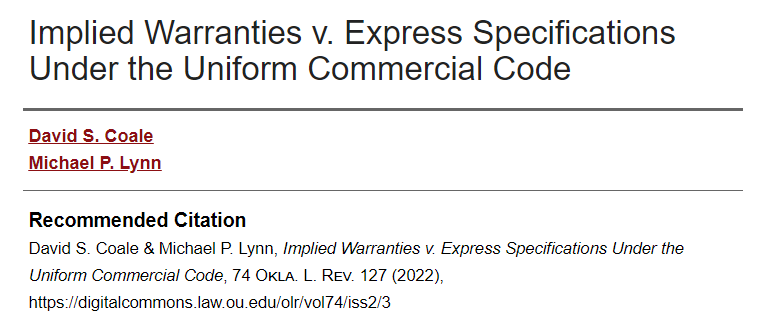 Mike Lynn and I have an article in the latest Oklahoma Law Review about a fiendishly tricky issue with some “battles of the forms” under the Uniform Commercial Code. A few years back, Mike had a hard-fought trial about this issue in the context of the roof insulation for a big warehouse near D/FW Airport. I hope you enjoy it – and can use it someday in your next UCC case – https://digitalcommons.law.ou.edu/olr/vol74/iss2/3
Mike Lynn and I have an article in the latest Oklahoma Law Review about a fiendishly tricky issue with some “battles of the forms” under the Uniform Commercial Code. A few years back, Mike had a hard-fought trial about this issue in the context of the roof insulation for a big warehouse near D/FW Airport. I hope you enjoy it – and can use it someday in your next UCC case – https://digitalcommons.law.ou.edu/olr/vol74/iss2/3
 In Fessler v. Porcelana Corona de Mexico, the Fifth Circuit flushed an attorneys-fee award in a class-action case about allegedly defective toilets, concluding that the district court had not plunged deeply enough into the factor of “degree of success obtained” — “[T]he [district] court stated simply that ‘the work done did not prove fruitless—it resulted in two settled classes receiving a host of monetary and non-monetary benefits they would not have received but for the Class Counsel’s diligent work.’ In other words, not receiving every bit of relief requested is no reason to reduce the lodestar. But this misconstrues Fifth Circuit precedent. The court was required to consider what was sought— compensatory, punitive, and treble damages for five tank models manufactured across nine years. Yet, the Class members only received a maximum of $4000 in damages for two tank models manufactured in one year.” No. 20-40357 (Jan. 10, 2022) (footnote omitted).
In Fessler v. Porcelana Corona de Mexico, the Fifth Circuit flushed an attorneys-fee award in a class-action case about allegedly defective toilets, concluding that the district court had not plunged deeply enough into the factor of “degree of success obtained” — “[T]he [district] court stated simply that ‘the work done did not prove fruitless—it resulted in two settled classes receiving a host of monetary and non-monetary benefits they would not have received but for the Class Counsel’s diligent work.’ In other words, not receiving every bit of relief requested is no reason to reduce the lodestar. But this misconstrues Fifth Circuit precedent. The court was required to consider what was sought— compensatory, punitive, and treble damages for five tank models manufactured across nine years. Yet, the Class members only received a maximum of $4000 in damages for two tank models manufactured in one year.” No. 20-40357 (Jan. 10, 2022) (footnote omitted).
 The Fifth Circuit found that the state-law question about liquor-sale permits presented by Gabriel Inv. Group v. TABC “checks every box” for certification, reasoning:
The Fifth Circuit found that the state-law question about liquor-sale permits presented by Gabriel Inv. Group v. TABC “checks every box” for certification, reasoning:
- “The first factor—the closeness of the question and the existence of sufficient sources of state law—weighs in favor of certification. … Both parties have solid textual and structural support for their positions. Likewise, the Commission does not challenge GIG’s contention that the disputes in this case are questions of first impression in any court.”
- “The second factor—the degree to which considerations of comity are relevant in light of the particular issue and case to be decided—similarly weighs in favor of certification. The Legislature enacted its general ban on public corporations owning or controlling package store permits in 1995, over 26 years ago. According to the parties, only two public corporations—GIG and Sarro Corp., who is not a party to this case—qualify for Grandfather Clause treatment. That may not seem like many. But when you factor in that GIG and Sarro could control up to 500 package stores between the two of them, it threatens to blow a Texas-sized hole in the careful balance that the Legislature created.” (footnotes omitted).
 “The third factor—practical limitations on the certification process—also weighs in favor of certification. The questions that GIG asks are purely legal. And we are untroubled by any potential delay. ‘[B]y long tradition, the Texas Supreme Court graciously accepts and prioritizes certified questions from this circuit.'”
“The third factor—practical limitations on the certification process—also weighs in favor of certification. The questions that GIG asks are purely legal. And we are untroubled by any potential delay. ‘[B]y long tradition, the Texas Supreme Court graciously accepts and prioritizes certified questions from this circuit.'”
No. 21-50322 (Jan. 28, 2022).
 A Texas law firm sued an Ohio firm, alleging the breach of an agreement about a substantial fee. The Fifth Circuit affirmed dismissal for lack of personal jurisdiction, crisply summarizing key Circuit precedent for commercial tort and contract claims. (To the right is 600Camp’s standard personal-jurisdiction graphic, the classic comic book hero Plastic Man).
A Texas law firm sued an Ohio firm, alleging the breach of an agreement about a substantial fee. The Fifth Circuit affirmed dismissal for lack of personal jurisdiction, crisply summarizing key Circuit precedent for commercial tort and contract claims. (To the right is 600Camp’s standard personal-jurisdiction graphic, the classic comic book hero Plastic Man).
- Tort: “Walden and Sangha largely resolve this issue. Danziger alleges in support of its fraud and unjust enrichment claims (1) that Morgan Verkamp failed to disclose its representation of Epp when responding to an unsolicited email from Danziger about the Epp case and (2) that Morgan Verkamp continued not to disclose its representation of Epp while the two firms worked together on other cases. Danziger alleges in support of its tortious interference with prospective contractual relations claim that Morgan Verkamp emailed Epp (who is not alleged to have been in Texas) to convince him not to formalize his relationship with Danziger. Thus, although Morgan Verkamp’s allegedly tortious conduct may have affected Danziger in Texas, none of this conduct occurred in Texas.”
- Contract: “Danziger alleges in support of its breach of contract claim that: (1) Epp reached out to Danziger about a potential qui tam matter; (2) Danziger arranged two conference calls between itself, Morgan Verkamp, and Epp; (3) Danziger and Morgan Verkamp agreed telephonically to split any fees they received from their work on the Epp matter; (4) the parties exchanged several emails with each other
 and Epp regarding their potential representation of Epp; and (5) Morgan Verkamp ultimately represented Epp in a Pennsylvania lawsuit but refused to split the fees that it received from the case. Thus, unlike Electrosource, this case does not nvolve ‘wide reaching contacts and contemplated future consequences within the forum state.’ And unlike Central Freight, ‘[t]he plaintiff’s Texas location’ was not
and Epp regarding their potential representation of Epp; and (5) Morgan Verkamp ultimately represented Epp in a Pennsylvania lawsuit but refused to split the fees that it received from the case. Thus, unlike Electrosource, this case does not nvolve ‘wide reaching contacts and contemplated future consequences within the forum state.’ And unlike Central Freight, ‘[t]he plaintiff’s Texas location’ was not
‘strategically advantageous to the defendant …, suggesting that the defendant had purposefully availed itself of doing business in Texas.’ Rather, as in Trois, ‘[t]he only alleged Texas contacts related to contract formation or breach are [the defendant’s] conference calls negotiating the agreement while [the plaintiff] was in Texas.’ … And like Holt Oil, the defendant’s ‘communications to Texas rested on nothing but “he mere fortuity that [the plaintiff] happens to be a resident of the forum.”‘ As we held in Moncrief Oil, ‘mere fortuity that one company
happens to be a Texas resident … is not enough to confer jurisdiction.'”
Danziger & De Llano, LLP v. Morgan Verkamp, LLC, No. 21-20186 (Jan. 27, 2022) (citations omitted, emphasis in original).
 Echoing the Texas Supreme Court’s skepticism about Wikipedia as a source in D Magazine Partners, LP v. Rosenthal, 529 S.W.3d 429 (Tex. 2017), the Fifth Circuit held that the Wayback Machine was not a proper subject of judicial notice “because a private internet archive falls short of being a source whose accuracy cannot reasonably be questioned as required by [Fed. R. Evid.] 201.” The Court offered suggestions for how Wayback Machine information could be authenticated, and noted a page on the Wayback site that discusses the use of its material as court evidence. Weinhoffer v. Davie Shoring Inc., No. 20-30568 (Jan. 20, 2022).
Echoing the Texas Supreme Court’s skepticism about Wikipedia as a source in D Magazine Partners, LP v. Rosenthal, 529 S.W.3d 429 (Tex. 2017), the Fifth Circuit held that the Wayback Machine was not a proper subject of judicial notice “because a private internet archive falls short of being a source whose accuracy cannot reasonably be questioned as required by [Fed. R. Evid.] 201.” The Court offered suggestions for how Wayback Machine information could be authenticated, and noted a page on the Wayback site that discusses the use of its material as court evidence. Weinhoffer v. Davie Shoring Inc., No. 20-30568 (Jan. 20, 2022).
 The Marys, landowners in Bienville Parish, Louisiana, complained that a pipeline had exceeded the scope of a servitude over their land, and sought disgorgement of the pipeline’s profits. The Fifth Circuit reviewed “the concepts of accession and fruits under Louisiana property law.” Unfortunately for the Marys, while they had an ownership interest in the intrusive pipeline by “accession,” it was also the case that: “[T]he gas at issue here was not taken from [their] land. It was produced from the Pedro Well, located on the neighbor’s land.” Accordingly, the “gas is not a fruit; it is a product,” and disgorgement was not an available remedy. Mary v. QEP Energy Co., No. 21-30195 (Jan. 18, 2022).
The Marys, landowners in Bienville Parish, Louisiana, complained that a pipeline had exceeded the scope of a servitude over their land, and sought disgorgement of the pipeline’s profits. The Fifth Circuit reviewed “the concepts of accession and fruits under Louisiana property law.” Unfortunately for the Marys, while they had an ownership interest in the intrusive pipeline by “accession,” it was also the case that: “[T]he gas at issue here was not taken from [their] land. It was produced from the Pedro Well, located on the neighbor’s land.” Accordingly, the “gas is not a fruit; it is a product,” and disgorgement was not an available remedy. Mary v. QEP Energy Co., No. 21-30195 (Jan. 18, 2022).
 By popular demand, the nationally respected jury consultant Jason Bloom returns to the “Coale Mind” podcast after his insightful interview last year about the restart of jury trials after the 2020 quarantines. In this new 2022 episode, he discusses his insights from the continued return of jury trials.
By popular demand, the nationally respected jury consultant Jason Bloom returns to the “Coale Mind” podcast after his insightful interview last year about the restart of jury trials after the 2020 quarantines. In this new 2022 episode, he discusses his insights from the continued return of jury trials.
Jason describes how, across the country, prospective jurors are more eager to be selected and serve on juries than ever before, reflecting a national mood that wants to reassert control over government after many months of uncertainty and frustration. Relatedly, jury deliberations are emphasizing a theme of “accountability”–examining which party to a case has demonstrated responsibility for its actions and decisions.
Obviously important for trial lawyers, Jason’s insights are also critical to understanding America’s political dialogue as society continues to reawaken after the COVID pandemic. Whether acting as jurors, voters, or customers, decisionmakers bring very specific interests and desires to 2022 that must be understood and accommodated to make effective policy.
A high-profile case about a child’s gruesome accident produced considerable media coverage, but the insurer’s awareness of that coverage did not satisfy the insurance policy’s “claim” requirement: “The fact that [the insured] became aware of media reports about Braylon’s injuries and sent those reports to Evanston, which in turn opened an internal ‘Claim/Occurrence’ file and monitored further developments, does not substitute for the Jordans actually making a timely claim against M&O. Their failure to do so is fatal to their assertion of coverage.” Jordan v. Evanston Ins. Co., No. 20-60716 (Jan. 17, 2022).
An unexpected cameo by William Butler Yeats . . . 
. . . set the tone for an issue of ancillary jurisdiction, and a holding that when a case is dismissed per a settlement, the district court may keep jurisdiction to enforce that settlement — and no more:
“When the parties settle their dispute and seek dismissal, the court may choose to treat the parties’ settlement as part of its dismissal order, either by retaining jurisdiction to enforce the settlement or by directly integrating the settlement into the dismissal order. If the court does that, breaching the settlement would violate the court’s order, and ancillary jurisdiction to enforce the agreement would therefore exist.’ [” Kokkonen v. Guardian Life, 511 U.S. 375, 381 (1994)].
…
But the power to enforce a settlement is just that. It’s not a blank check. It doesn’t authorize the district court to reach new issues or issues that only relate to the settlement. The court may decide ‘whether and under what terms’ to enforce the settlement, but it may go no further without an
independent basis for jurisdiction. Wise v. Wilkie, 955 F.3d 430, 436 (5th Cir. 2020) (cleaned up)).”
Vikas WSP, Ltd. v. Economy Mud Prods. Co., No. 20-20309 (Jan. 10, 2022).
Key aspects of an asbestos-exposure case presented genuine issues of material fact, rather than impermissible speculation, and made summary judgment inappropriate:
- Potential exposure to airborne material. “[T]he MDL court accepted that Williams worked, for some amount of time, in a building that had asbestos, and expert testimony indicates the asbestos was deteriorating and becoming airborne during his tenure. An inference taken in favor of the non-moving party would be that Williams, who for some amount of time had to breathe in the spaces where asbestos was deteriorating, was exposed to this airborne asbestos. The MDL court, though, found that there was ‘no evidence that [Williams] was ever exposed to respirable asbestos dust at any location in the facility'” (the Court also noted expert testimony on this point);
- Location at a key time. “[I]n a summary judgment order rendered that same day regarding another defendant, the MDL court relied on evidence that Williams saw individuals in moon suits to assume he was present during the asbestos remediation. Just the opposite seems to have been inferred here, as the MDL court in Boeing’s summary judgment order stated that there was ‘no evidence that [Williams] was working nearby (or in that building at all) when that remediation work was performed”;
- Excluding alternative possible locations at the key time. “[T]he MDL court also found that the evidence that Williams primarily worked in Building 350 was not ‘sufficiently specific’ to allow a jury to conclude he was exposed to asbestos during an abatement project because ‘[t]he evidence that Decedent primarily worked in Building 350 does not exclude the possibility that he was not working there during the asbestos abatement project.’ Finding to the contrary, the MDL court found, ‘would be impermissibly speculative.’ We conclude that ‘speculation’ would not be involved, only a potentially reasonable inference.”
Williams v. Boeing Co., No. 18-31158 (Jan. 18, 2022).
 “Most of Sea Wasp’s appeal challenges the district court’s summary judgment rulings finding it liable under both federal and state law. Despite those rulings, however, the court ultimately entered a judgment ‘that Plaintiff takes nothing and that Plaintiff’s case against Defendant is DISMISSED WITH PREJUDICE.’ In other words, Sea Wasp won the war even if it lost some battles along the way. Because the final judgment was a full victory for Sea Wasp, it is not an aggrieved party entitled to bring a cross appeal.” Domain Protection LLC v. Sea Wasp, LLC, No. 20-40411 (Jan. 13, 2022) (emphasis added).
“Most of Sea Wasp’s appeal challenges the district court’s summary judgment rulings finding it liable under both federal and state law. Despite those rulings, however, the court ultimately entered a judgment ‘that Plaintiff takes nothing and that Plaintiff’s case against Defendant is DISMISSED WITH PREJUDICE.’ In other words, Sea Wasp won the war even if it lost some battles along the way. Because the final judgment was a full victory for Sea Wasp, it is not an aggrieved party entitled to bring a cross appeal.” Domain Protection LLC v. Sea Wasp, LLC, No. 20-40411 (Jan. 13, 2022) (emphasis added).
The Texas Lawbook reports that Judge Gregg Costa will resign his position on the Fifth Circuit this summer. Please check the Lawbook‘s page for further information.
 A footnote in June Medical Services v. Phillips detailed the Fifth Circuit’s procedures for documents sealed in the trial court.
A footnote in June Medical Services v. Phillips detailed the Fifth Circuit’s procedures for documents sealed in the trial court.
“When presented with an appeal, we routinely unseal documents that were sealed in the district court when those documents are used on appeal and there is no legal basis for sealing. Indeed, we often do this sua sponte. In [one recent case], he district court sealed parts of the record pursuant to a stipulated protective order ‘in an effort to accommodate the defendant’s concerns about its trade secrets becoming public.’ Notwithstanding the stipulated protective order in that case, this court denied the appellant’s unopposed motion to place record excerpts under seal and ordered that the record excerpts be unsealed. . Indeed, when parties in this court seek to file documents under seal on appeal, the clerk’s office sends them a standard letter that requires them to ‘explain in particularity the necessity for sealing in this court. Counsel do not satisfy this burden by simply stating that the originating court sealed the matter, as the circumstances that justified sealing in the originating court may have changed or may not apply in an appellate proceeding.””
No. 21-30001-CV (Jan. 7, 2022) (citations omitted).


